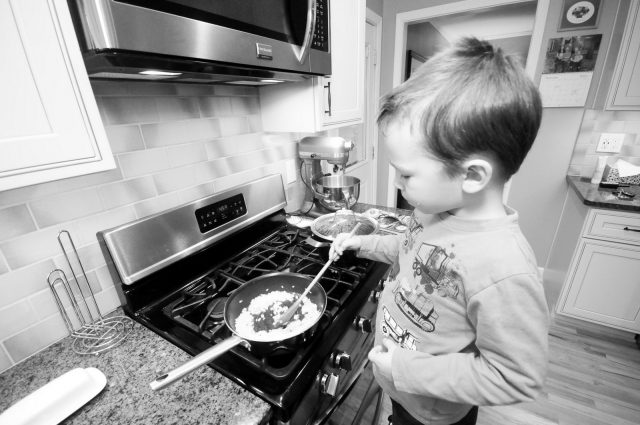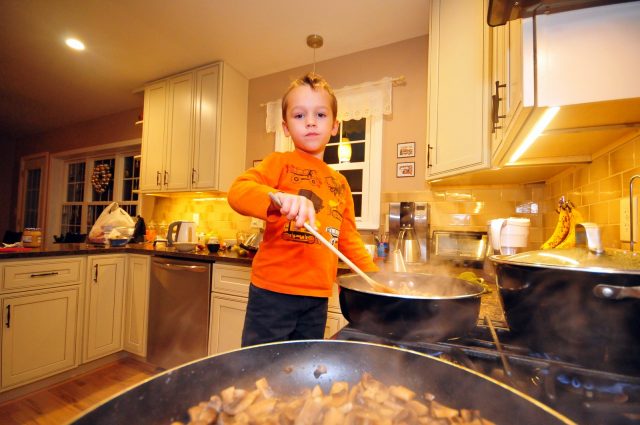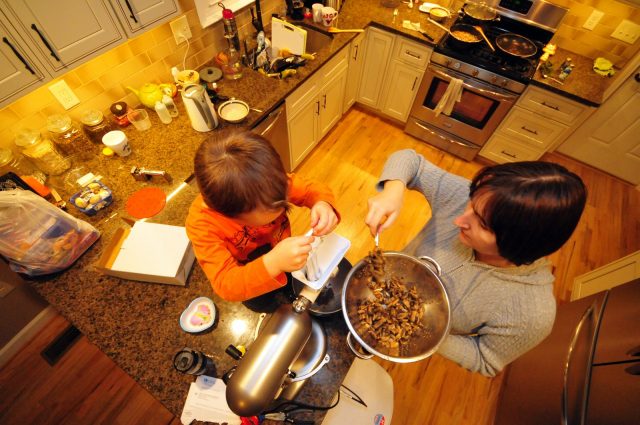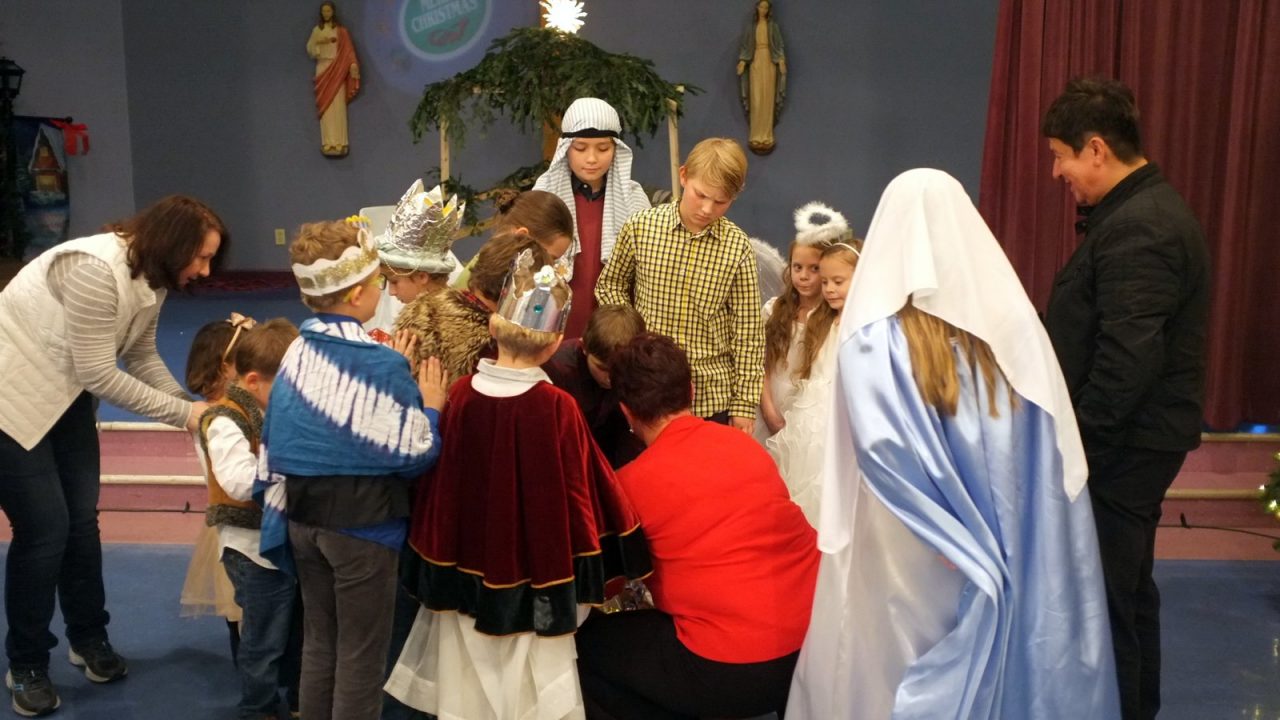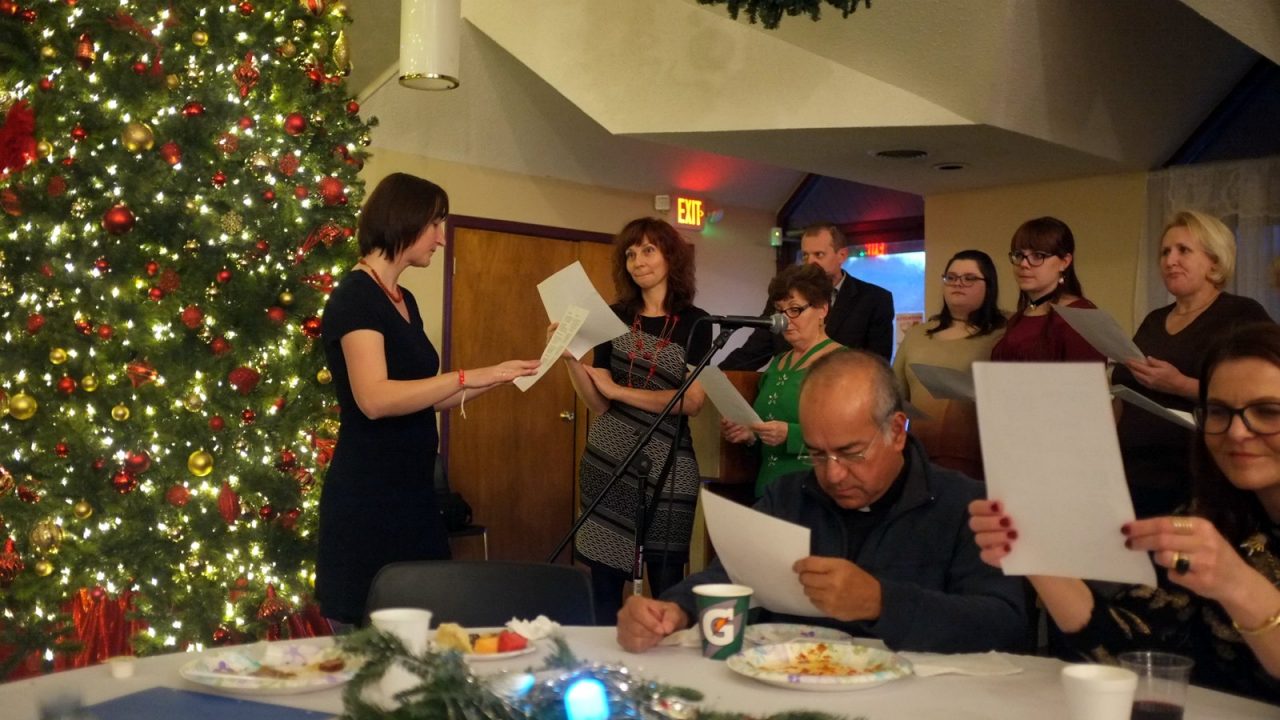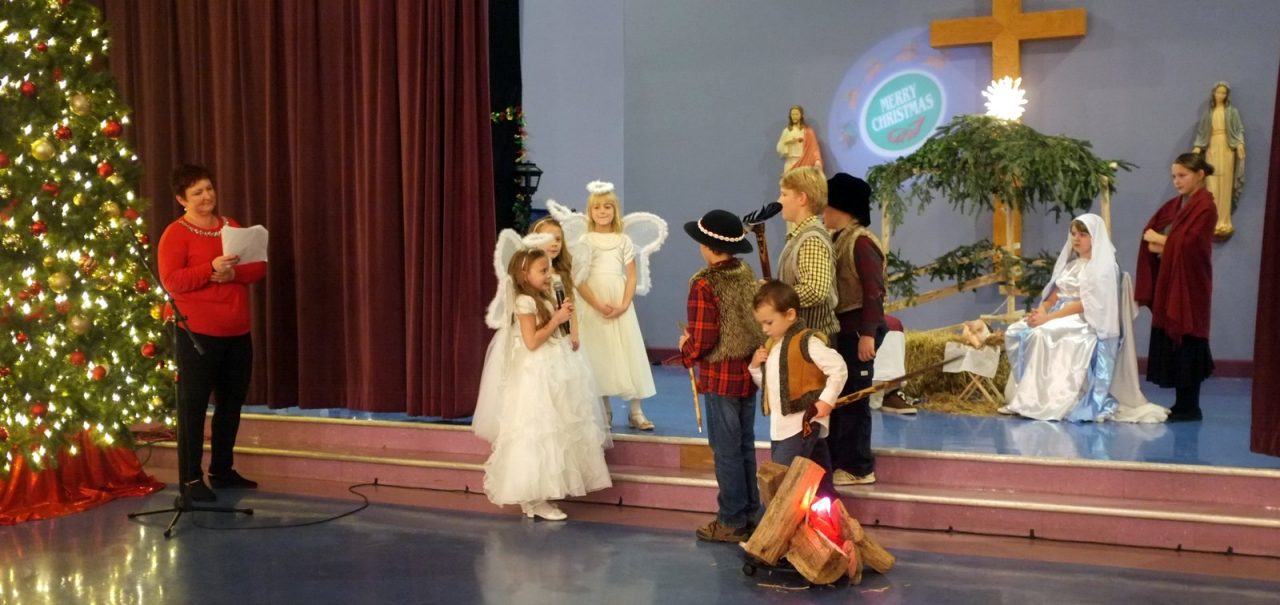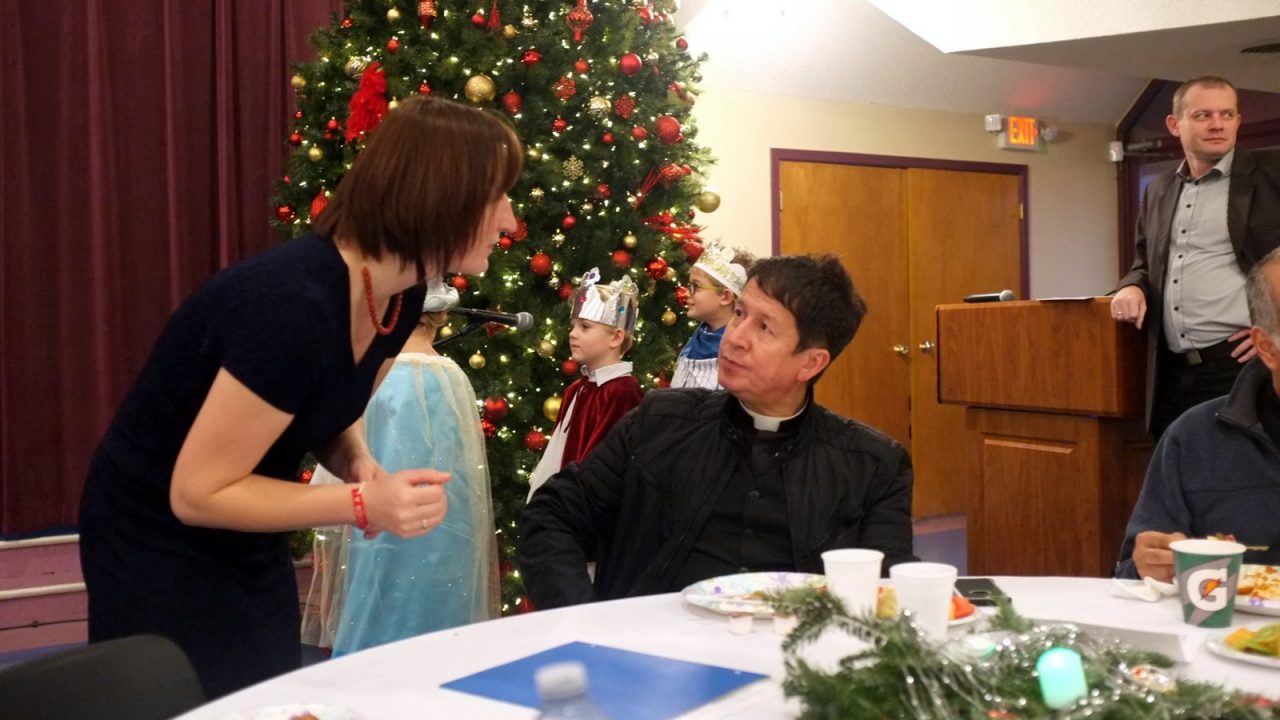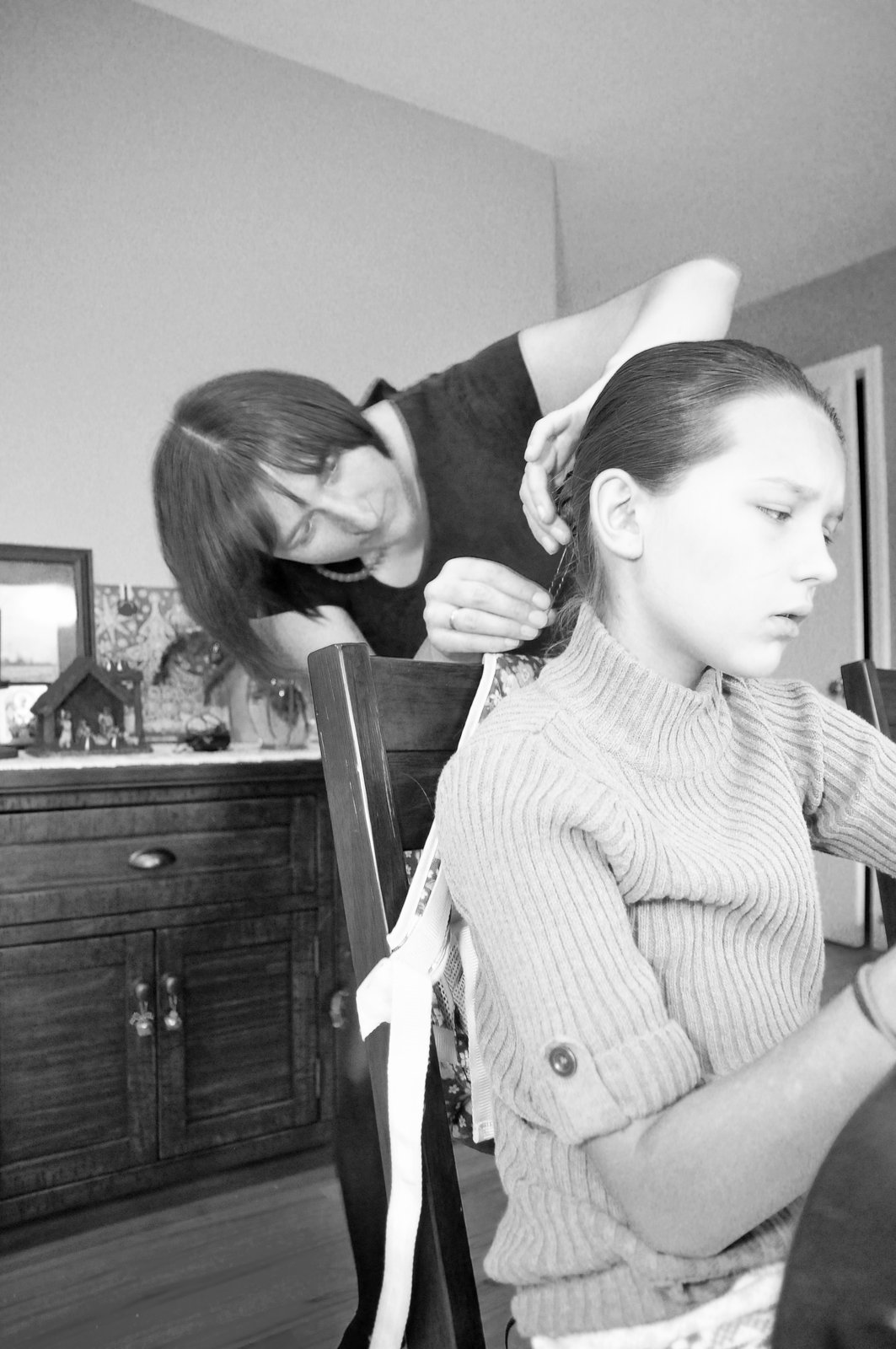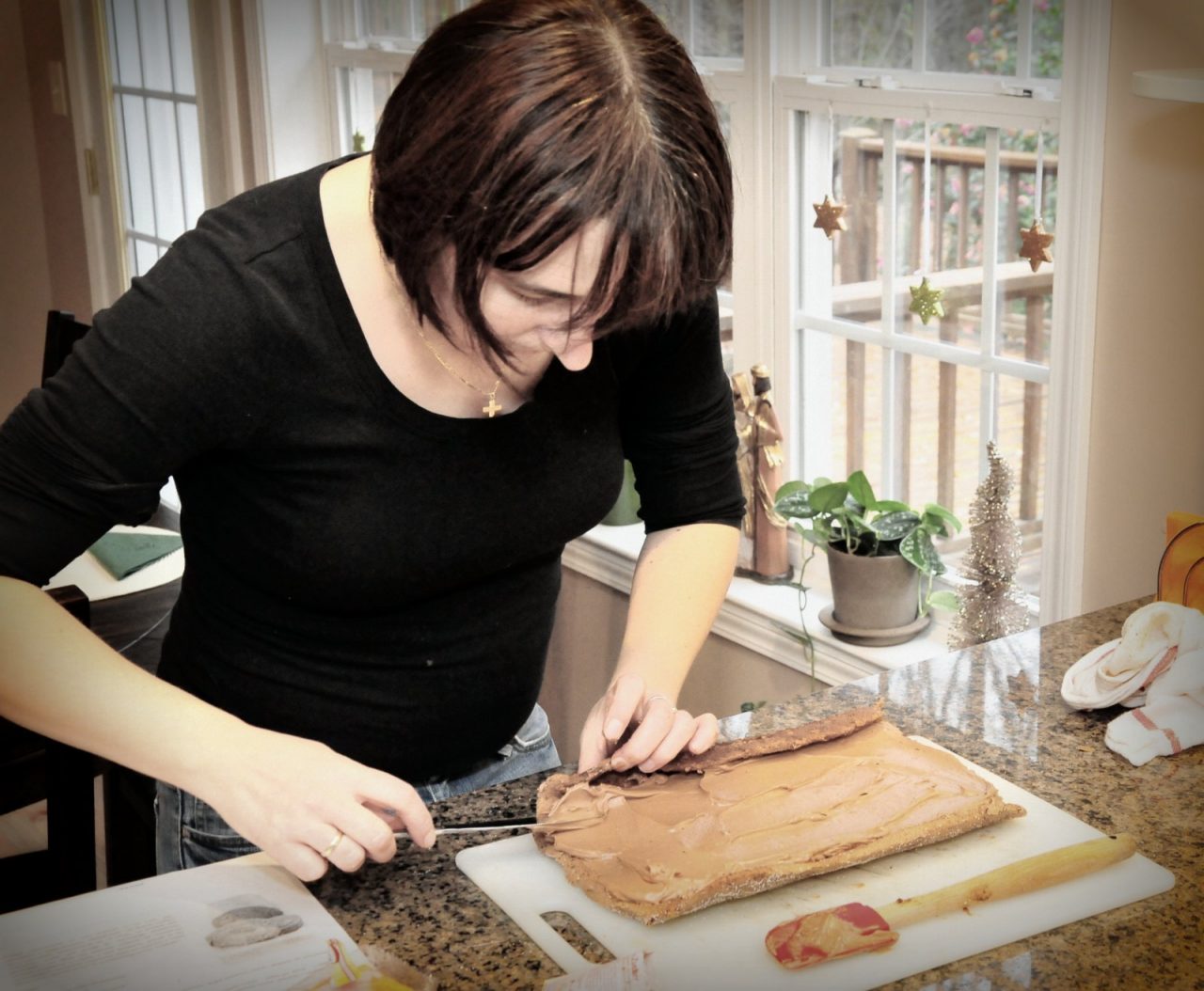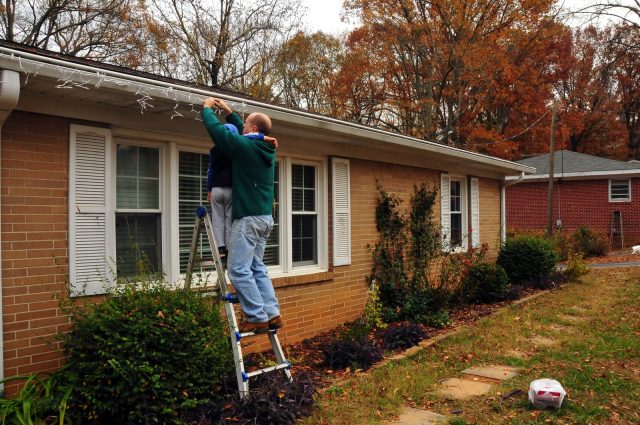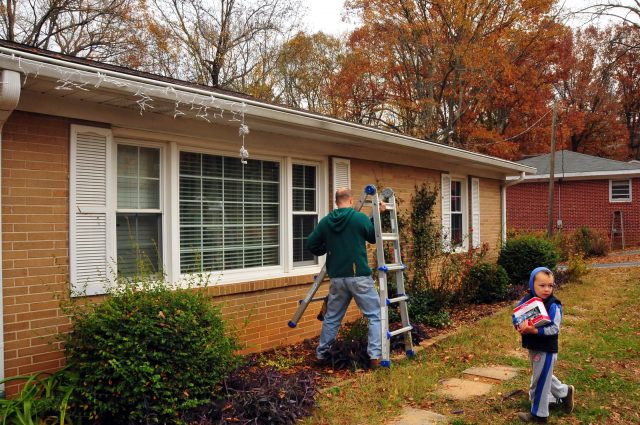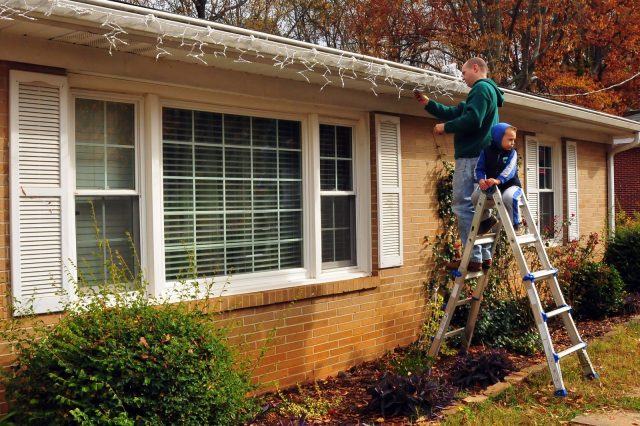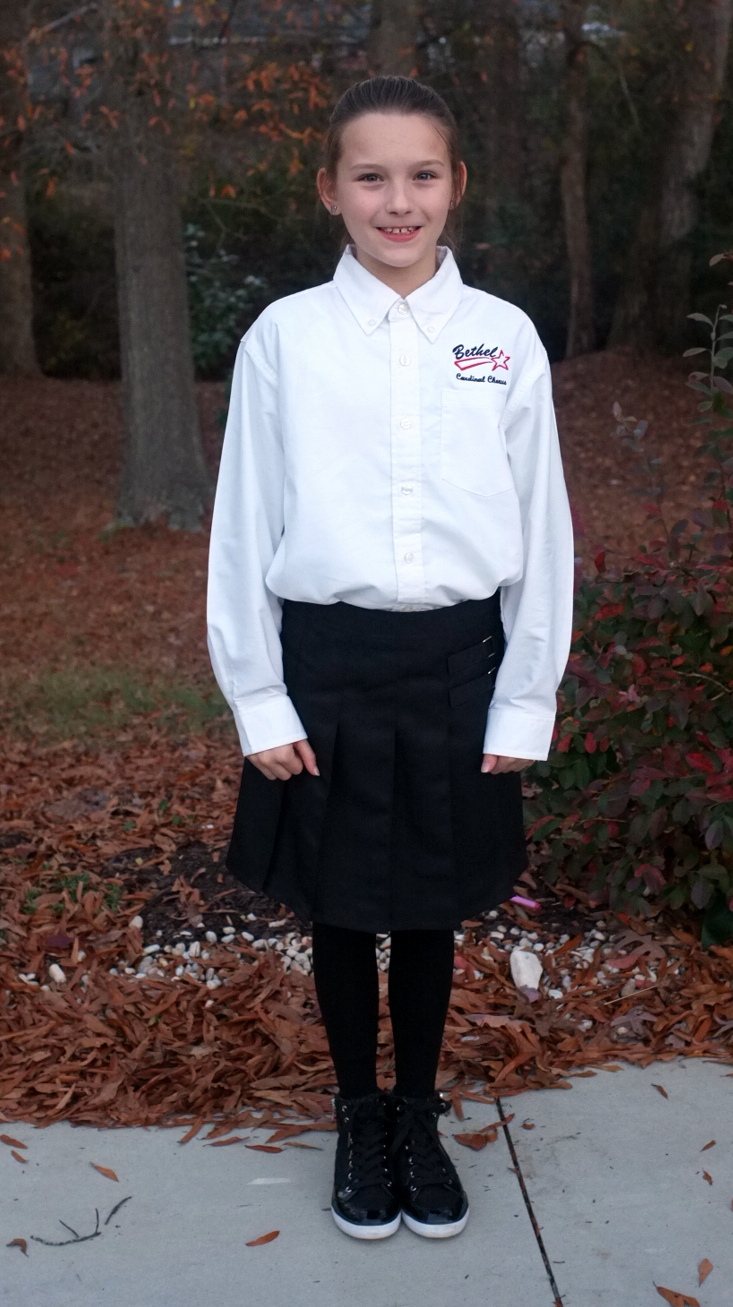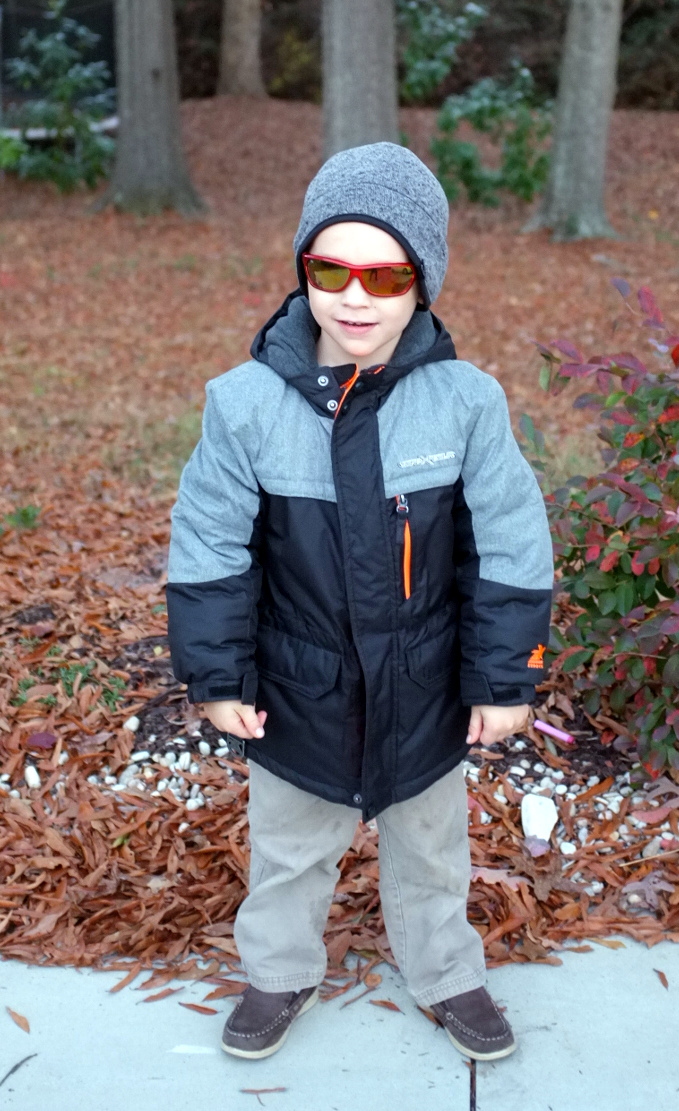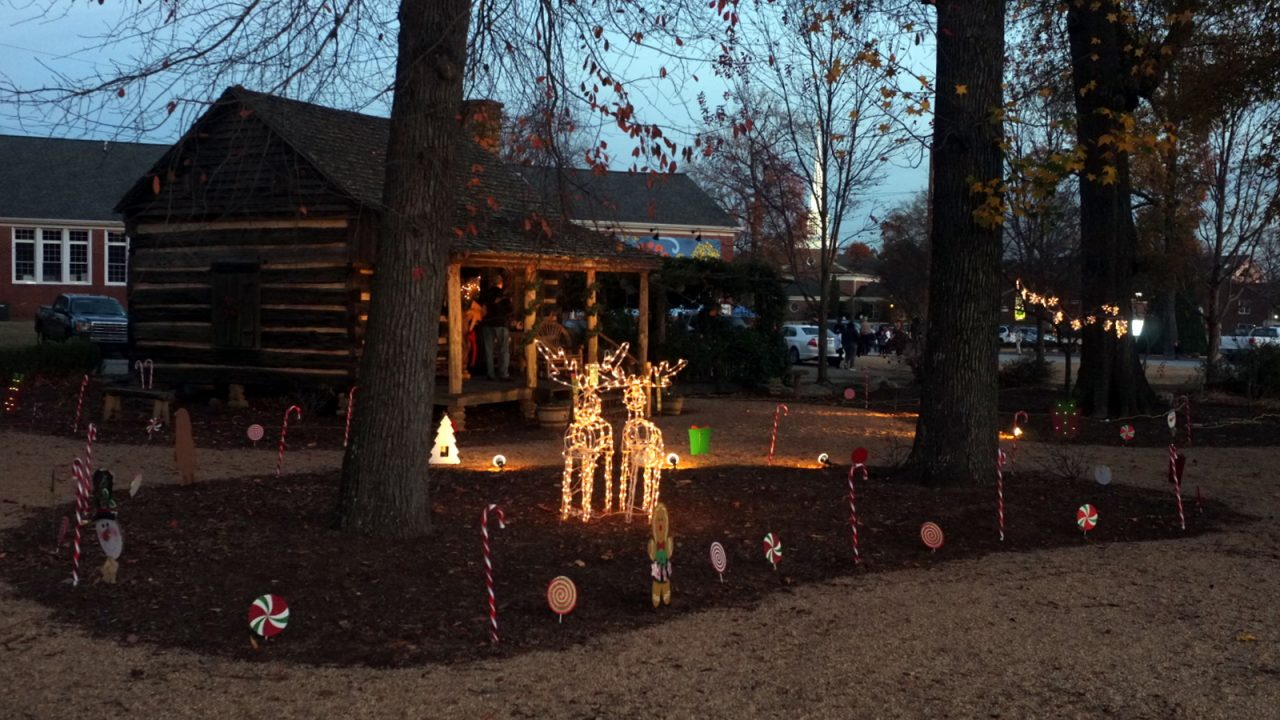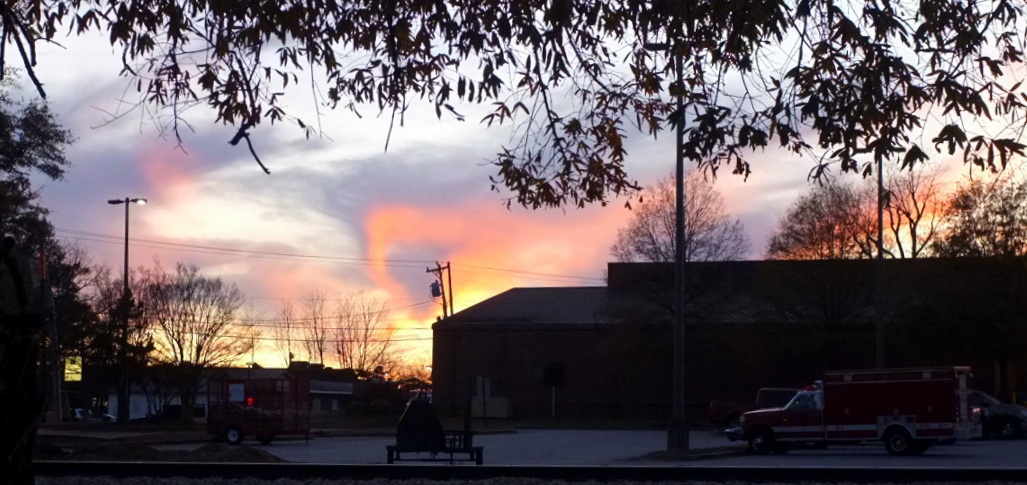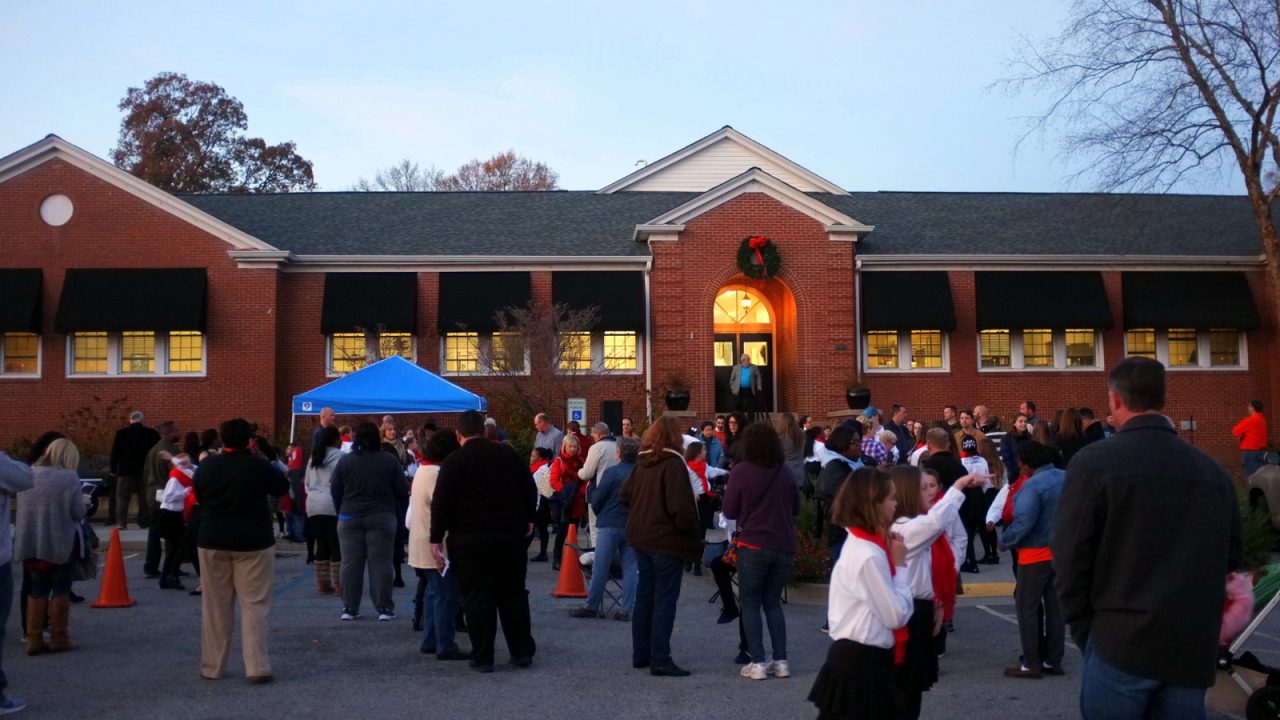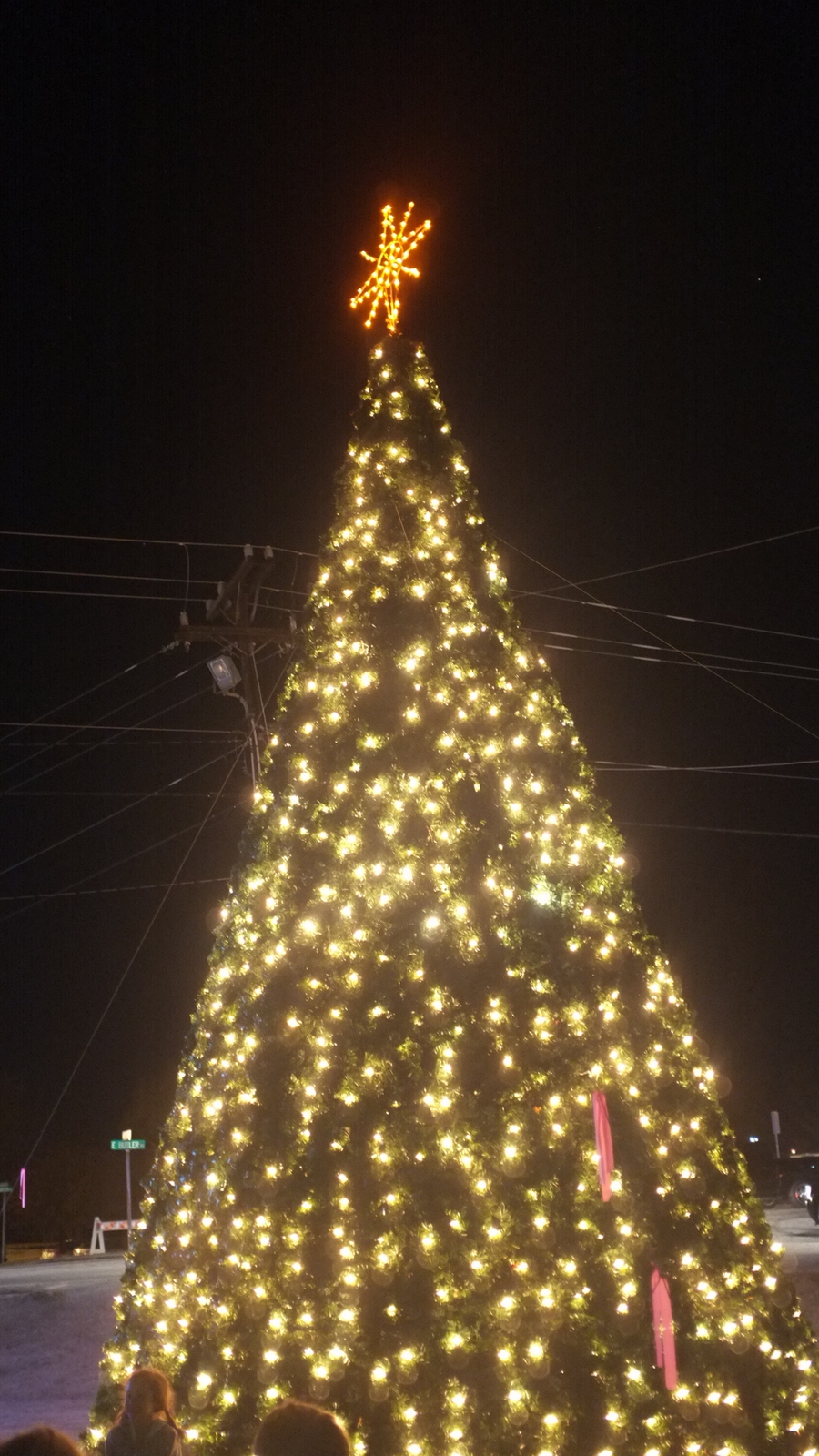Didn’t ever post this, I think.
Christmas 2016: Nostalgia
I’m not quite sure where they got it — maybe we gave it to them, or perhaps they just bought it themselves. In a way it doesn’t matter. What matters is that when E found the little Leap Frog play house that was just like the one he played with as a little toddler (“Daddy, I’m not a toddler any more. I’m a little boy.”), he was utterly enchanted. He took the little house over to the small couch in the sitting area just off of the dining room in our friends’ house (they do Christmas; we do Easter; another family has taken Halloween, even though it’s not a traditional Polish holiday) and just played with it as if it were the greatest thing. I wondered for a moment if perhaps he was experiencing his first little bout of nostalgia.
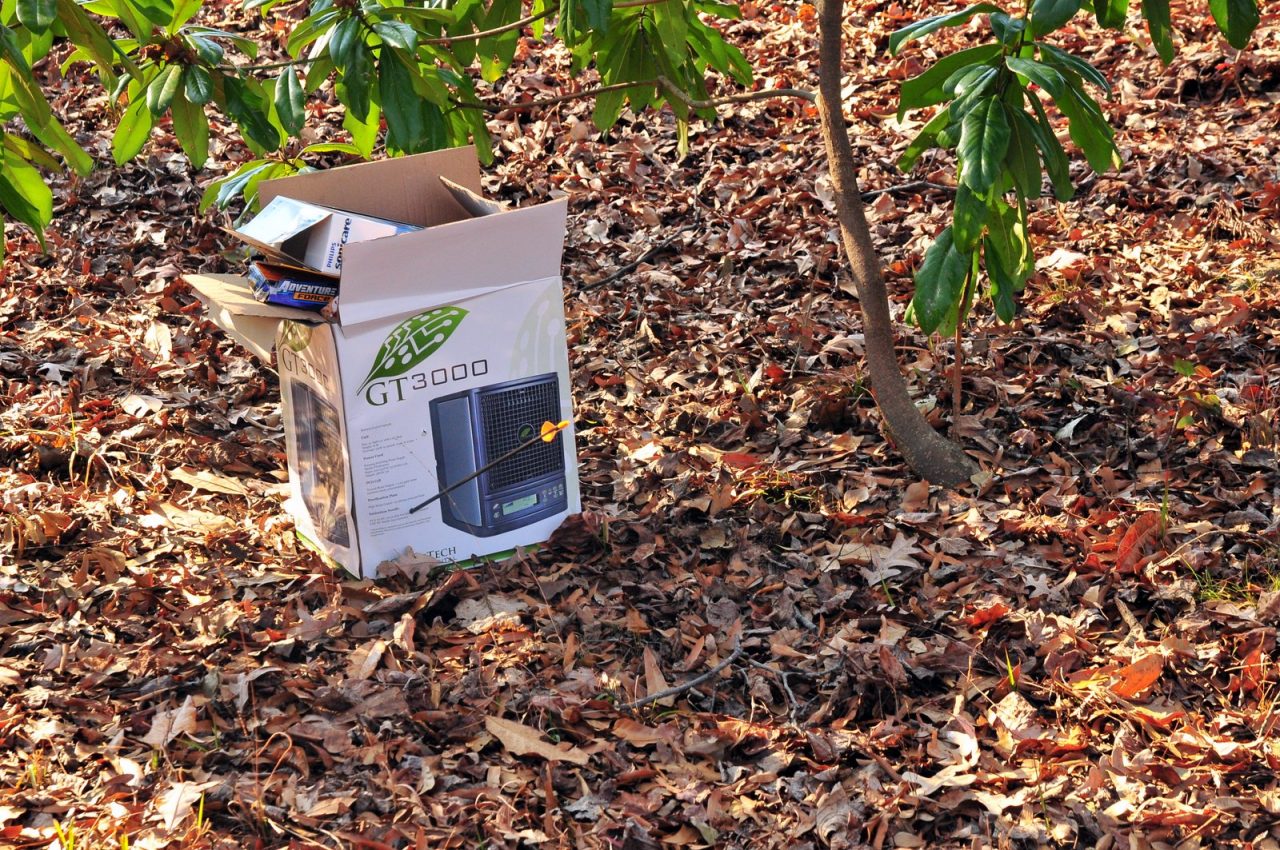
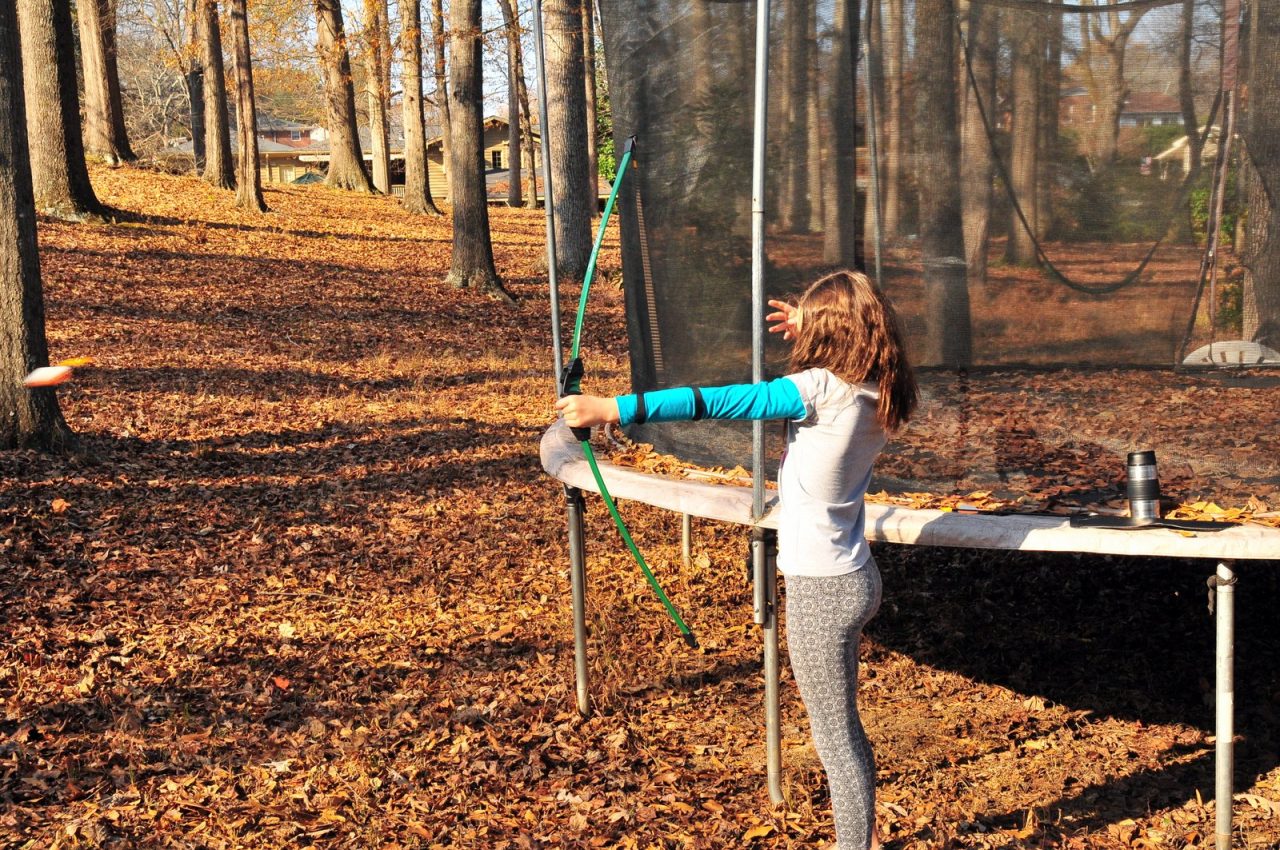
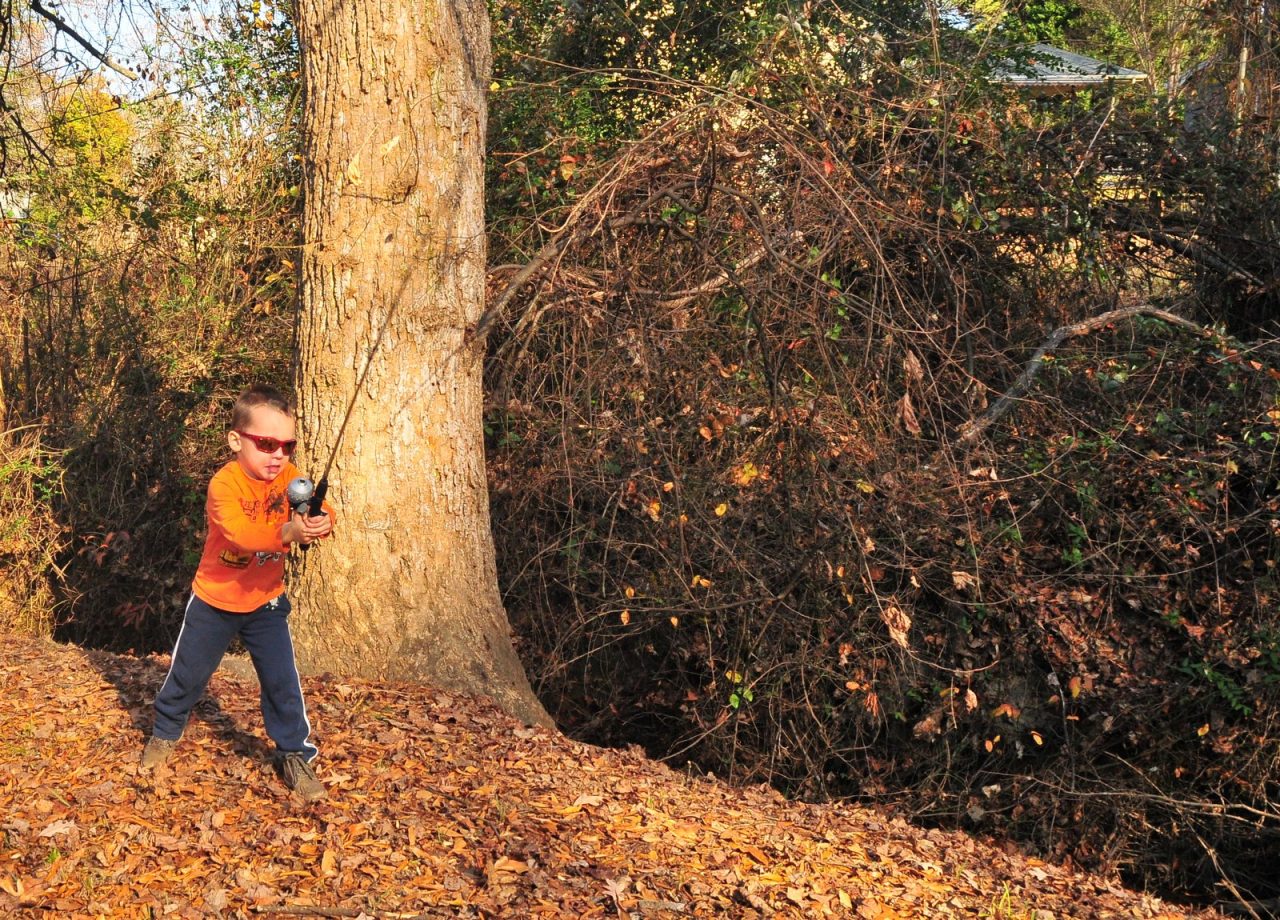
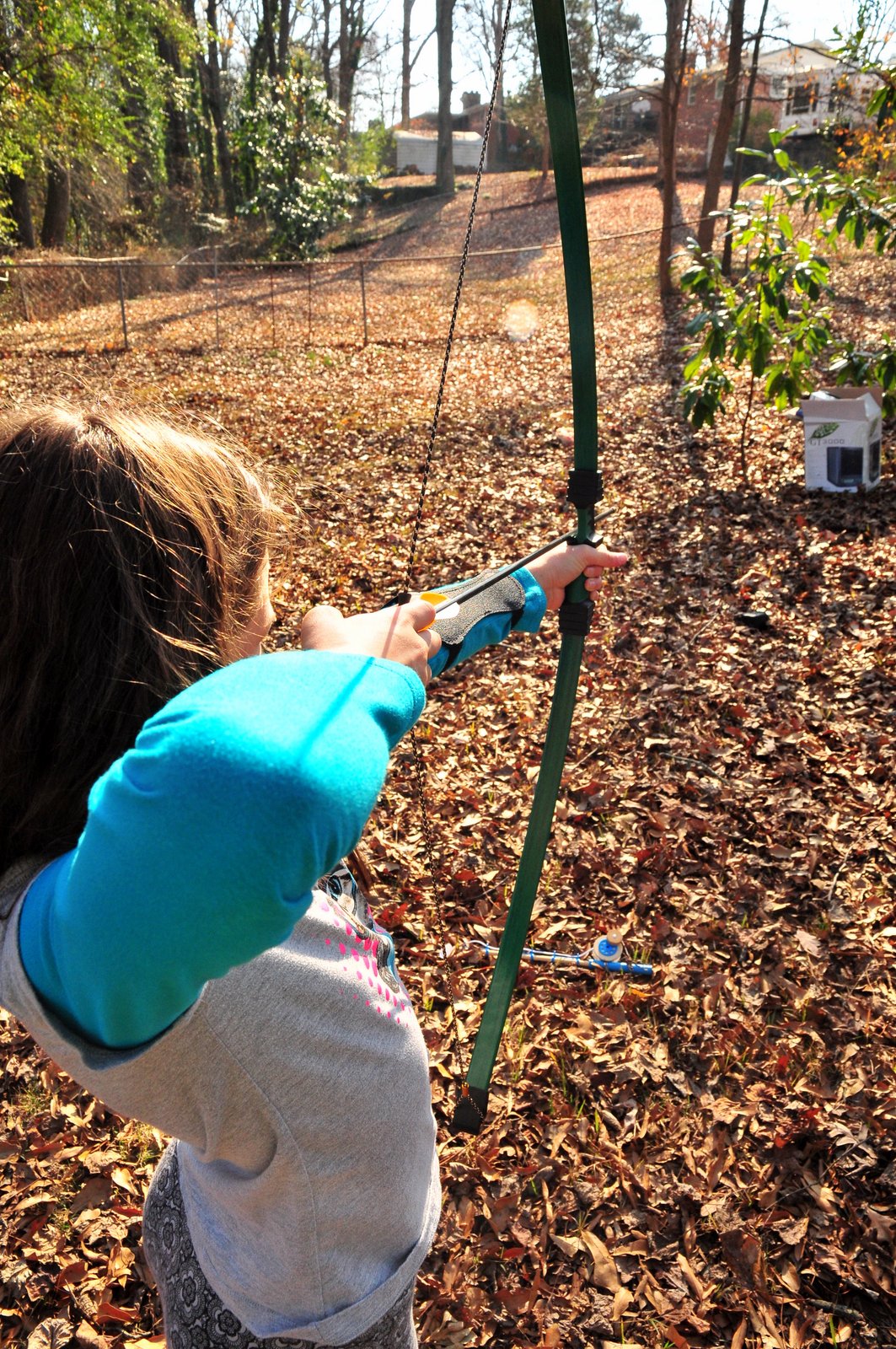
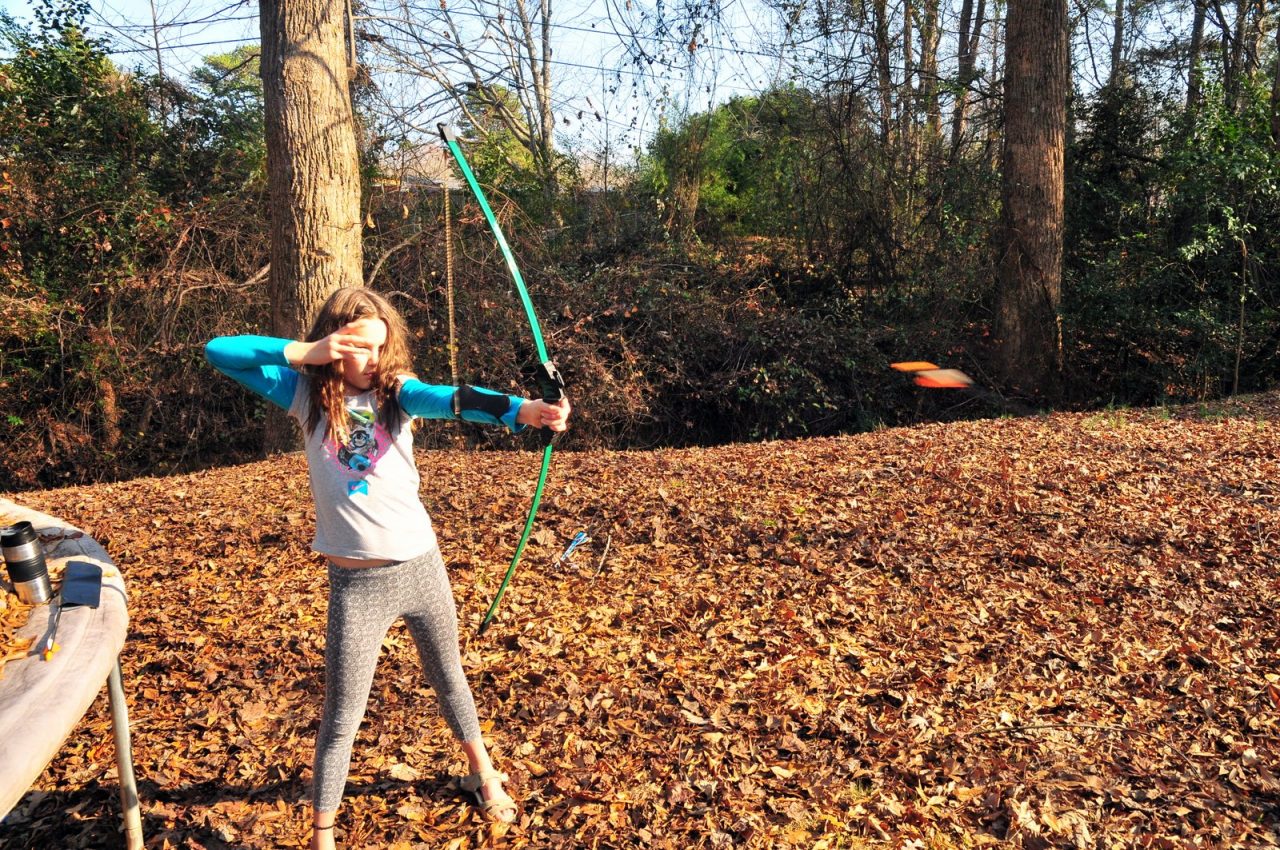
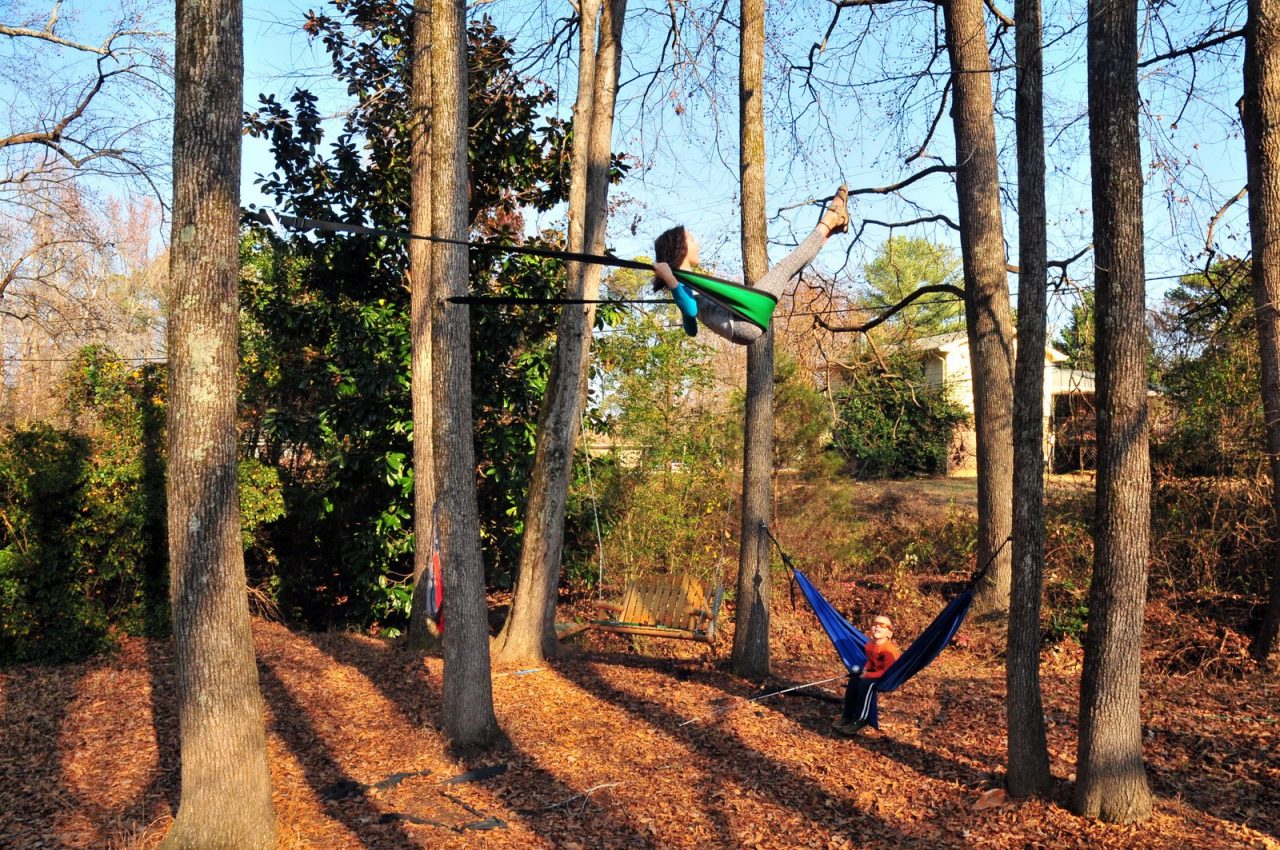
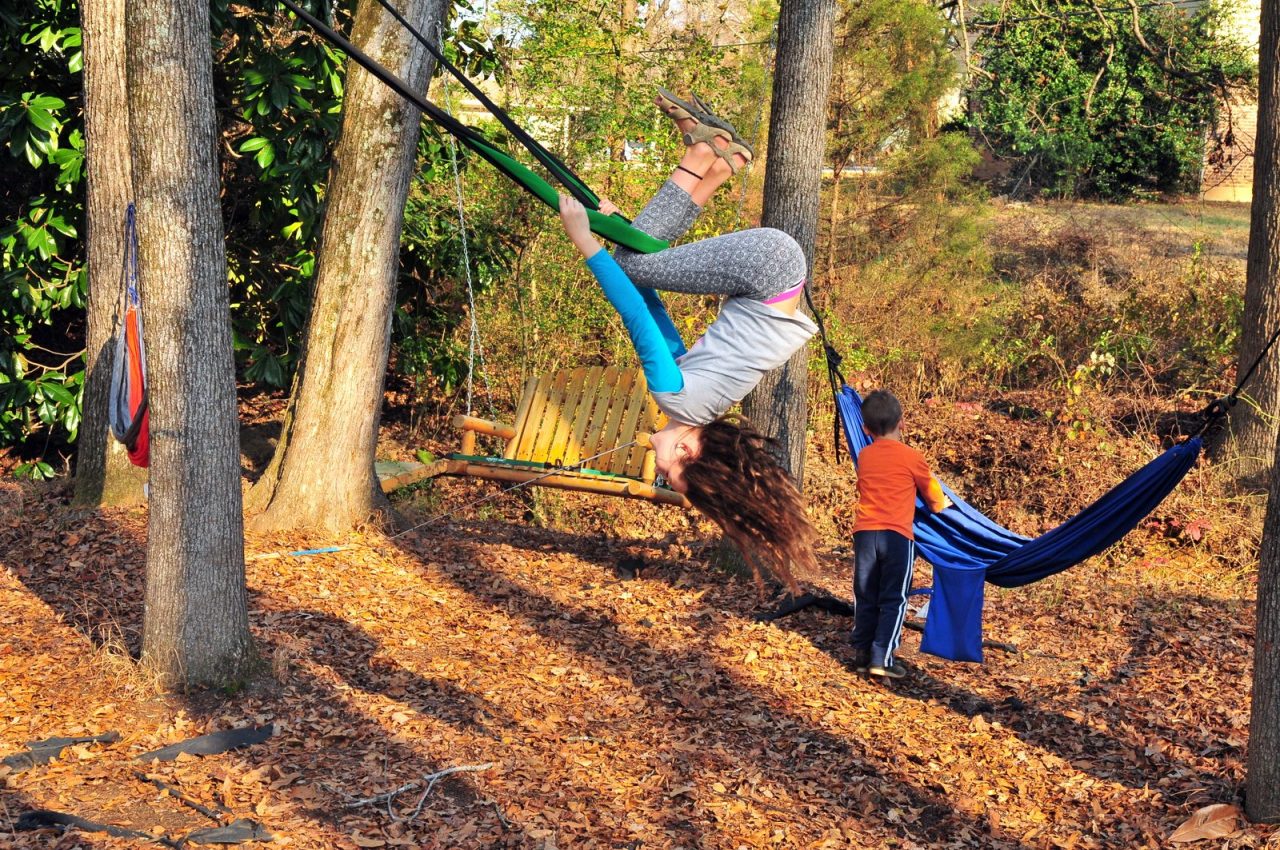
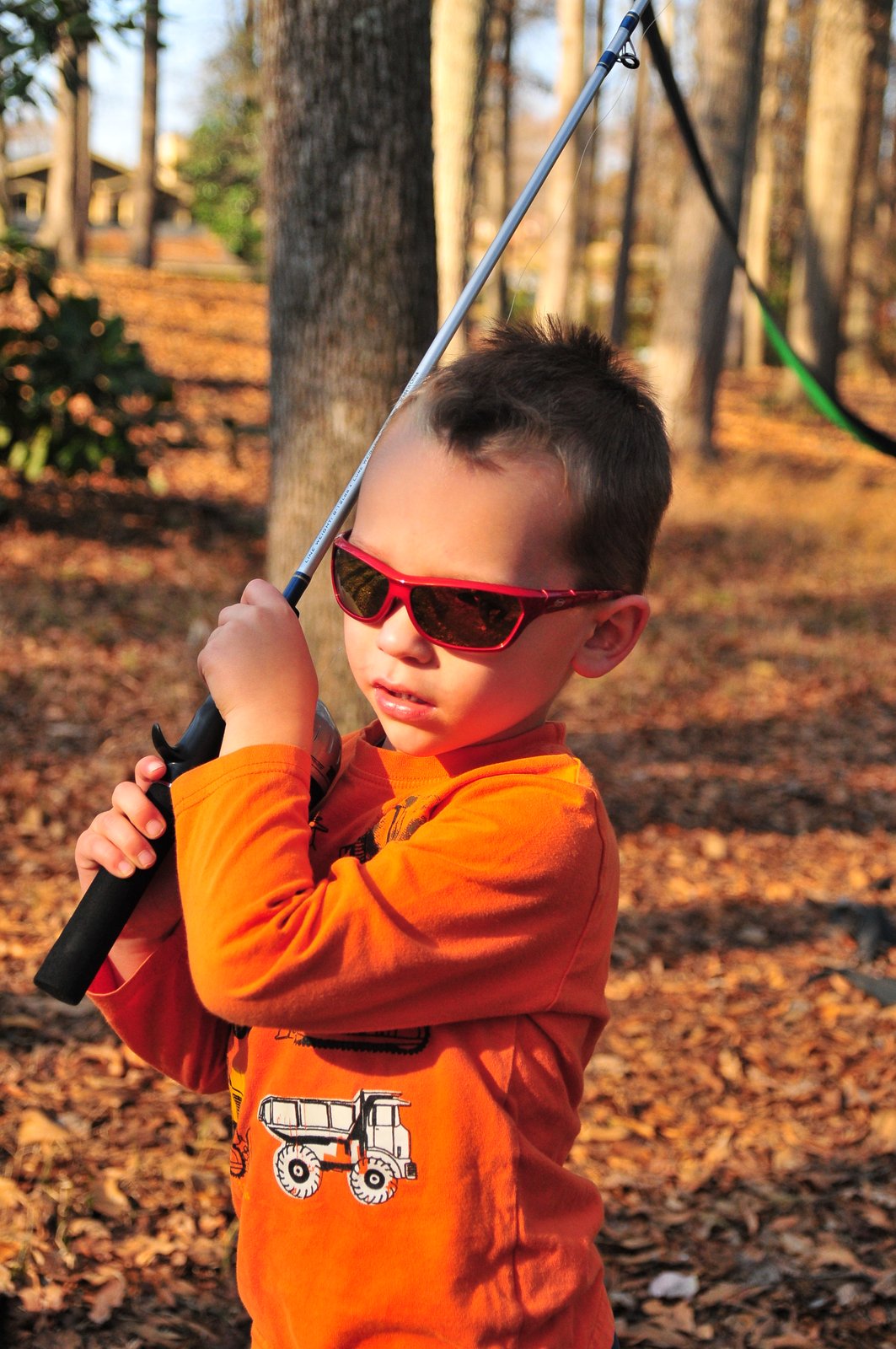
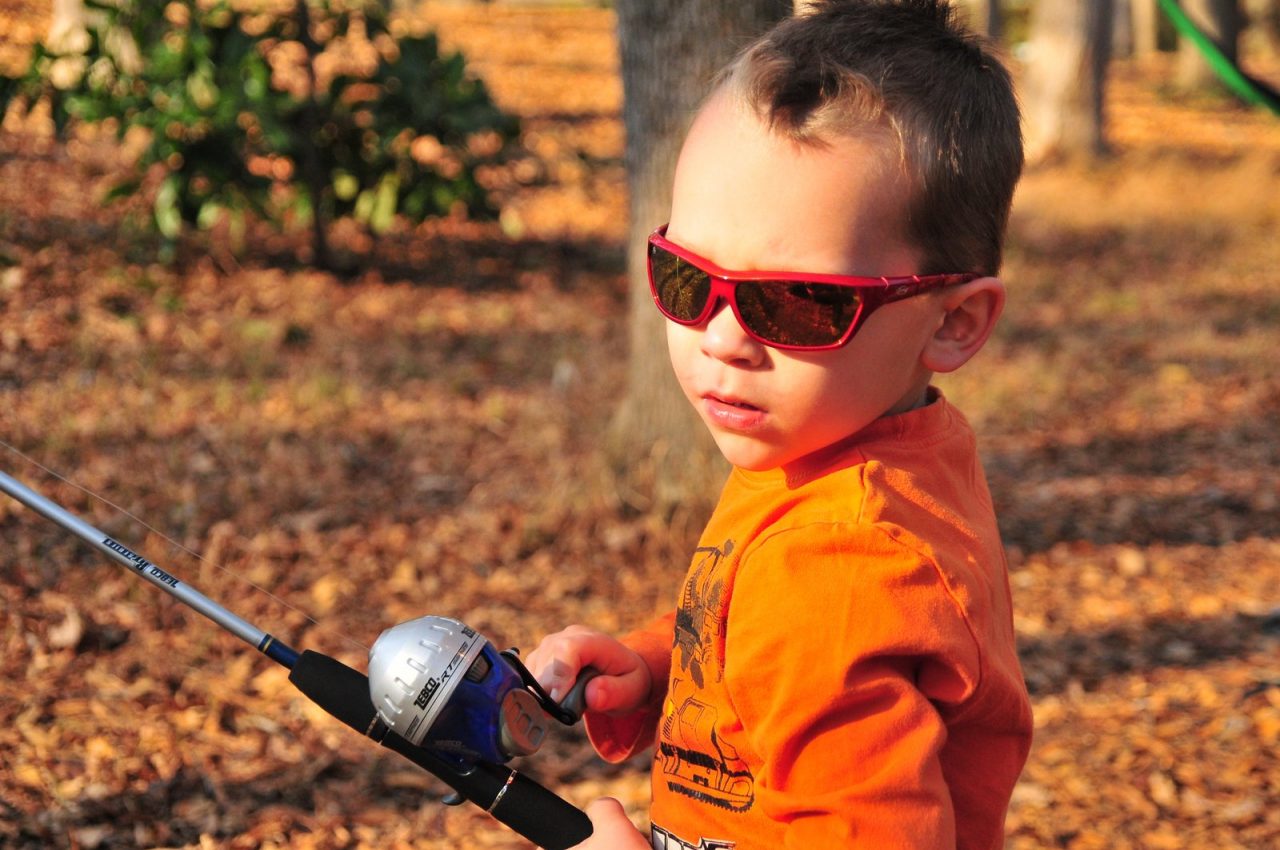
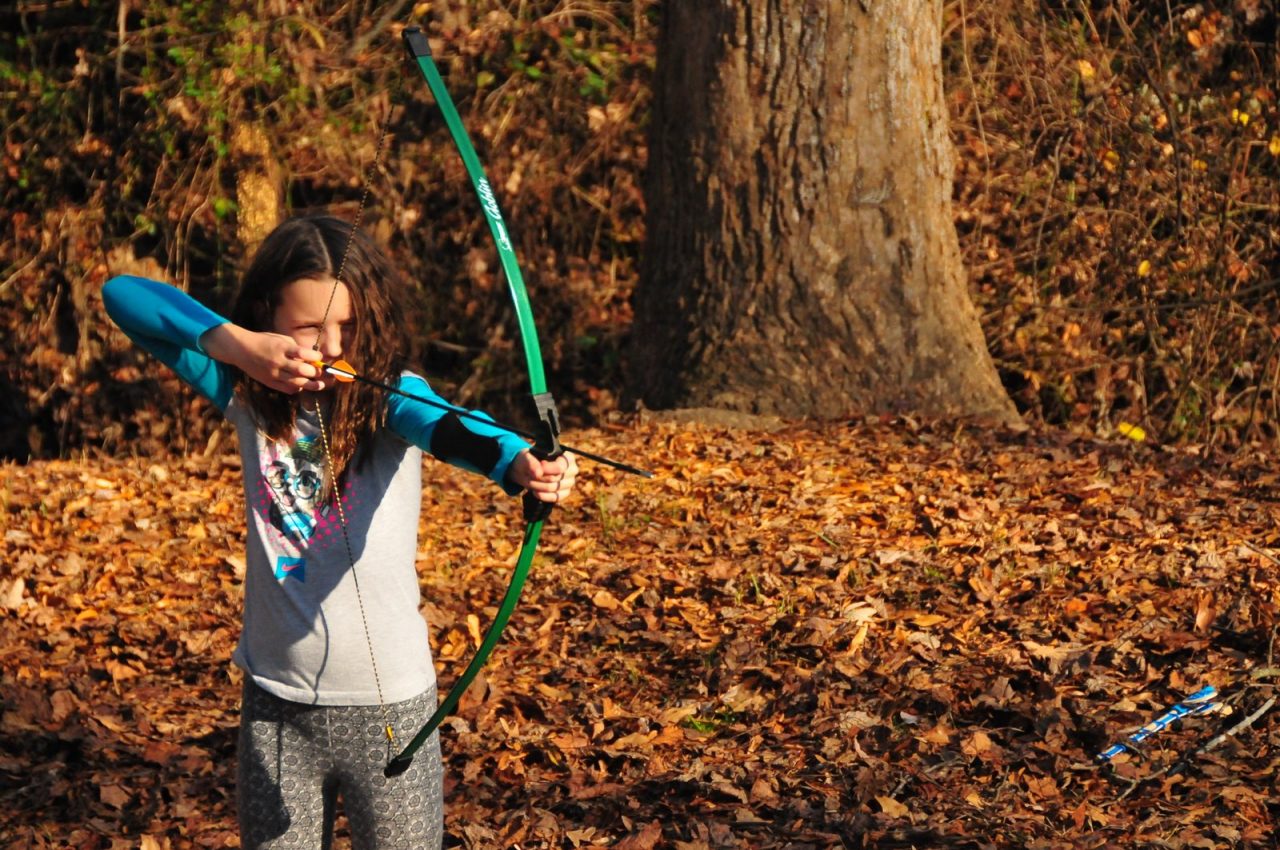
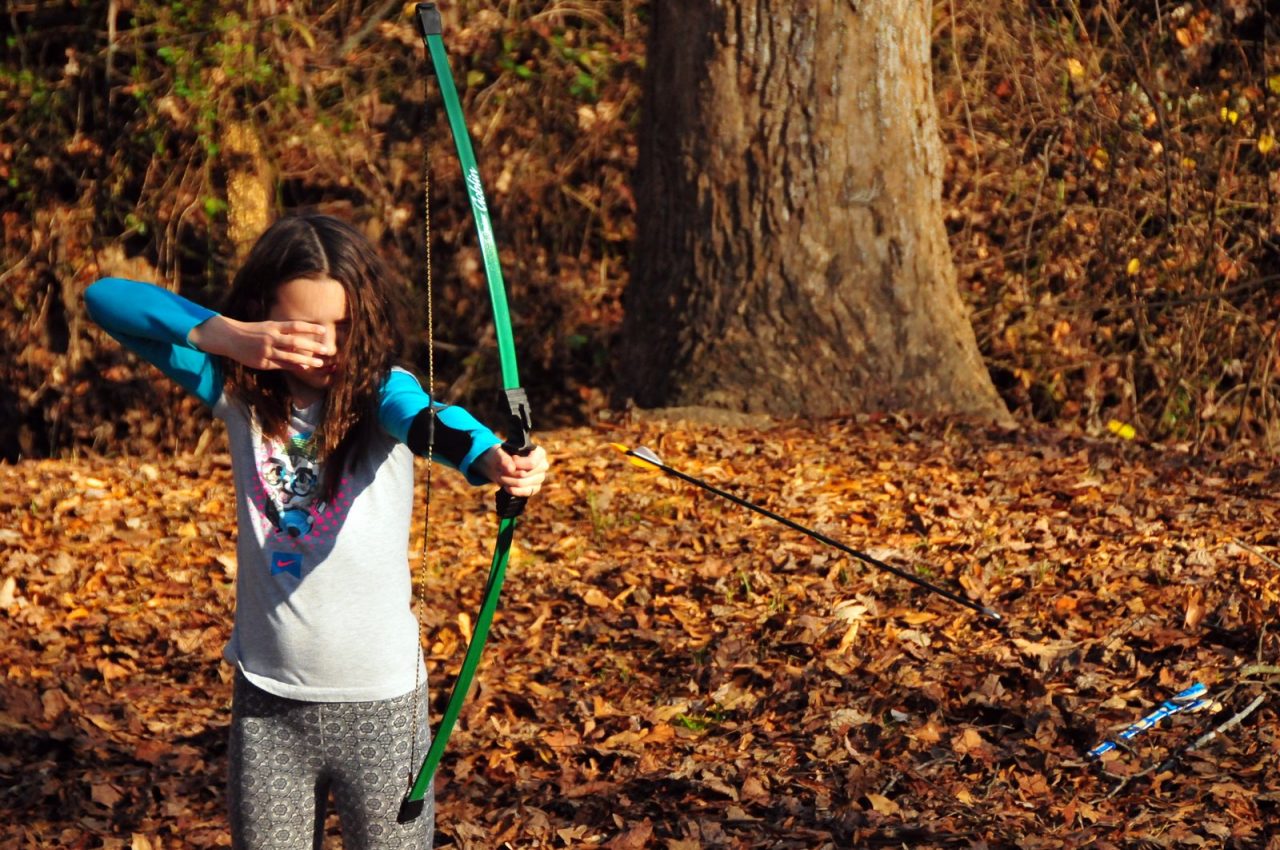
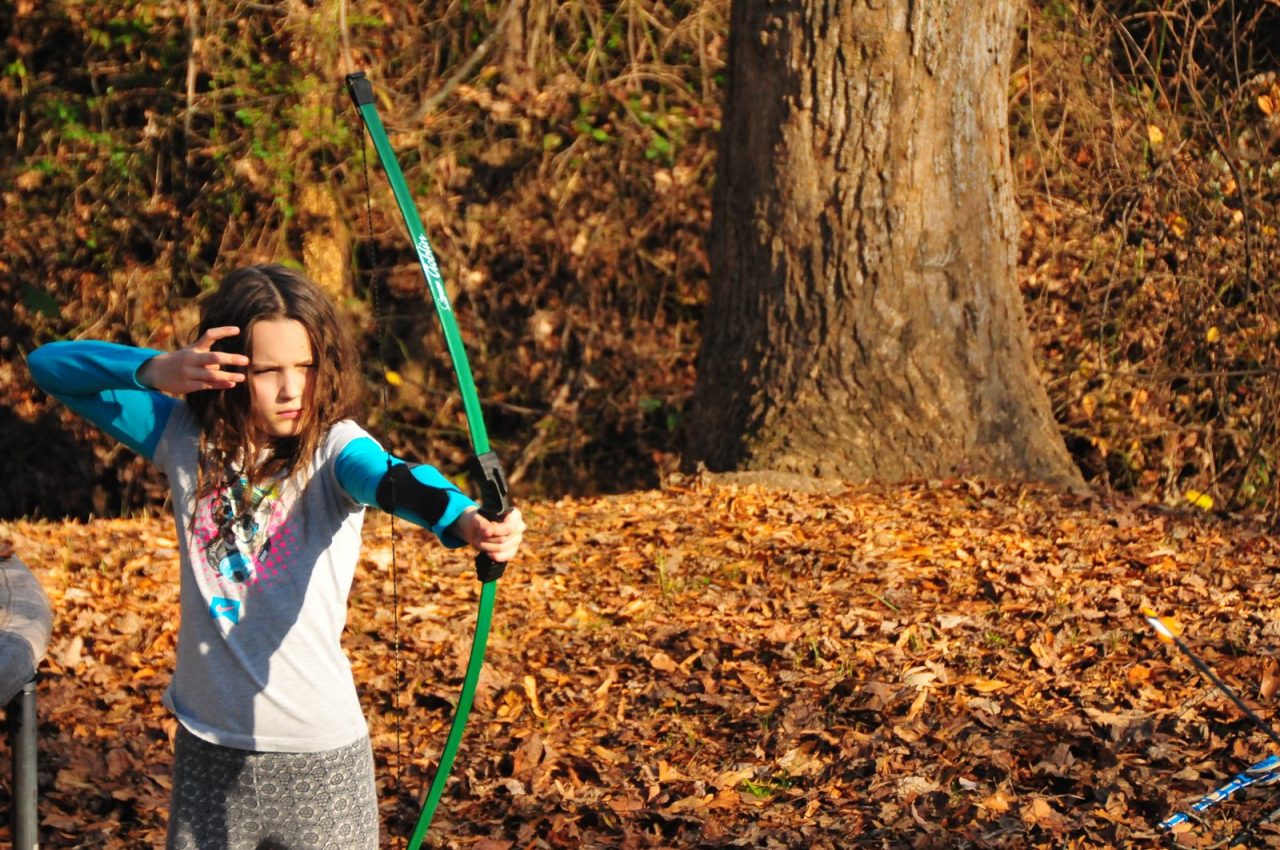
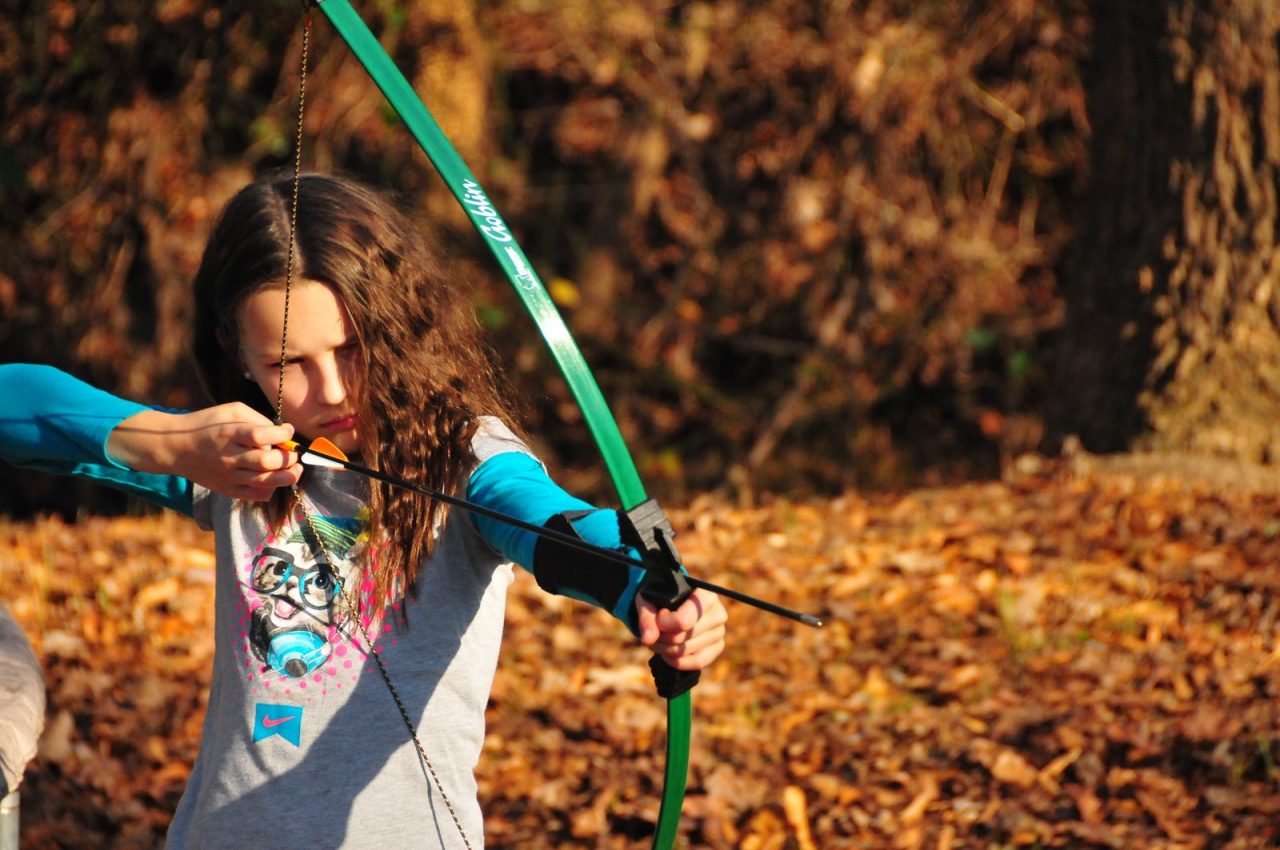
I always wonder about that: what will set my kids off when they’re adults, what will send them back into the past with a certainty that times were somehow better then and a strange emptiness with the realization that those times will never return. Or maybe that’s just the stuff of romantics, and perhaps my kids won’t grow up to be nostalgic romantics.
But there are worse things than being nostalgic romantics. Nostalgic romantics get to sing Christmas carols with an abandon that others lack. The act is a time machine.
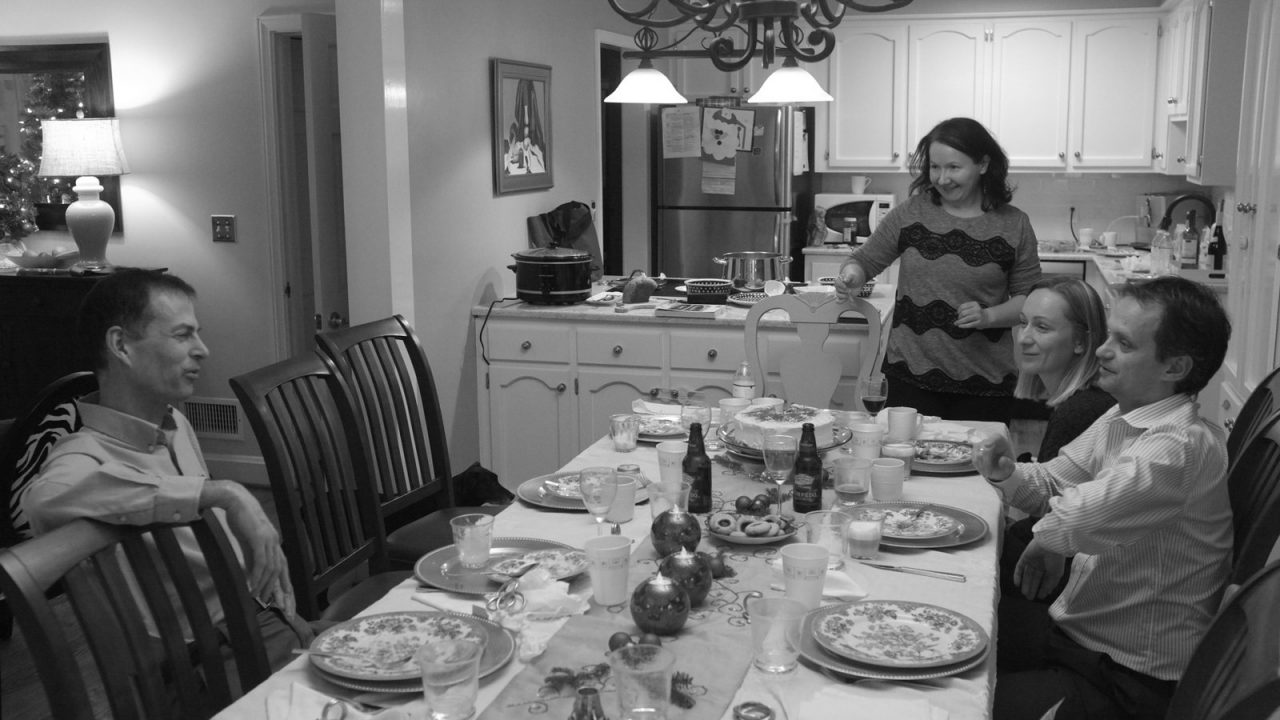
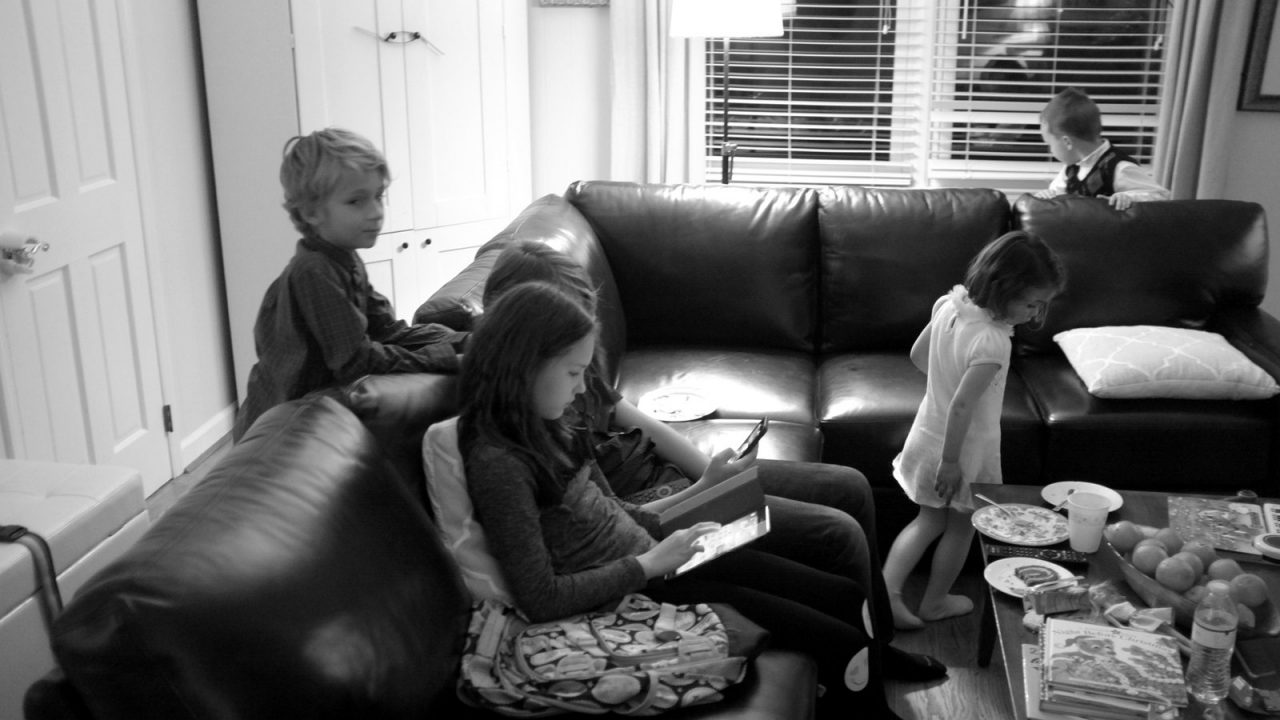
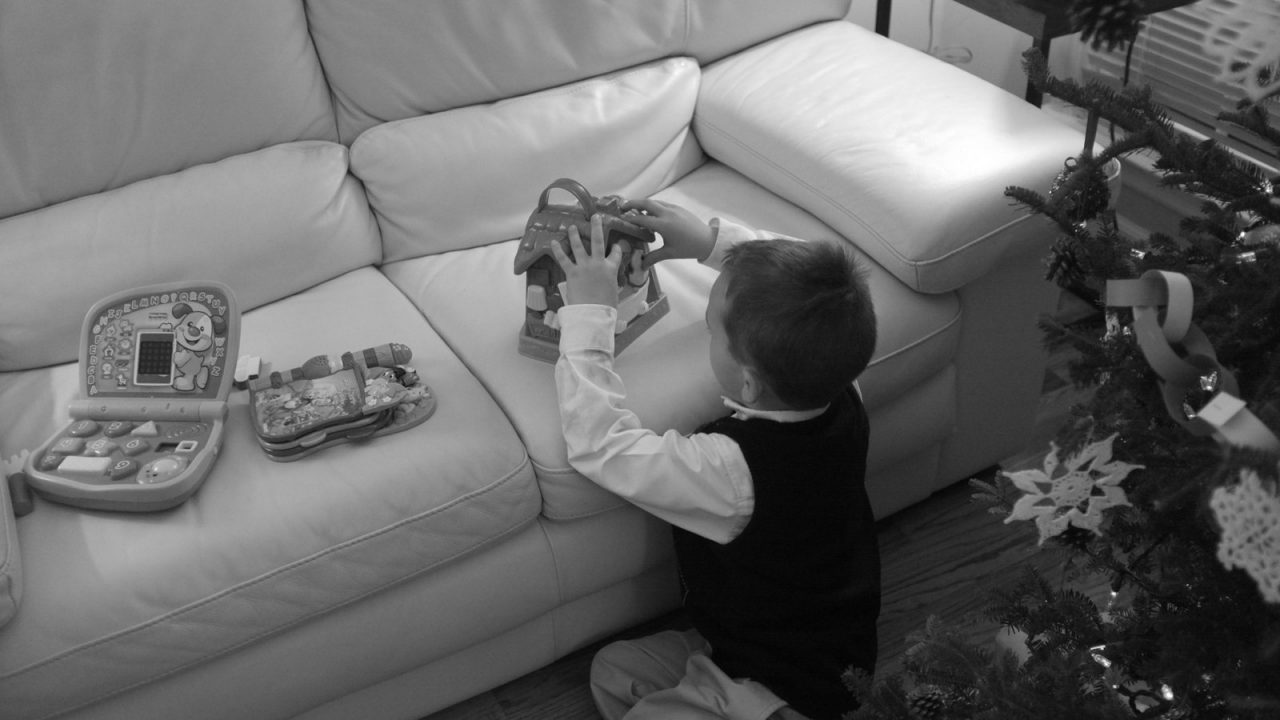
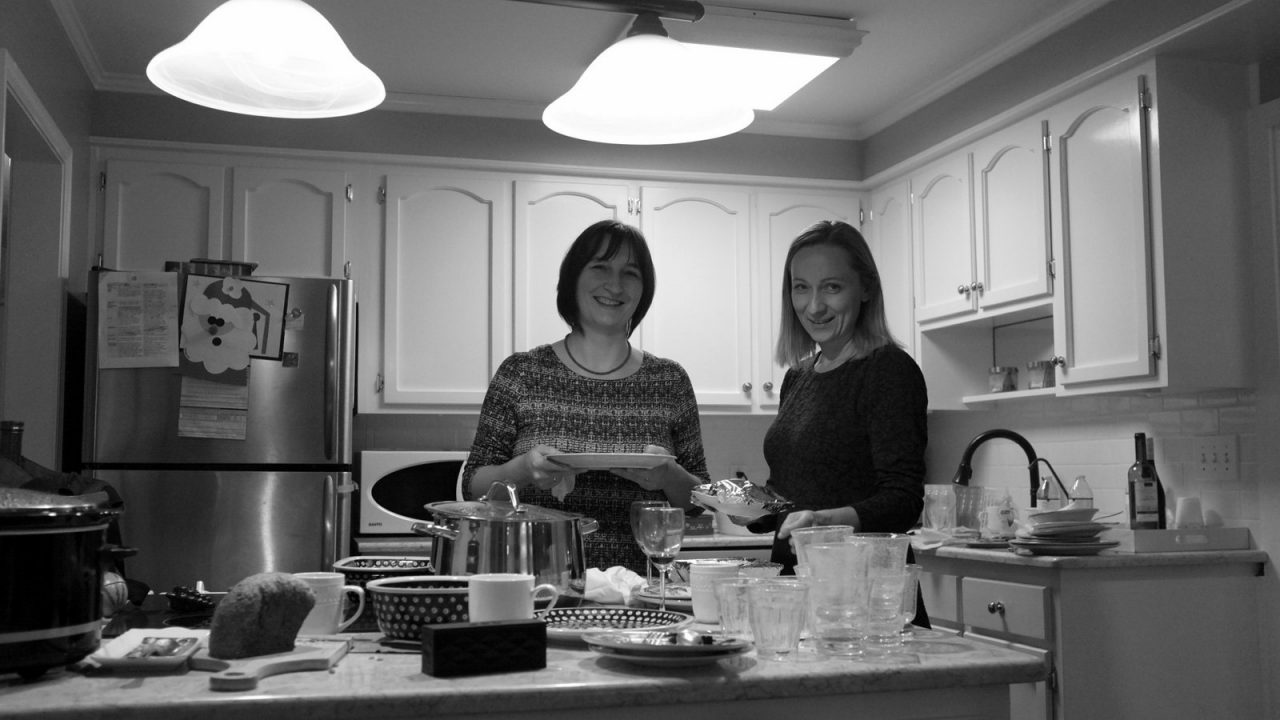
It’s what makes movies like White Christmas so charming almost seventy years later.
And that’s all I’ve got for this Christmas…
Wigilia 2016
What makes this Saturday different from any other Saturday? If I look back at Saturdays over the course of my life, what a change I see. How I spent my Saturdays when I was my children’s age is so very different from how they spend they theirs. Better? In a way. Worse? Also true, in a way.
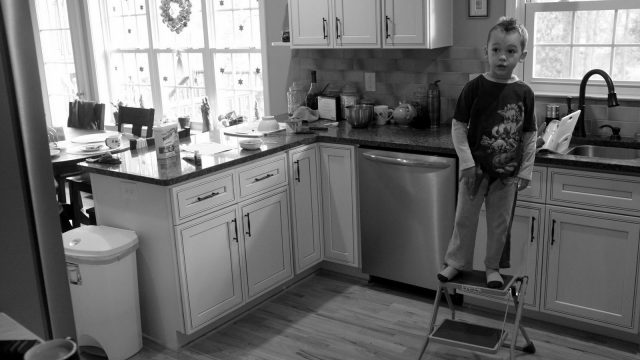
If K were to take the time to look back over the Saturdays of her life and compare them to what her children do, how they spend Saturday, there too would be enormous change. Better? In a way. Worse? Also true, in a way.
The point is, K and I are both in a place in our life that we probably never would have imagined when we were our children’s age. Both of our lives at their age were about waiting, in a sense. K and her family were often waiting in lines in still-Communist Poland; I was waiting for the end and a new beginning.
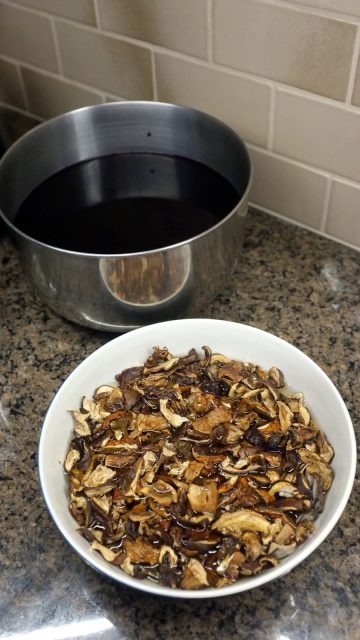
And yet, there’s still the waiting today. It’s part of life. Waiting for the wild mushrooms (picked in Poland, dried in Babcia’s kitchen, smuggled in our checked luggage, and waiting for months in the freezer) thaw then re-hydrate. Waiting for the zakwas to finish its fermenting so we can have the properly sour barszcz for dinner. Waiting for the prunes, apples, oranges, cloves, cardamom pods, cinnamon sticks, ginger cubes, and brandy to release their magic to make the Christmas kompot.
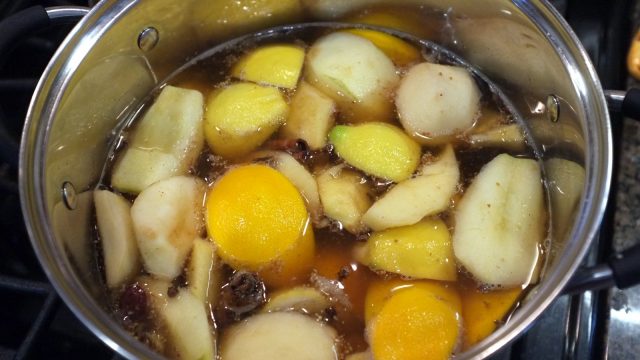
The preparation, the waiting, is itself magical. K keeps everything moving, and I am constantly asking, “What now?” I dice the potatoes for the mushroom soup. “Not too big, not too small.” I hold one cube up.
“They could be a little bigger.” I try again and hold up a cube for inspection.
“That’s a bit too big.” But I don’t mind. I’m just glad that I’ve found a place to help other than taking out the compost again and again — peelings from all the fruits and veggies, then the cooked veggies from the stock, those that won’t go into the salad that is — and cleaning up the house.
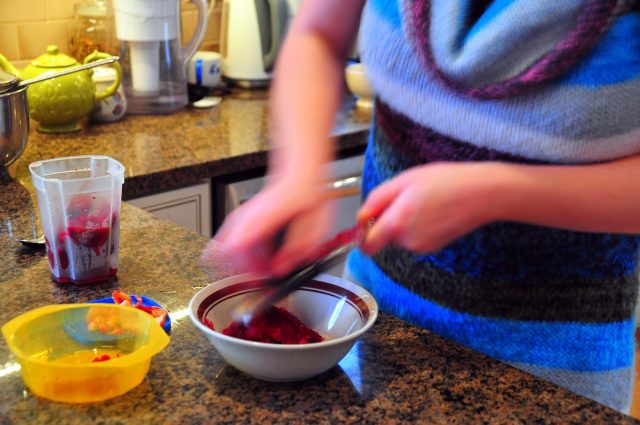
While all this waiting is going on, there are things to do, of course. The table needs to be set. This is one of the things I leave to K. It’s not that I wouldn’t know how to do it — I’m not that bad. But it’s something K enjoys doing, a creative endeavor as I enjoy creating this site.
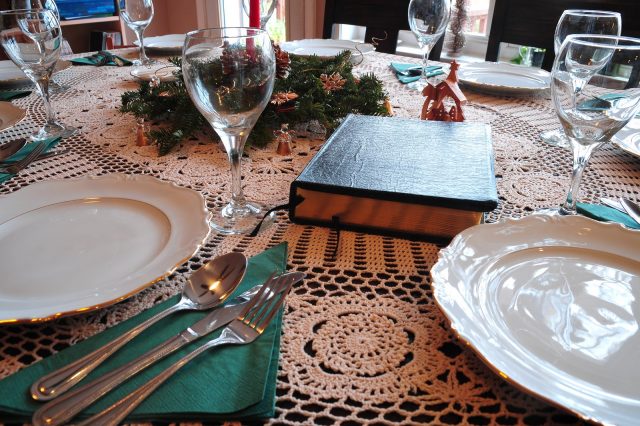
We begin with a Gospel reading and sharing the opłatek. The Boy likes the wafer enough that he just sits and eats it as if it were a snack.
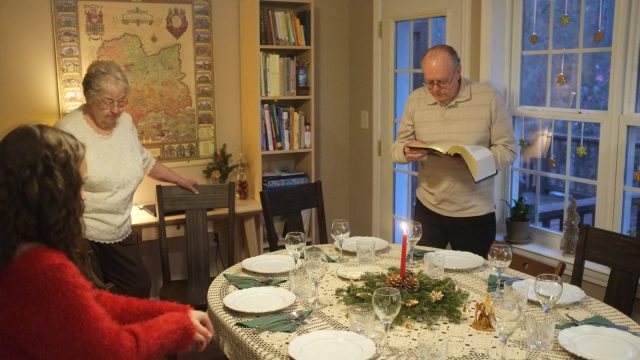
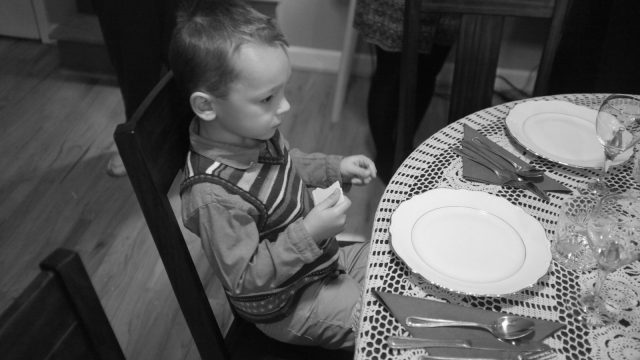
The dinner itself goes by in a flash. No matter how we try to slow things down (which we actually did this year), it still seems to go by entirely too quickly. We putting the barszcz on the table, and suddenly it’s desert time. For the kids, that’s a good thing: they can’t wait to tear into their presents. For K, I guess it’s a little bittersweet.
The menu is a traditional one (mouse-over to see details).
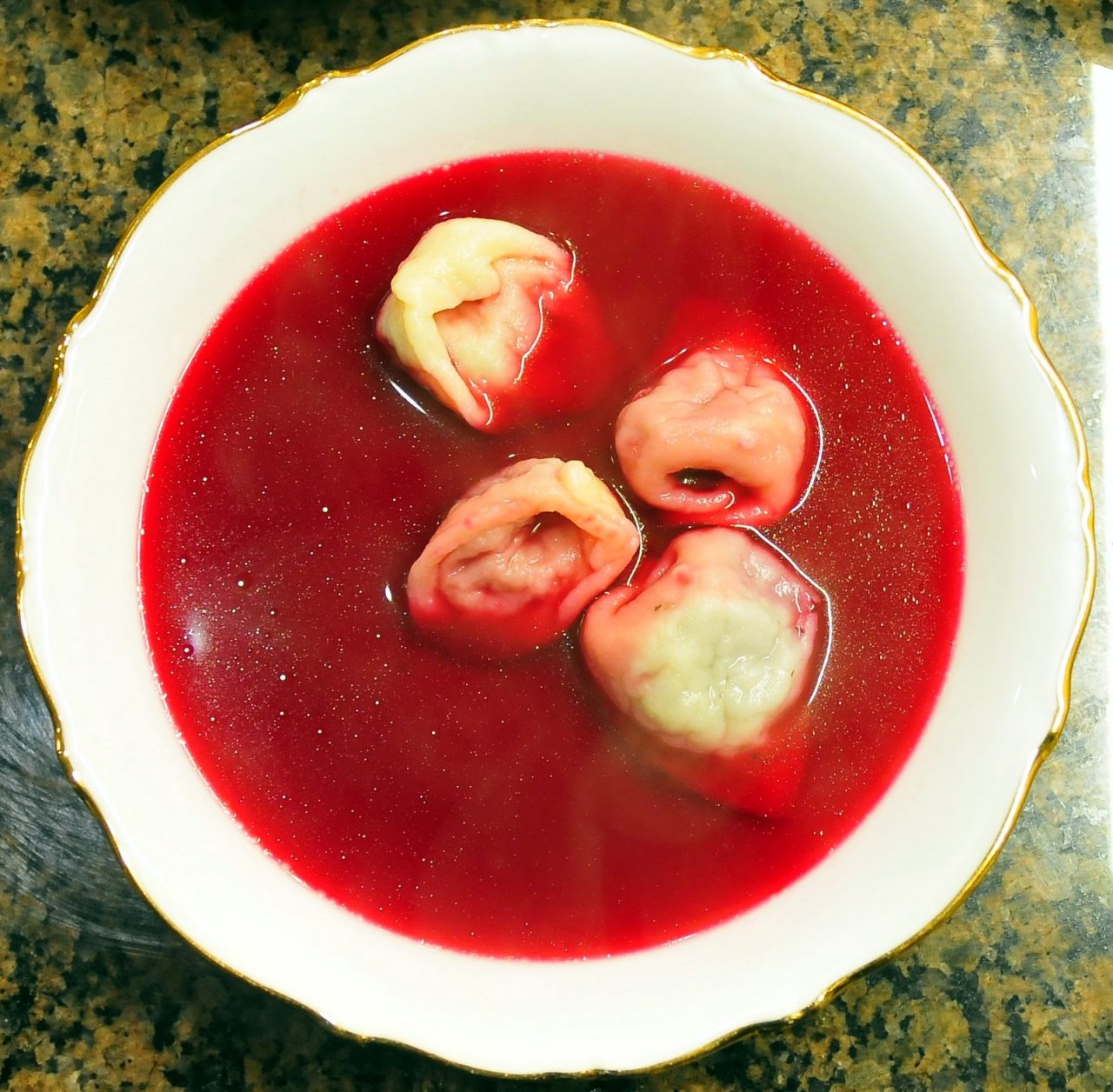
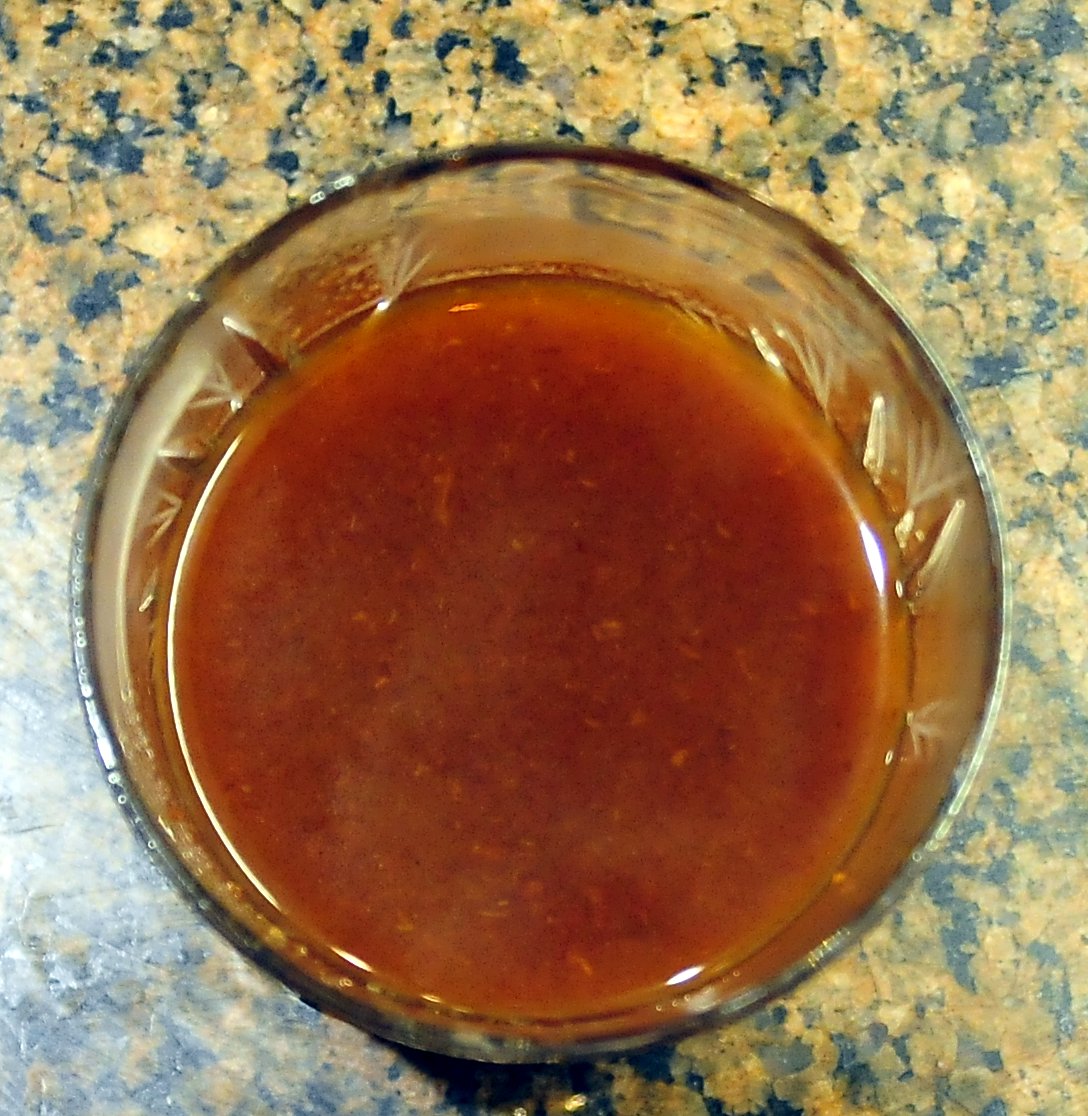
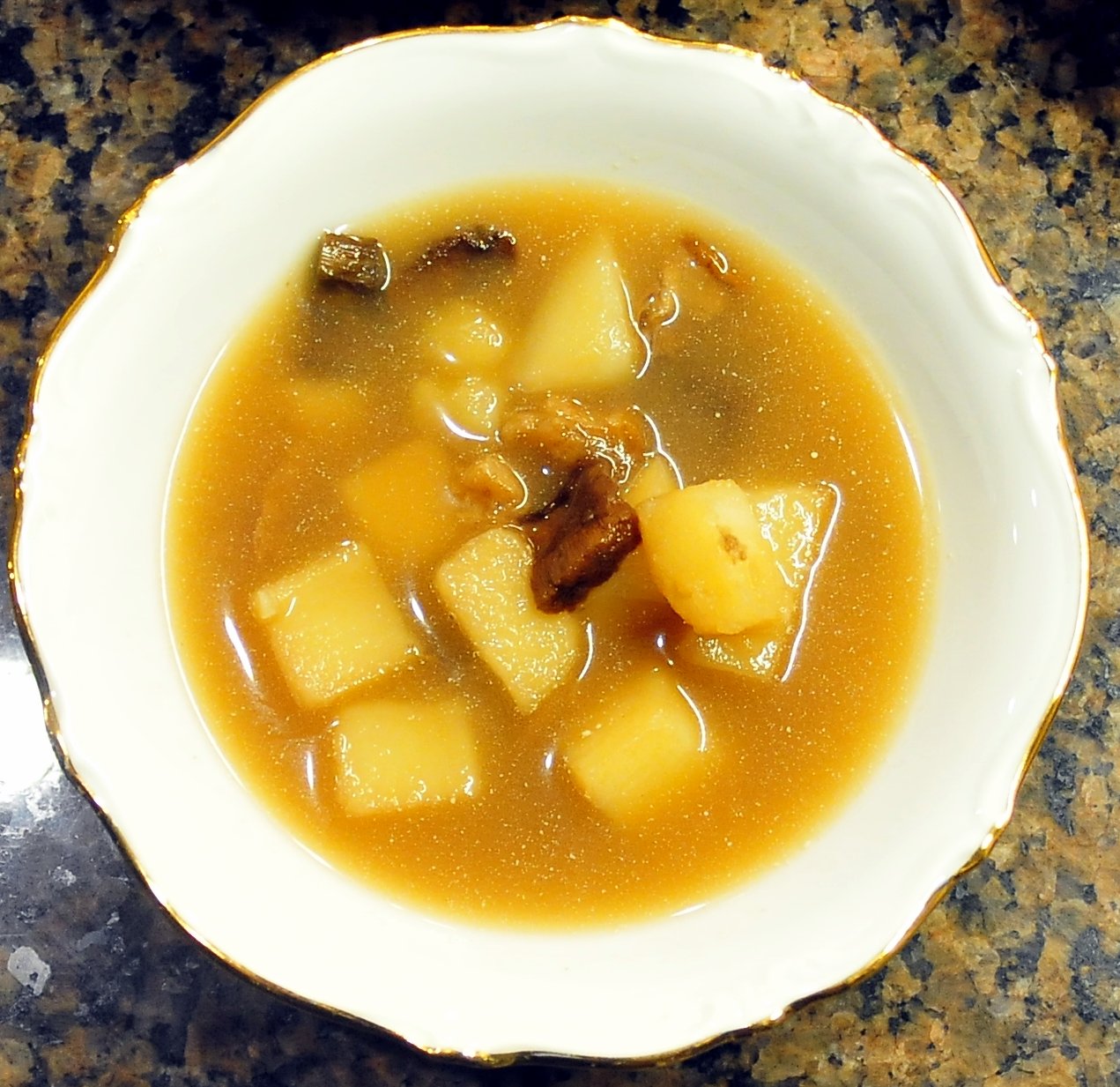
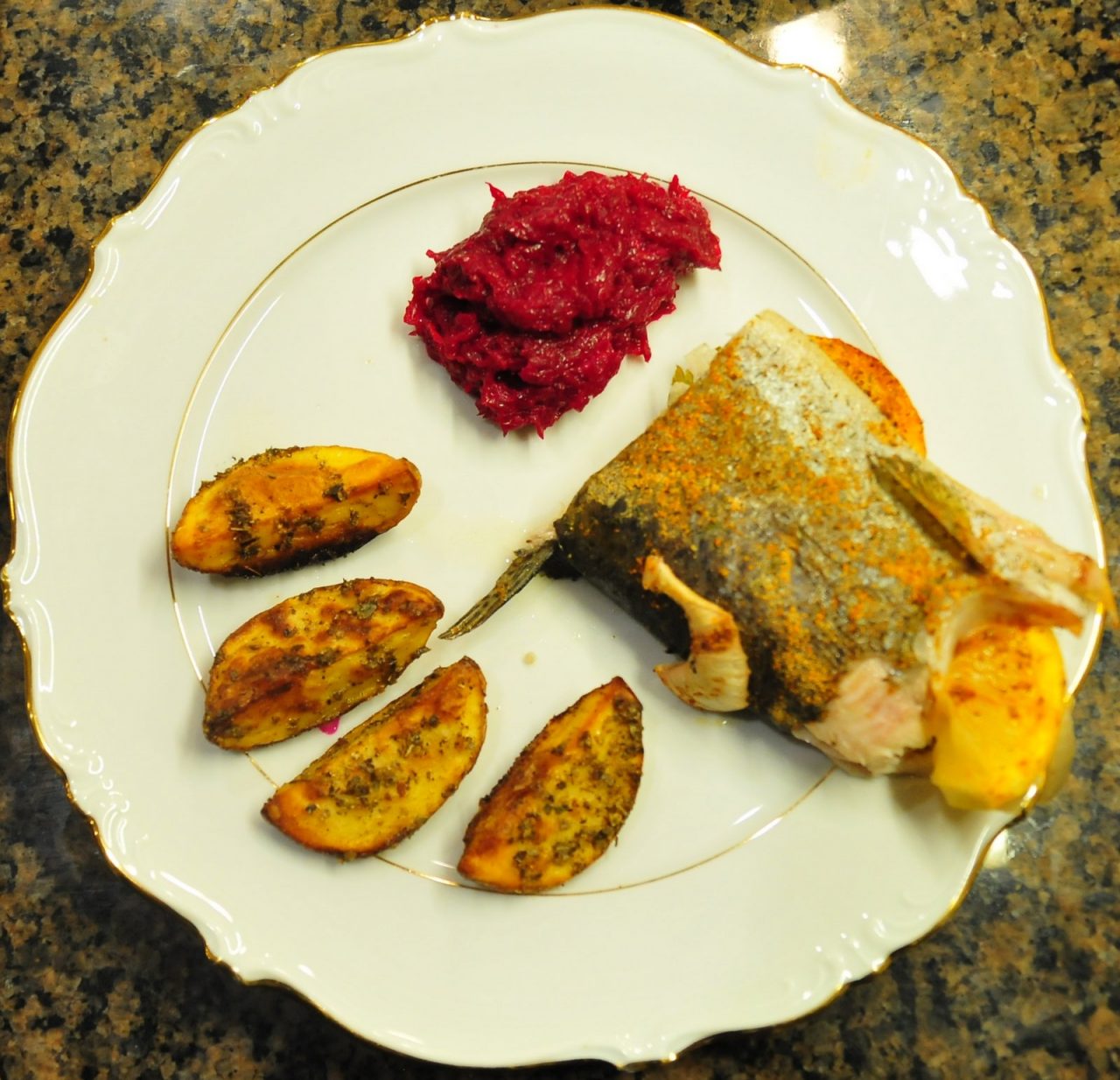
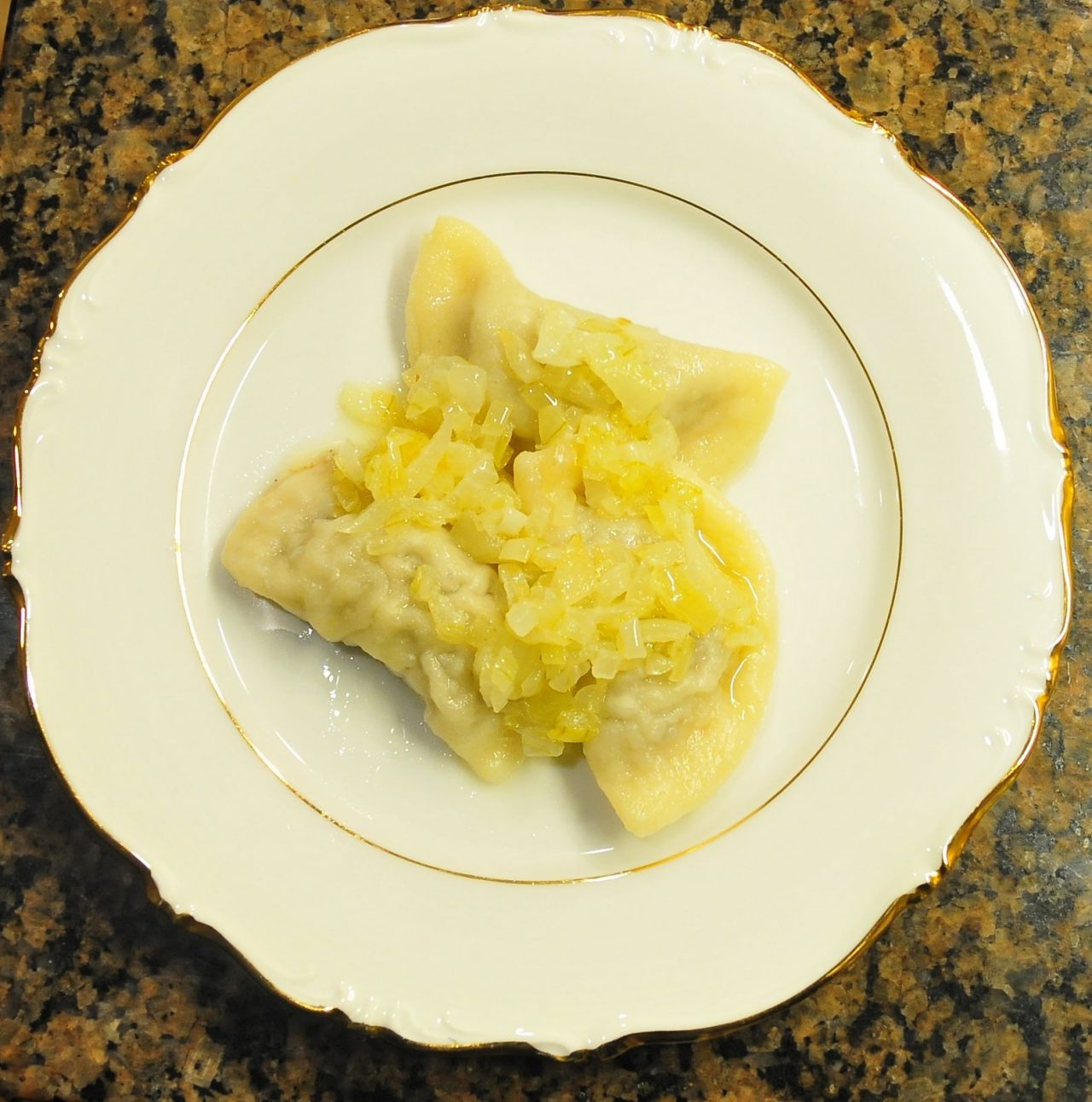
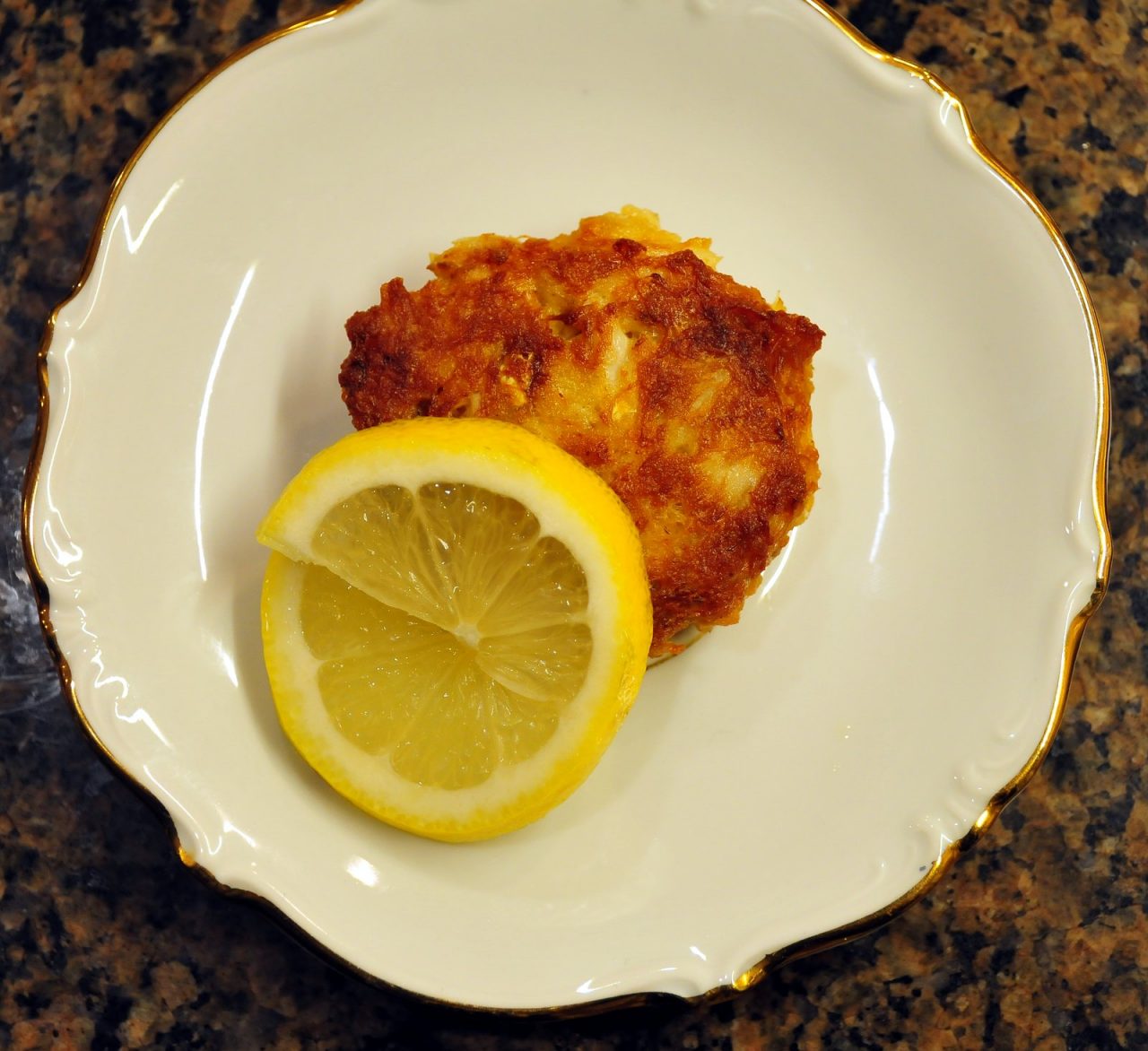
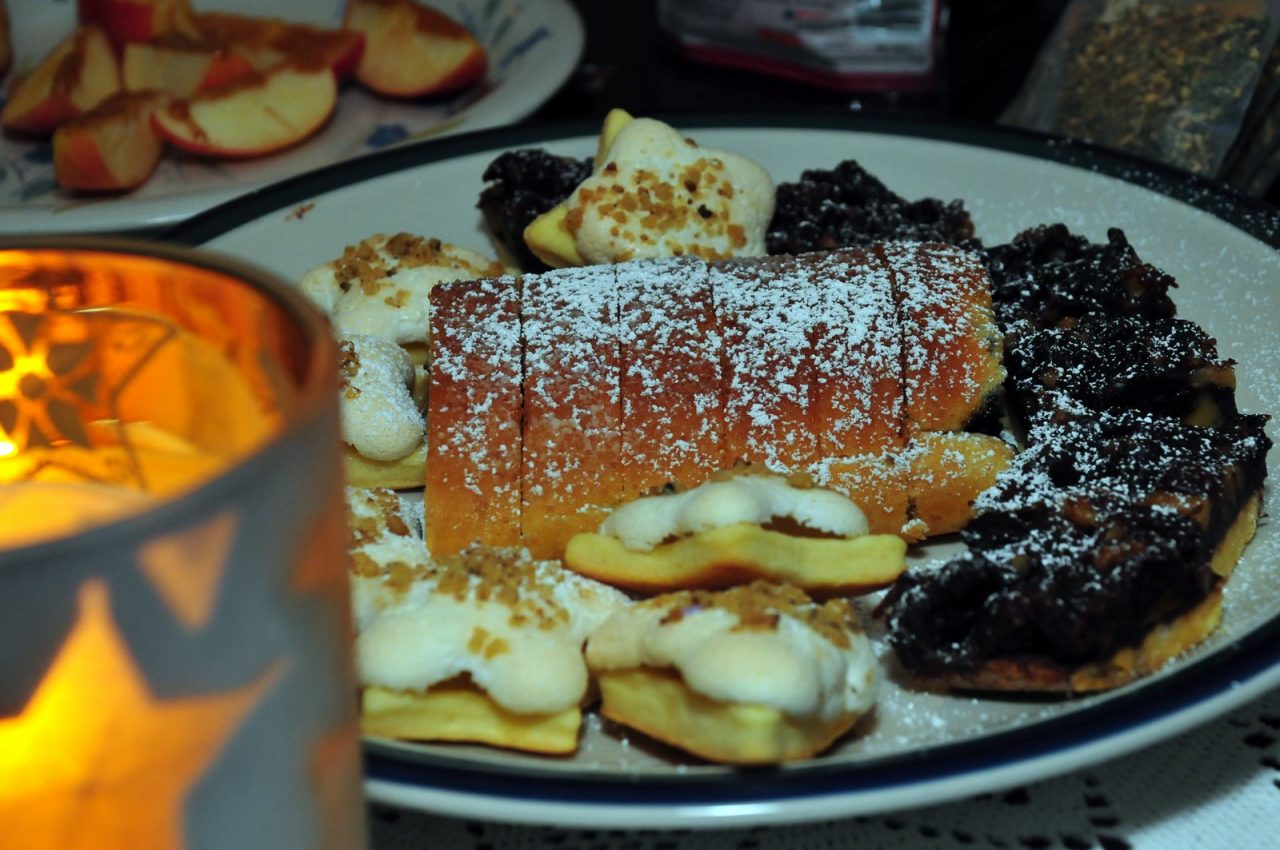
Dinner over, we head to the living room for presents. Probably this is the best part of the day for the kids: they can’t imagine what it’s like to go to bed Christmas Eve without the presents as we do it Polish style — everything opened tonight.
And I guess, truth be told, it’s everyone else’s favorite as well. The gifts we get? Who cares, really, except for one gift: the kids’ joy. The Girl got what she’s been talking about for ages: a bow and arrow set. When she saw one in Kmart the other day (when we went to find something or other for decorating), she was insistent that we buy it. That she buy it.
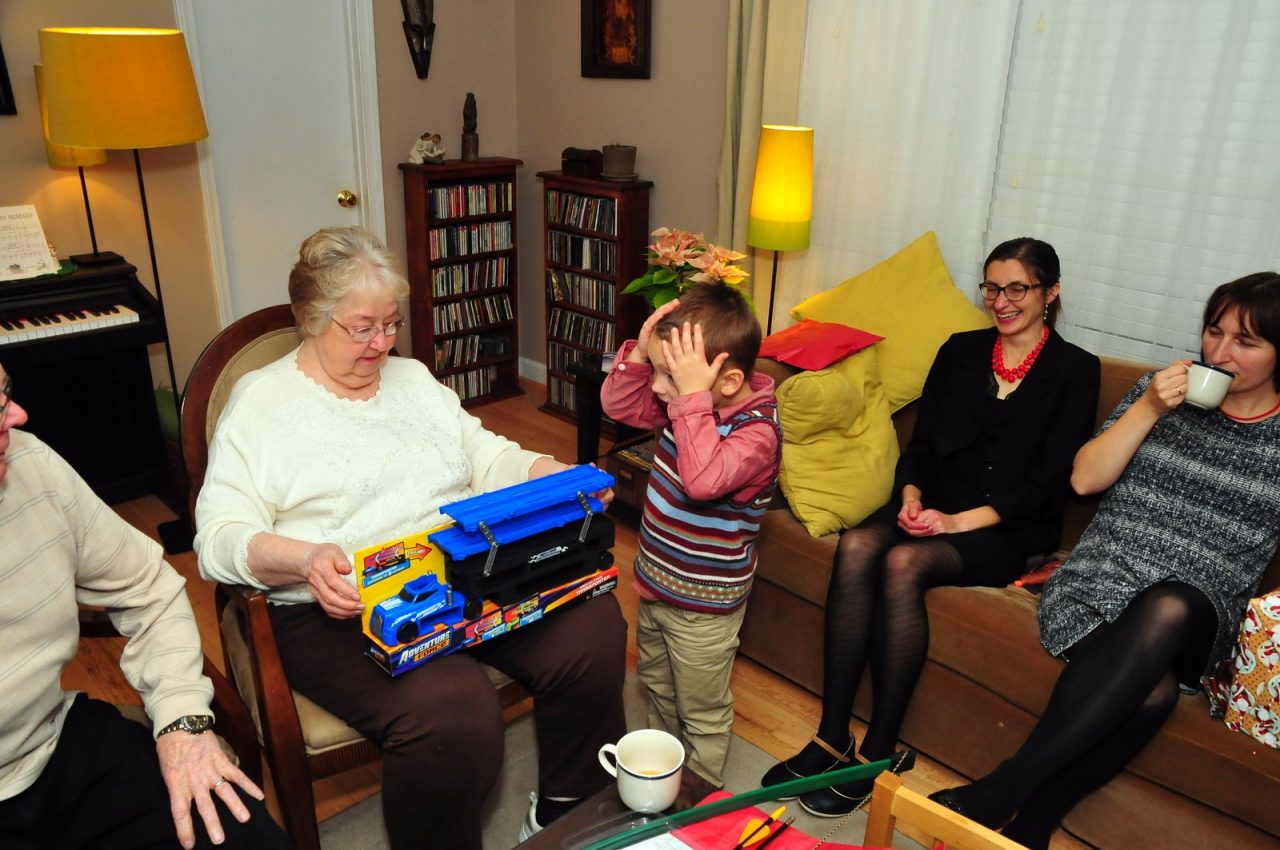
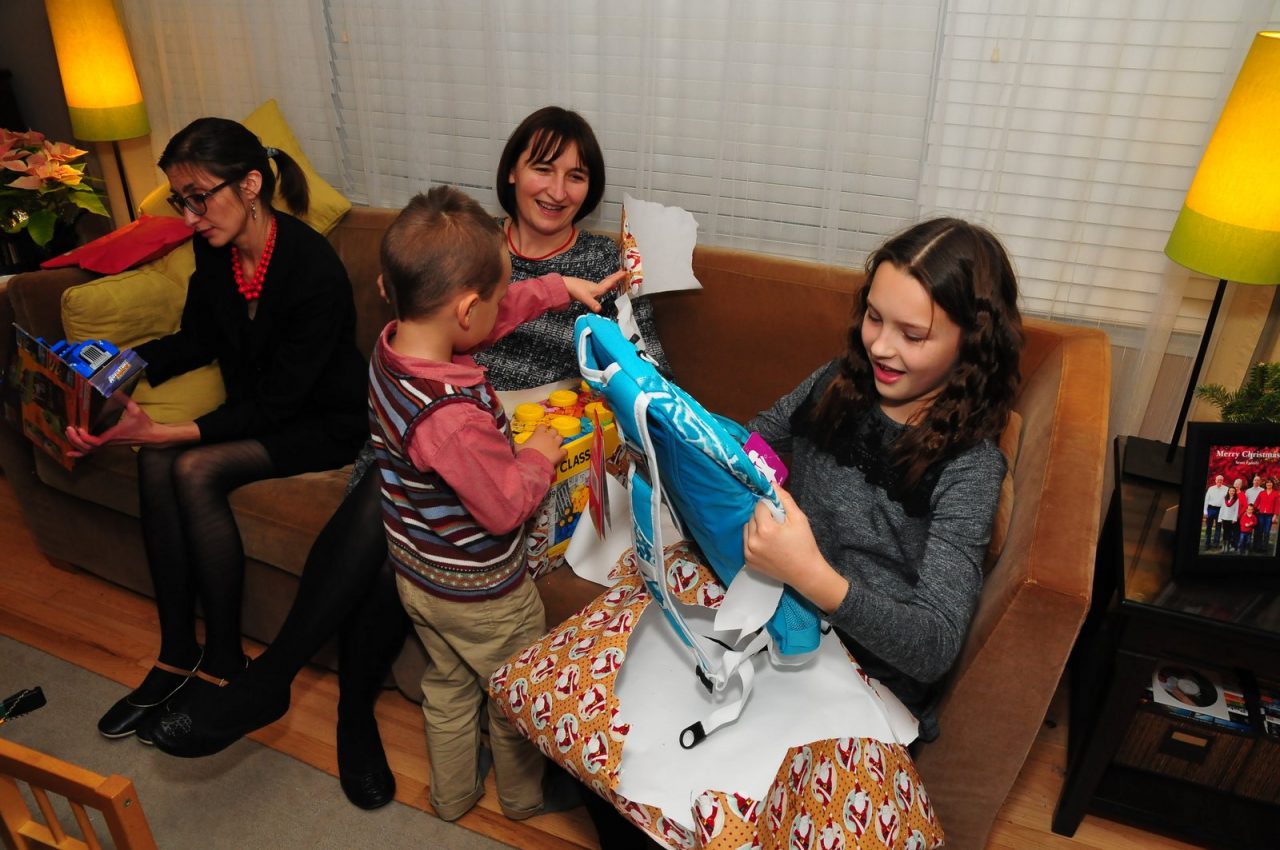
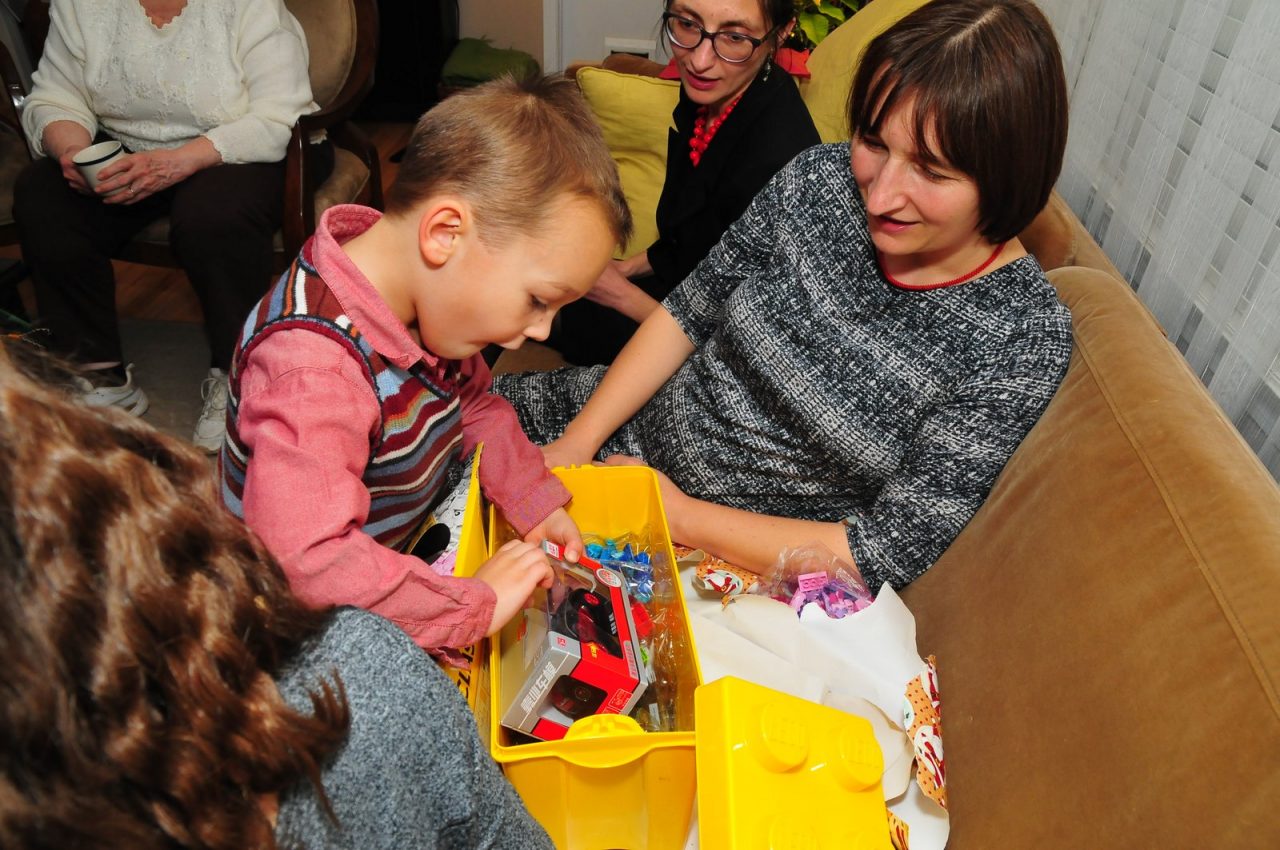
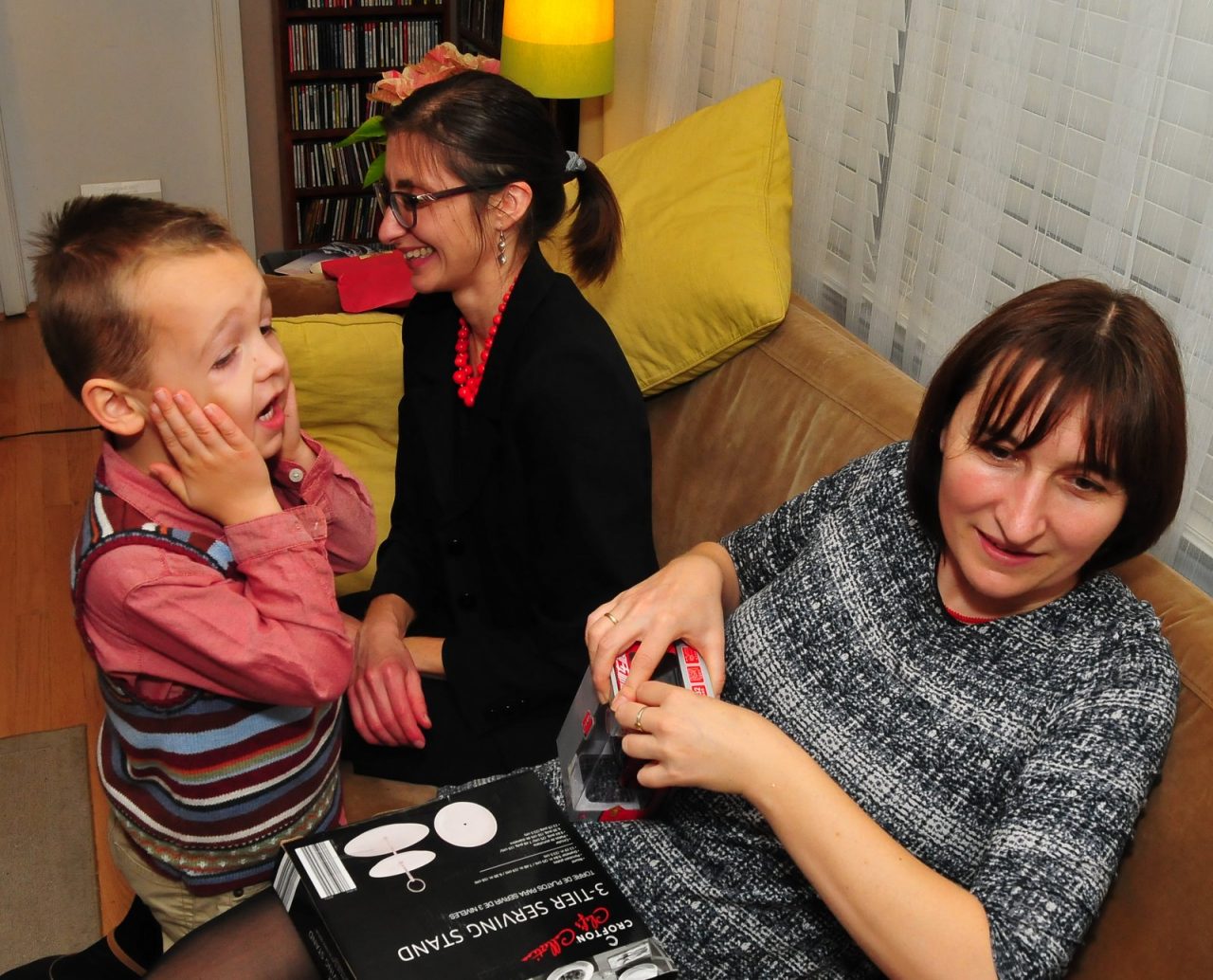
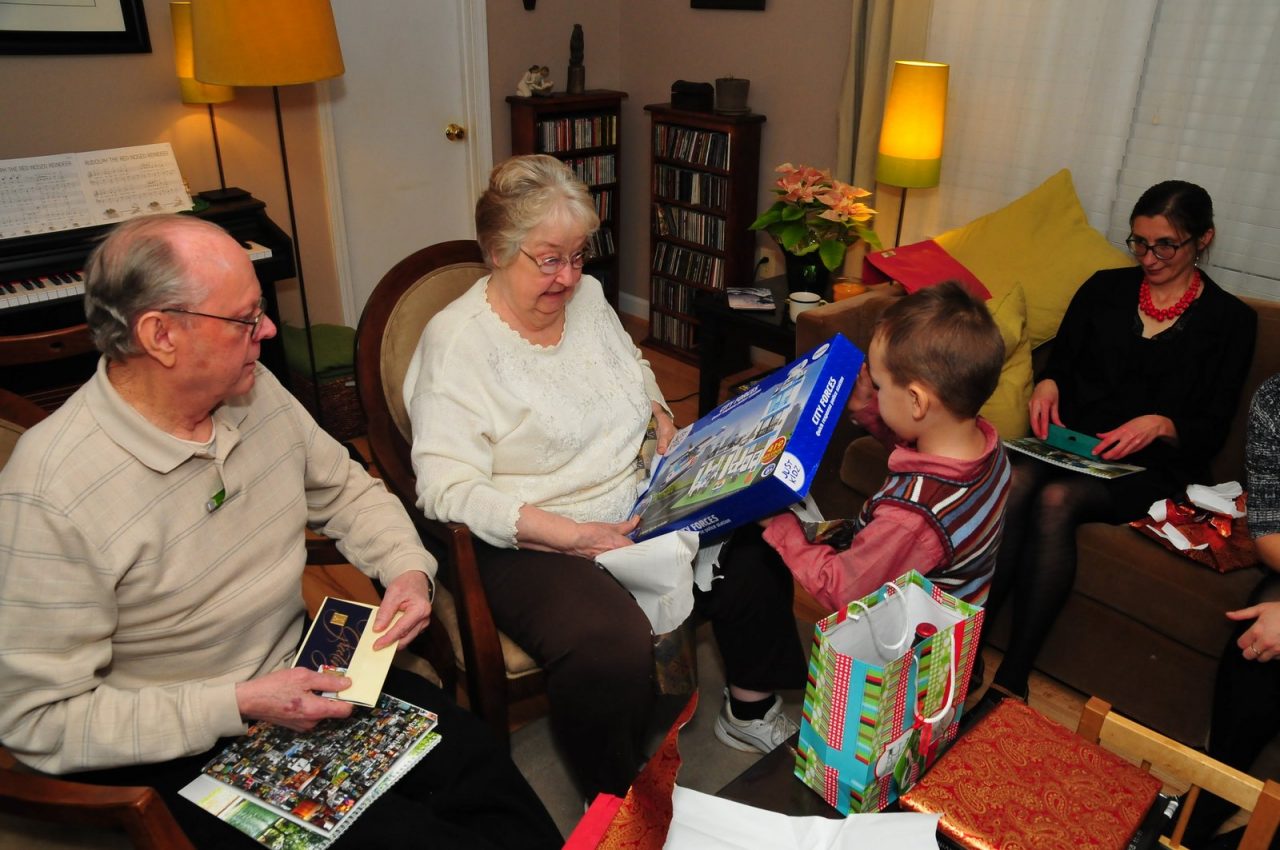
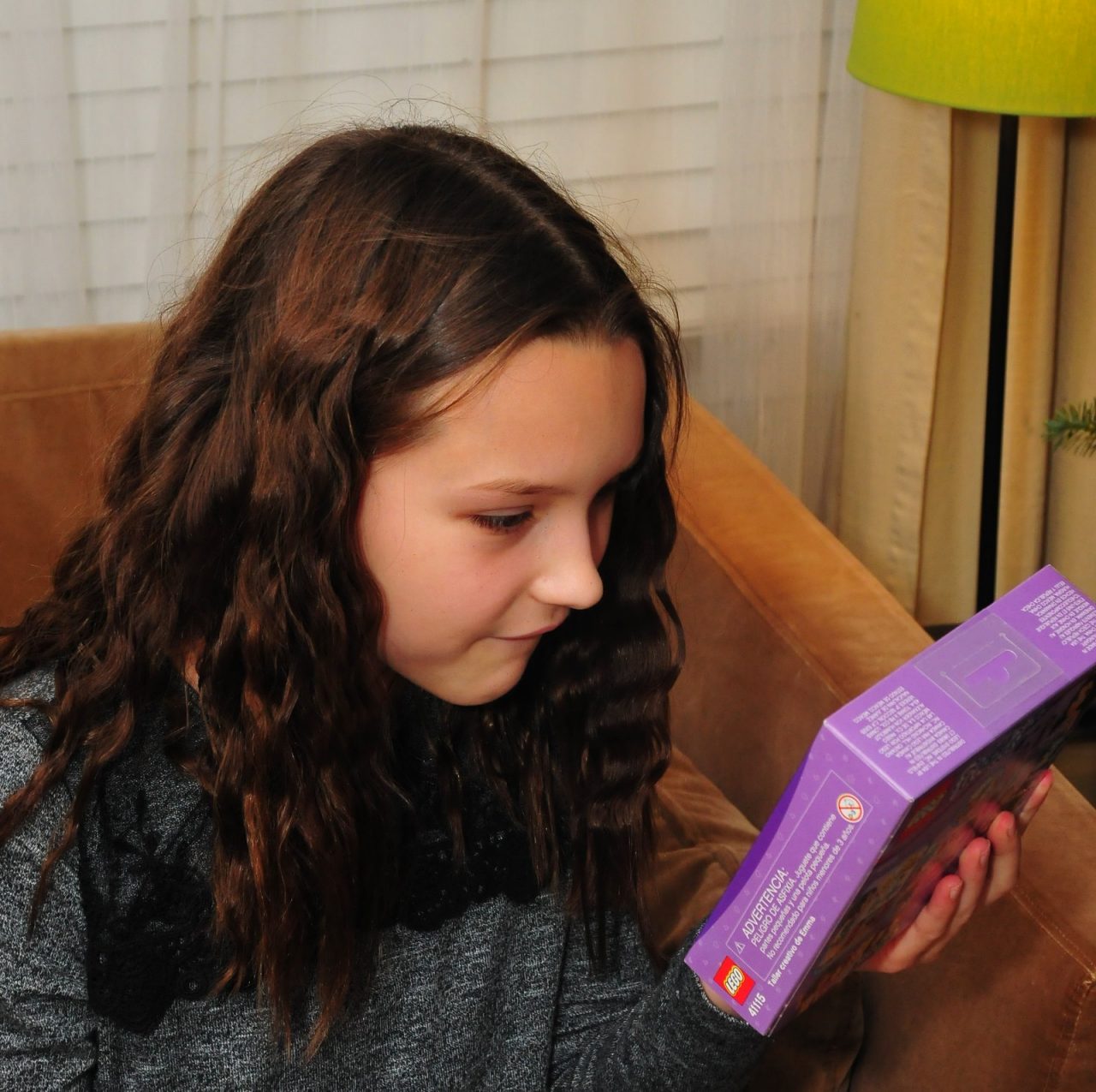
“Please Daddy, I have enough money!”
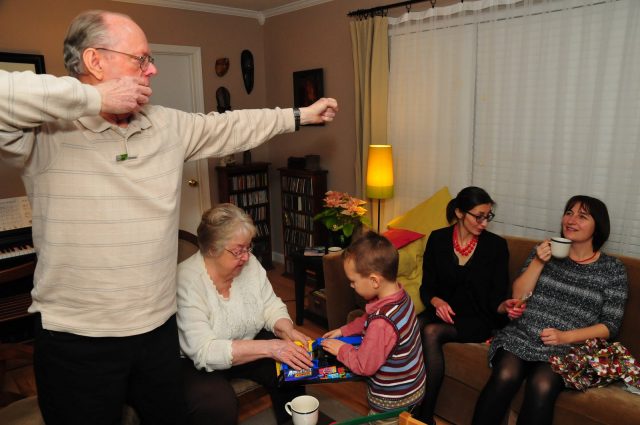
But I already knew Nana and Papa had bought a set for her, so I held my ground and played the mean Daddy. “Can we get it after Christmas?” became the mantra, to which I answered, “Nope, probably not.” Now she understands; then, she was just frustrated. Yet another thing Daddy says “No” about.
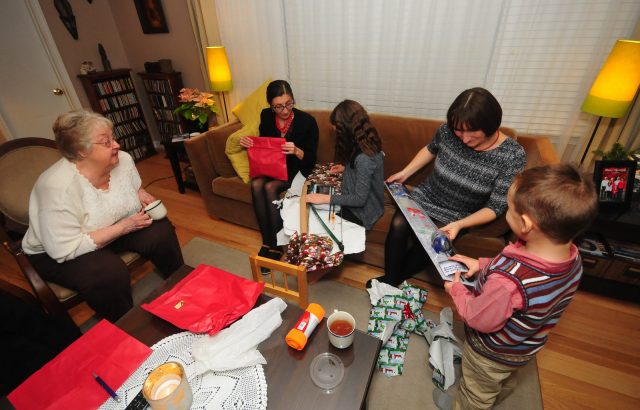
The Boy’s big prize: a fishing rod from our fishing neighbor. “Oh, I’ve been wanting one of these for years!” he exclaimed.
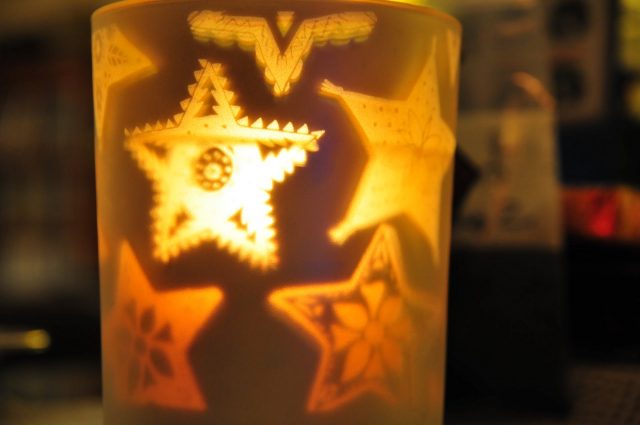
We talk and laugh, and before anyone knows it, it’s almost time for Christmas vigil Mass. Nana and Papa head home, and we pile into the car and head to our new parish.
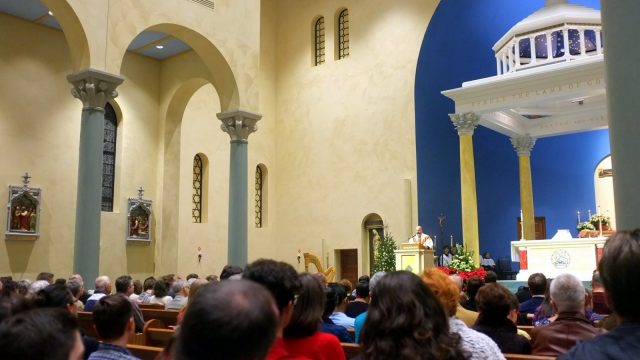
Father Longenecker’s homily focuses on the three animals that are traditionally thought to have been in the barn with Mary, Joseph, and the newborn Jesus. There’s the donkey, which seems to symbolize how we’re all so stubborn in a way. Yet it was a donkey that Christ rides into Jerusalem on Palm Sunday. There’s a continuity there.
Next, there’s the ox, which usually labors under a yoke. Three decades later, Jesus to his disciples says that “my yoke is sweet and my burden light” and invites the disciples to take up his yoke. But the early Church Fathers saw in this a parallel with taking up the cross of Christ. Just as the older ox in a pair takes the heavier load, so Christ.
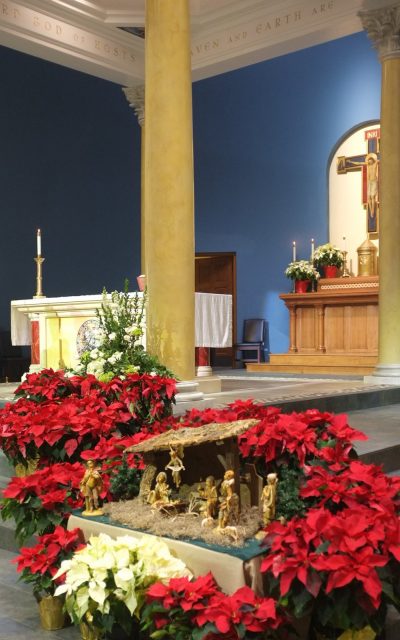
Finally, there’s the sheep. This reminds us of the fact that Jesus is both the Good Shepherd and the Agnus Dei. (Below: Penderecki’s Agnus Dei — not from tonight’s Mass.)
In closing, Father speaks of the simple crib the infant Jesus had, a manger. It’s close to “eat” in French, and therefore etymologically related to the Latin, the original language of the Church. The Church Fathers saw this as symbolic too, with the manger foreshadowing an altar and Jesus as the Eucharist.
It’s a blessing to end the evening in such a beautiful space; it’s a blessing to have a priest who gives you something to think about; it’s a blessing to have a choir that sounds like this.
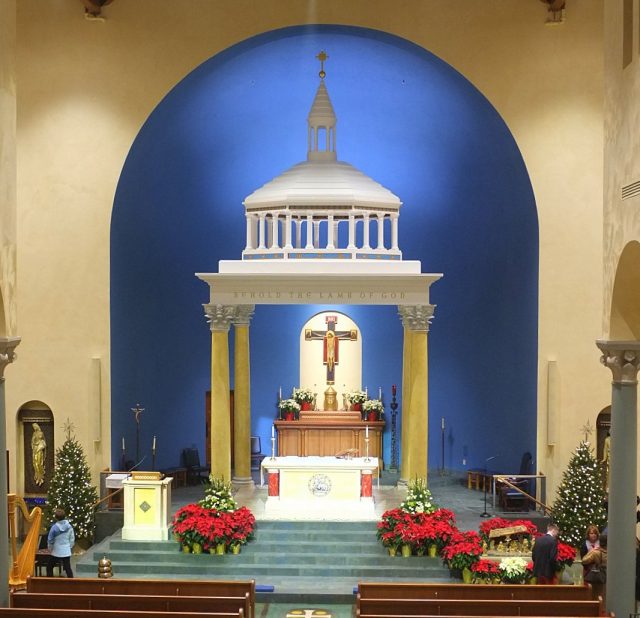
I kneel on the concrete floor, careful to put my left knee down since we don’t have a kneeler as we’re sitting in the overflow seating and I know what will happen if I put any weight on my right knee, and I think back to the beginning of the day, to my thoughts that have been bouncing around all day: what makes this Saturday any different from any other Saturday? We do. Our decision to make it different makes it different. We could abandon all tradition, we could order pizza and watch silly movies, or just go about our day as if it were any other Saturday, but we don’t. And that’s what makes it different.

I look to my fellow parishioners and familiar thoughts swirl about: even if all of this is human-made, even if the wafer the priest holds aloft as the altar server clangs the altar bell remains just a wafer, there is value in all of this, in the singing, in the humbling (after all, isn’t that Christmas is about, the ultimate humbling?) of ourselves, the stopping one day a year and looking about us and seeing all that’s beautiful in the little spheres we orbit.
Previous Years
Wigilia 2003
Wigilia 2004
Wigilia 2005
Wigilia 2006
Wigilia 2007
Wigilia 2008
Wigilia 2009
https://matchingtracksuits.com/2010/12/25/wigilia-2010/
Wigilia 2011
Wigilia 2012
Wigilia 2013
Wigilia 2014
Wigilia 2015
Baking 2016
It’s been a tradition in our house and on this site for years now — a record of all the chaos that’s been going on the last day or so getting ready for Wigilia tomorrow night. Almost ten years’ worth, starting in 2007.
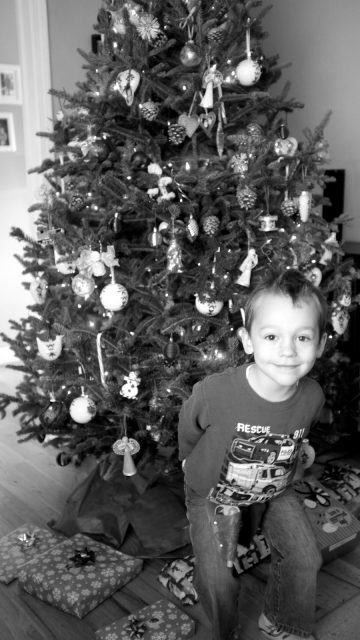
It’s always the same — sometimes even the same menu. Sometimes, like this year, we try something new, but not too new. Makowiec — a traditional dessert for Wigilia, but one we’ve never made. And even if it were the identical menu year after year, there’s more: there’s the act of baking, the act of cleaning, the fussing, the worrying.
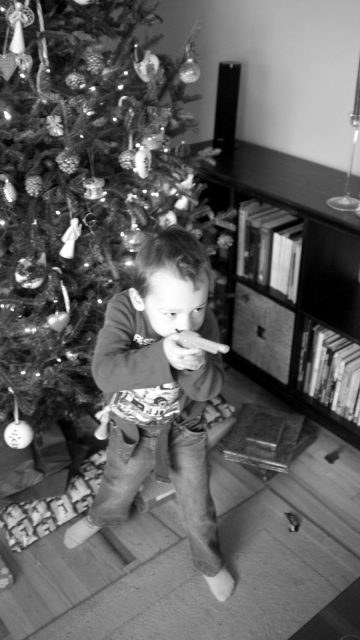
There are the disasters and near-disasters: cakes that didn’t turn out like they were supposed to; mixers that cease mixing; real and imagined worries and stress.
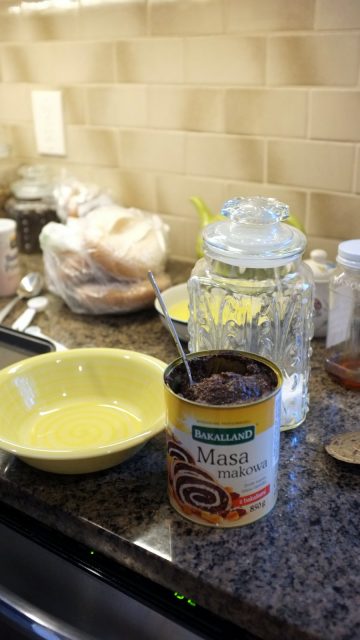
Some years K is always trying to bake while I try to clean up the mess behind her, which usually ends up cleaning up beside her, which ends up making more mess than if I’d just leave it all alone.
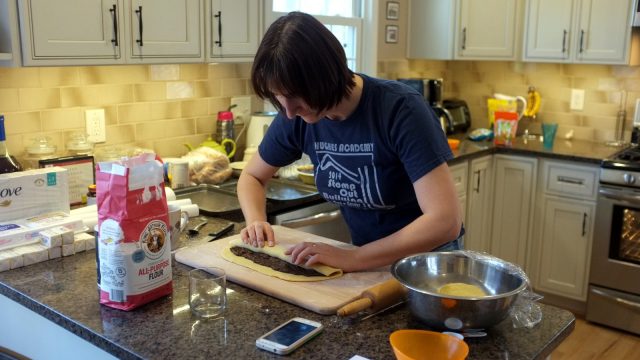
Some years I turn my attention outdoors, smoking meats or mowing the lawn one last time to get up the leaves that have accumulated and occasionally because the grass actually needs it, even in December.
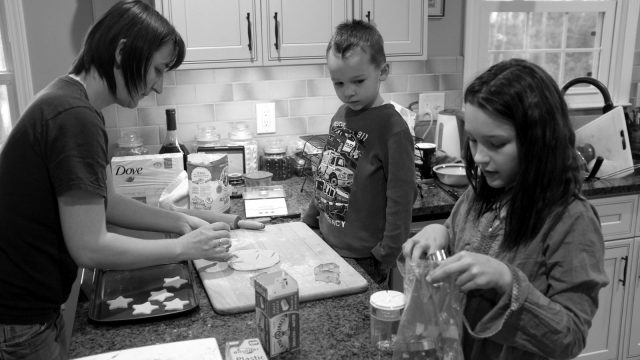
But those are just repetitions that have longer cycles. I don’t mow every year around this time, but the mowing falls on the baking day every now and then. I don’t force my way into the kitchen every year, but every three or four years, I fancy myself helpful.
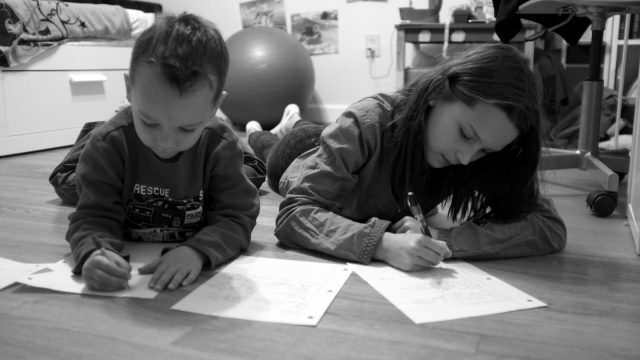
Today, though, I managed to do a little of everything. Perhaps that’s because, despite the repetition, we have one new element in this yearly ritual: it’s all happening in a new kitchen.
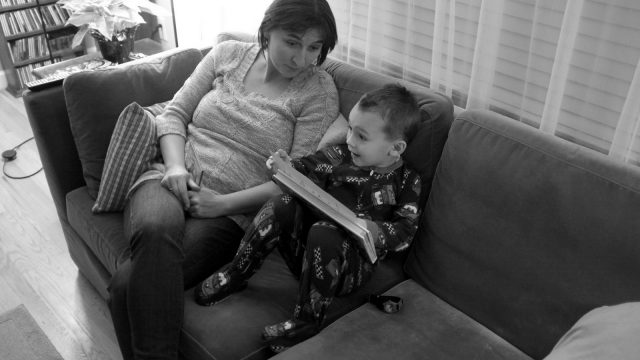
Steps
The barszcz takes several days to prepare because you have to ferment the beet juice first, and that takes a while. The herring salad takes a couple of days to make because it has to marinate. Or rather, re-marinate. The fish course — trout this year — is unpredictable, so we ordered it a week ago, for pick up on Saturday morning.
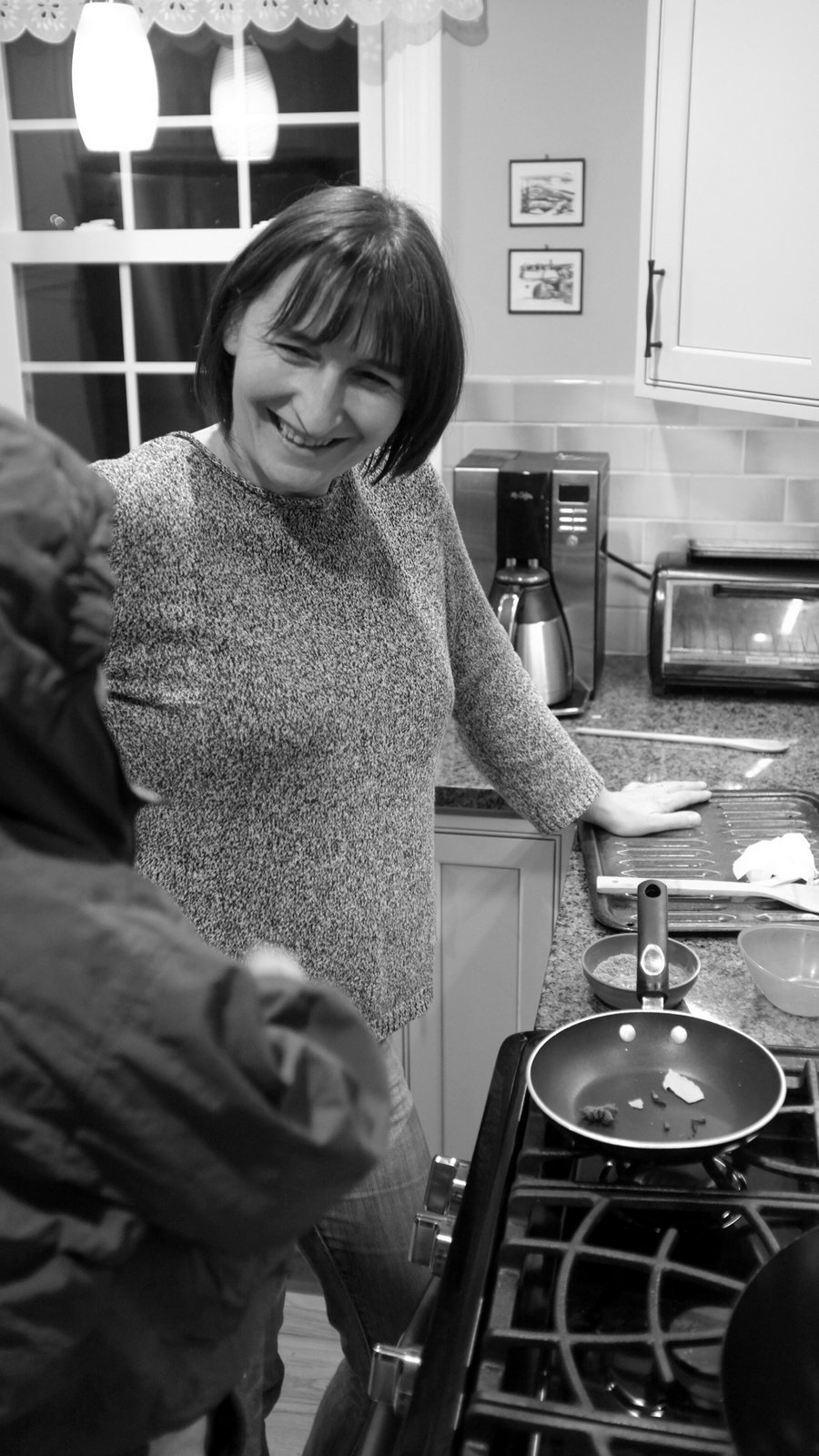
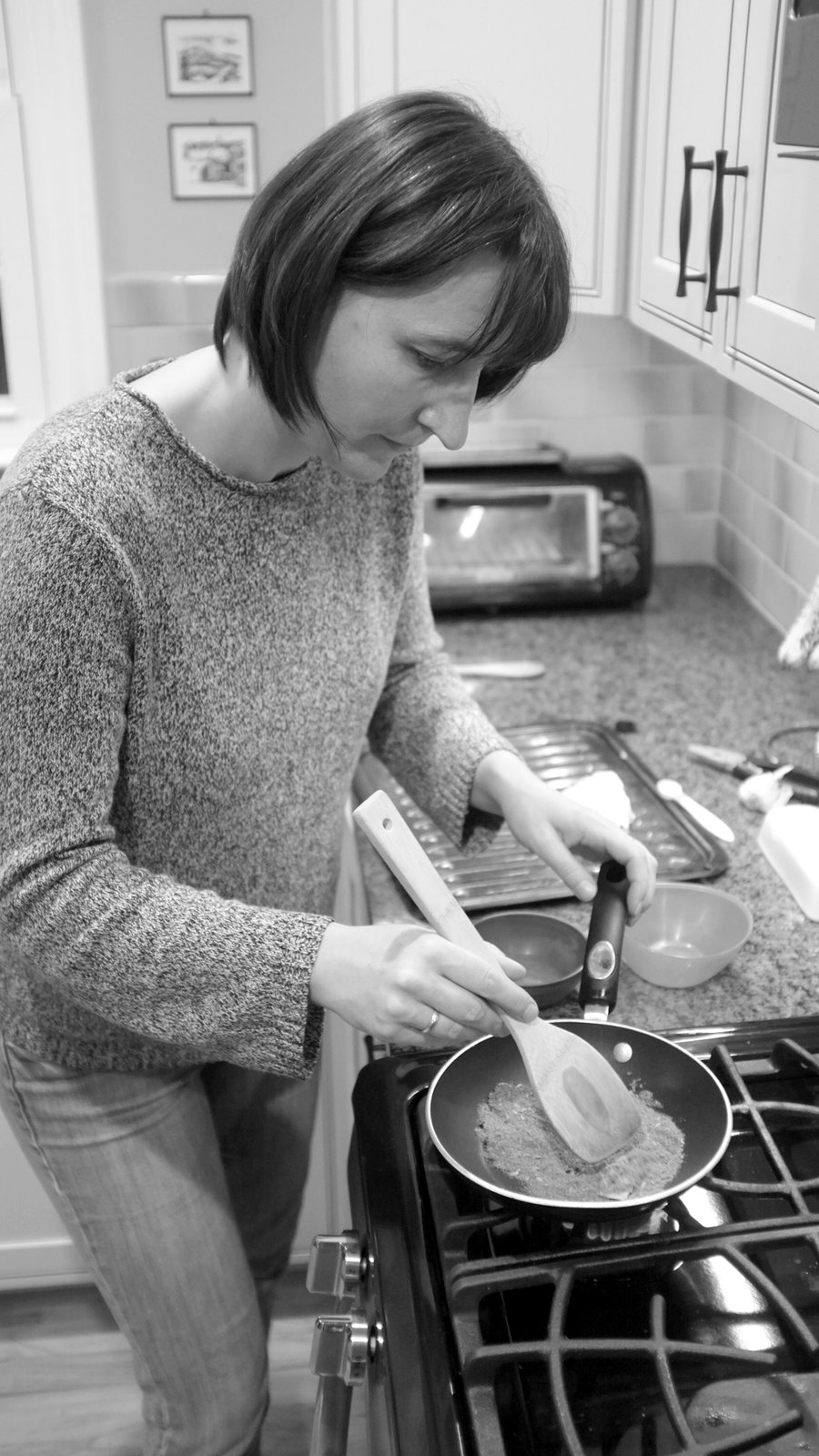
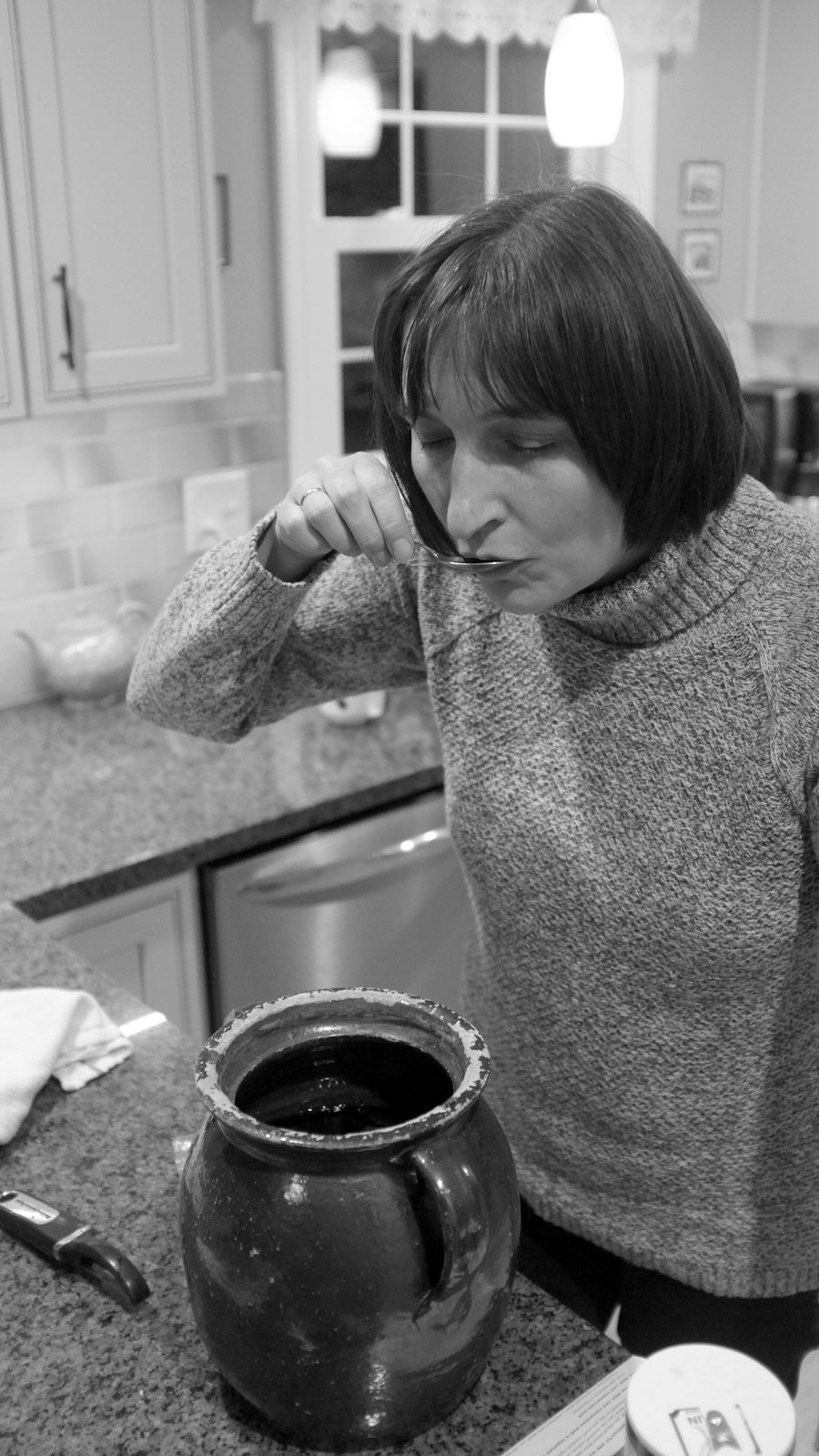
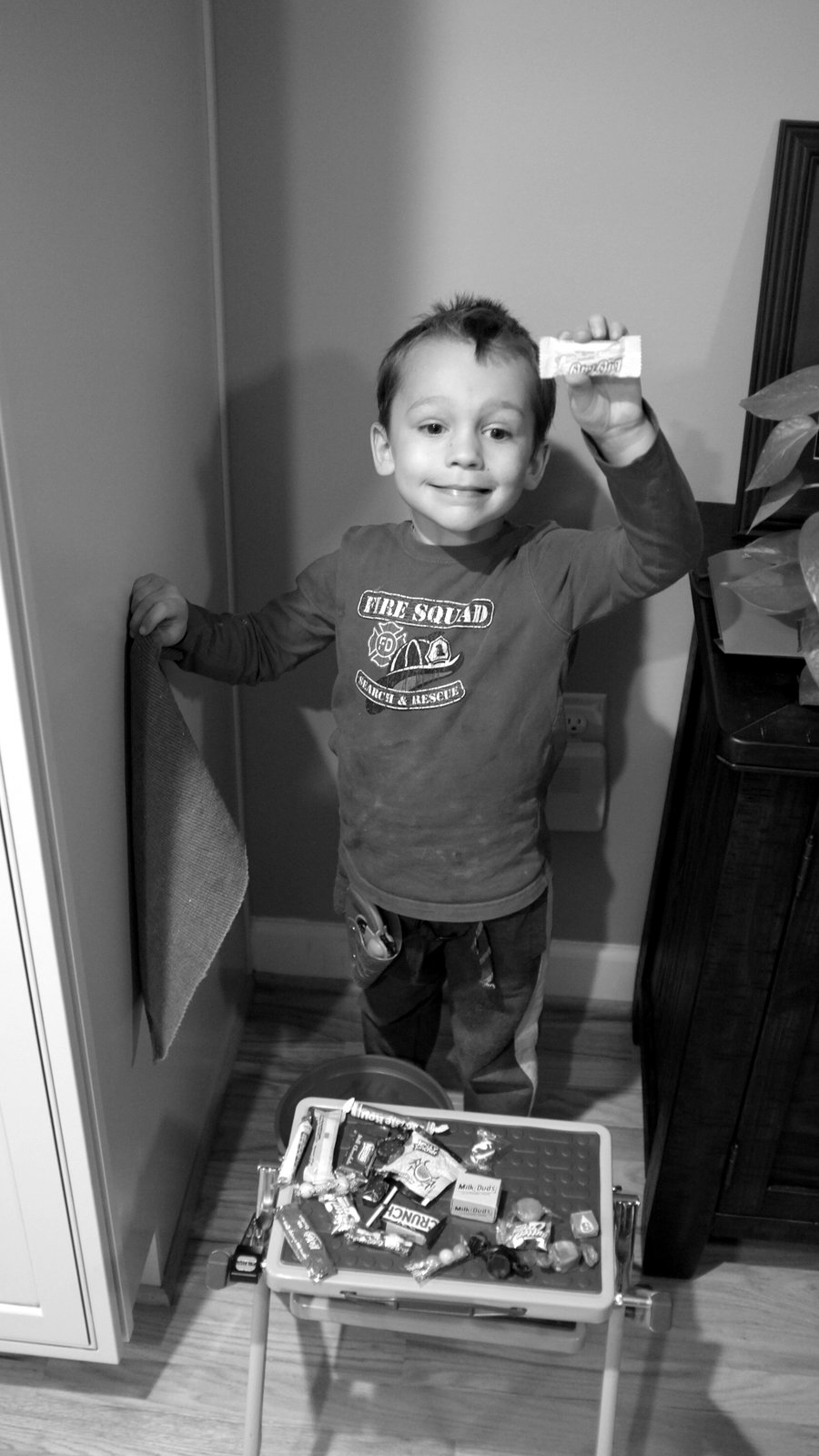
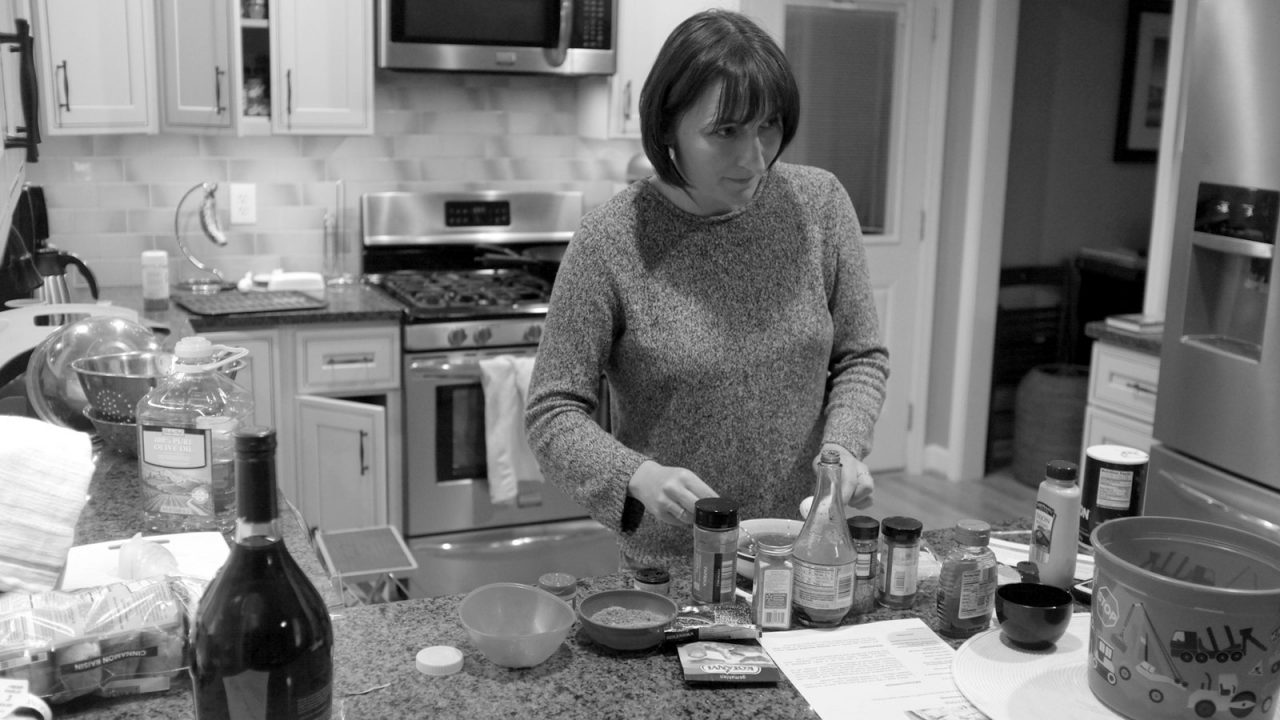
And of course for the kids, it’s been a year in the waiting.
Grinding
The Boy always likes helping in the kitchen. He likes helping anywhere, but especially in the kitchen. These days of Advent, that’s always a good thing: K can use all the help she can get in the kitchen.
Tonight: filling for the Christmas Eve dinner dumplings — the uszka (for the barszcz) filled with mushrooms and the pierogi stuffed with a sauerkraut-mushroom mixture. There’s lots of sauteing and grinding. We probably go through two sticks of butter in the process.
“We’re Polish, so that means we use butter for everything,” the Boy exclaims as we cook.
Tonight, we try out our new grinder attachment for the silver Beast, which usually sits on one of the racks in the basement but has spent Advent on the counter top upstairs. We finally have enough counter space to do it, why not?
We have definitely moved past the “It’s so new — don’t touch anything” phase of our new kitchen. It’s like the old one never existed. Certainly makes the pictures look better.
Jasełka 2016
Early Christmas
A package for Christmas from the Polish shop.
Plums in chocolate, finger-sized sausages (“You can eat as many of those as you want this summer in Poland,” I told E when he fussed about not being able to eat yet another bit), fermented rye flour for soup (L requested it for her birthday meal — that’s my Polish girl!), fat links of sausage, German coffee (the type I always bought in Poland — Tchibo Exclusive, which you can get from Amazon, but it’s not the same, is it?), and other goodies.
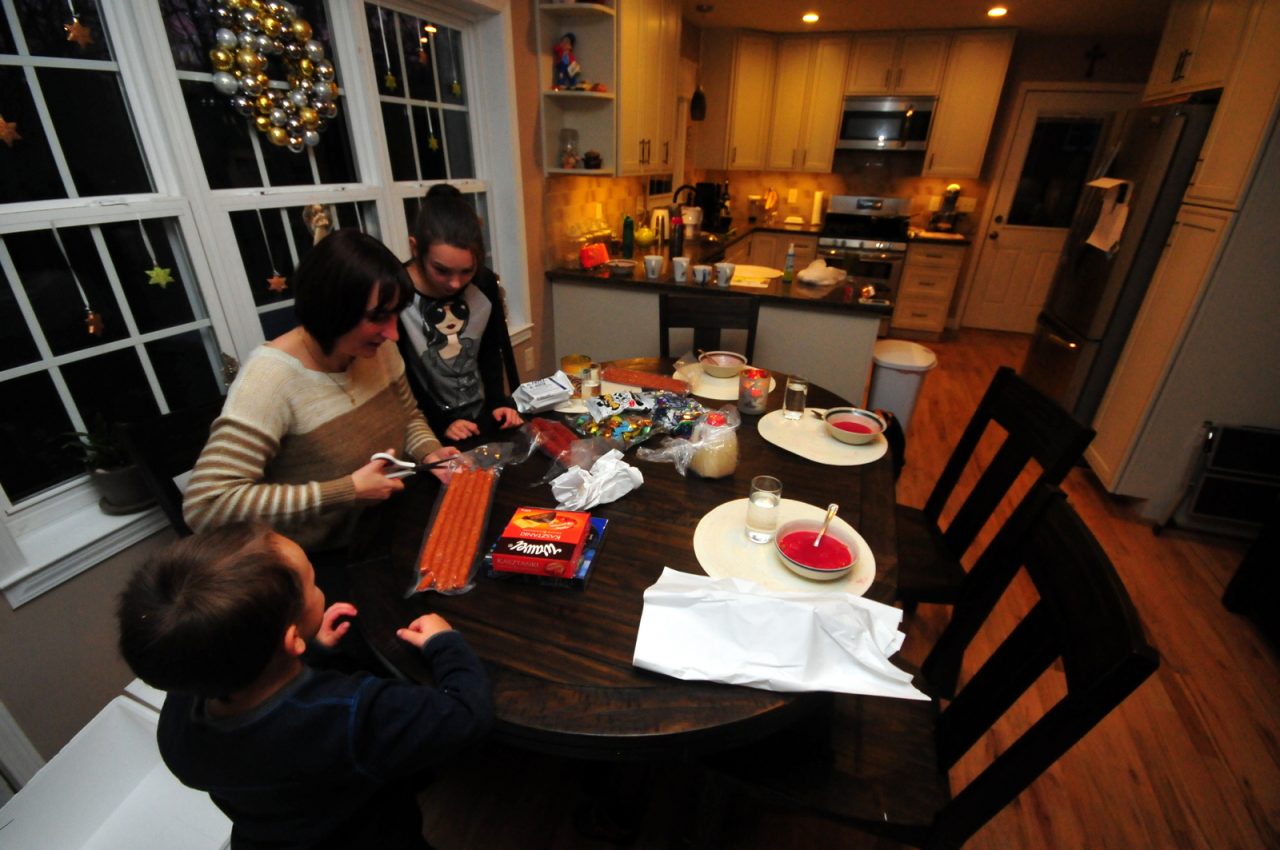
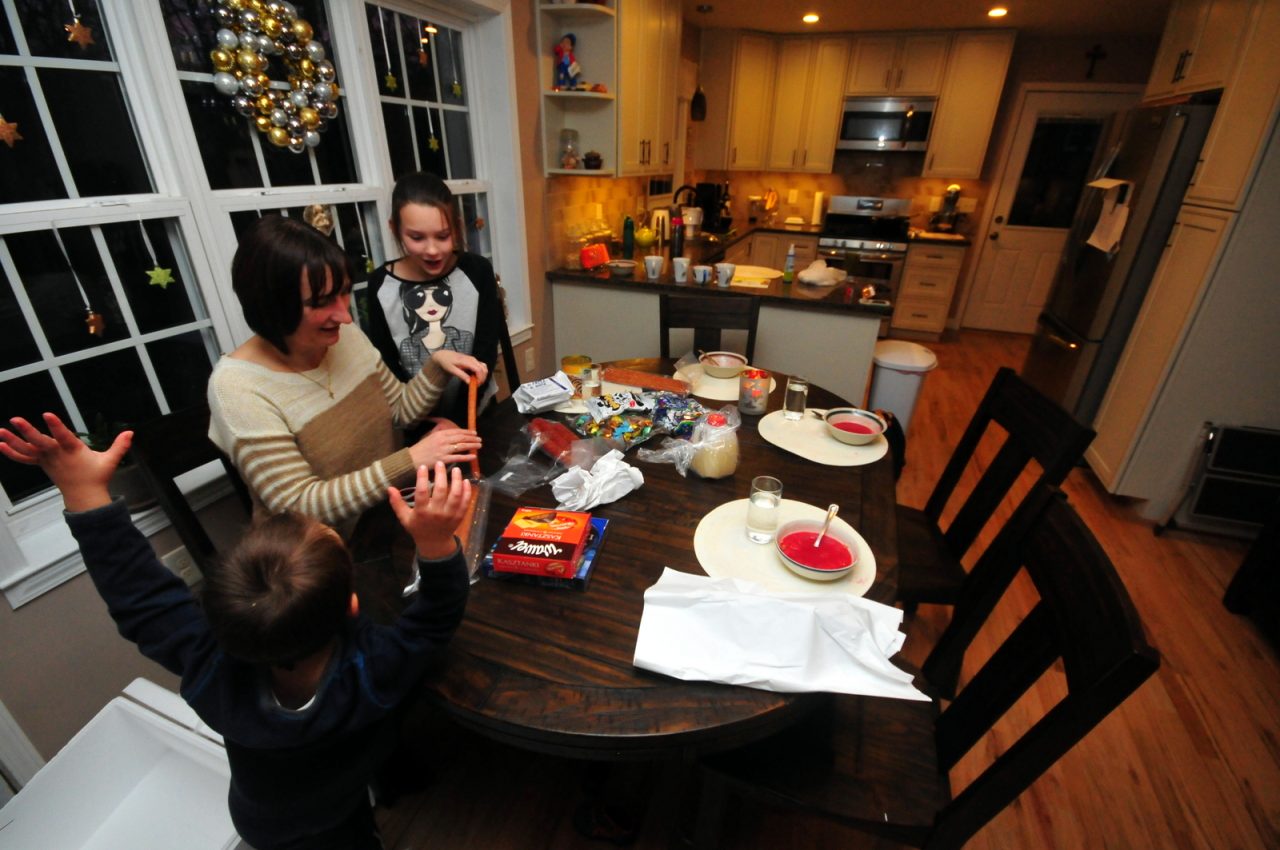
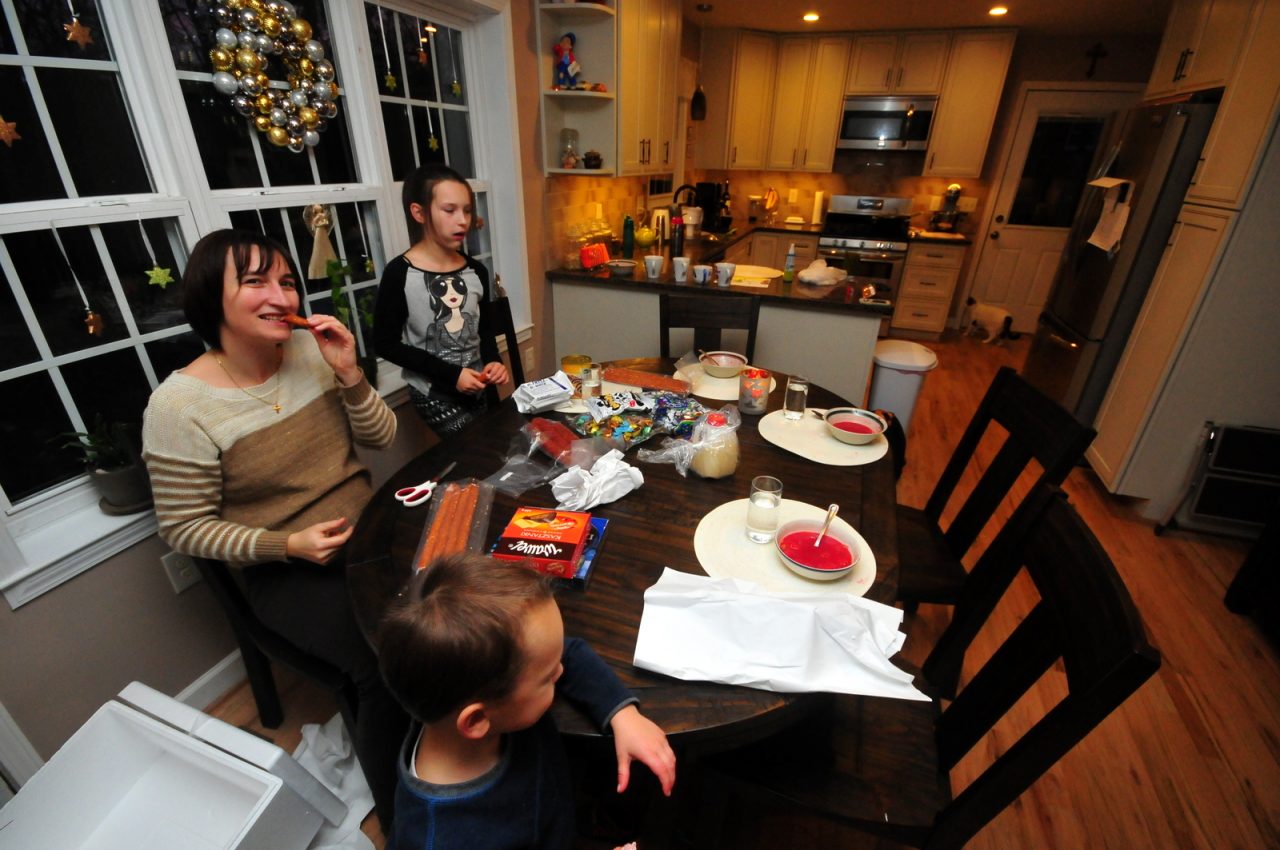
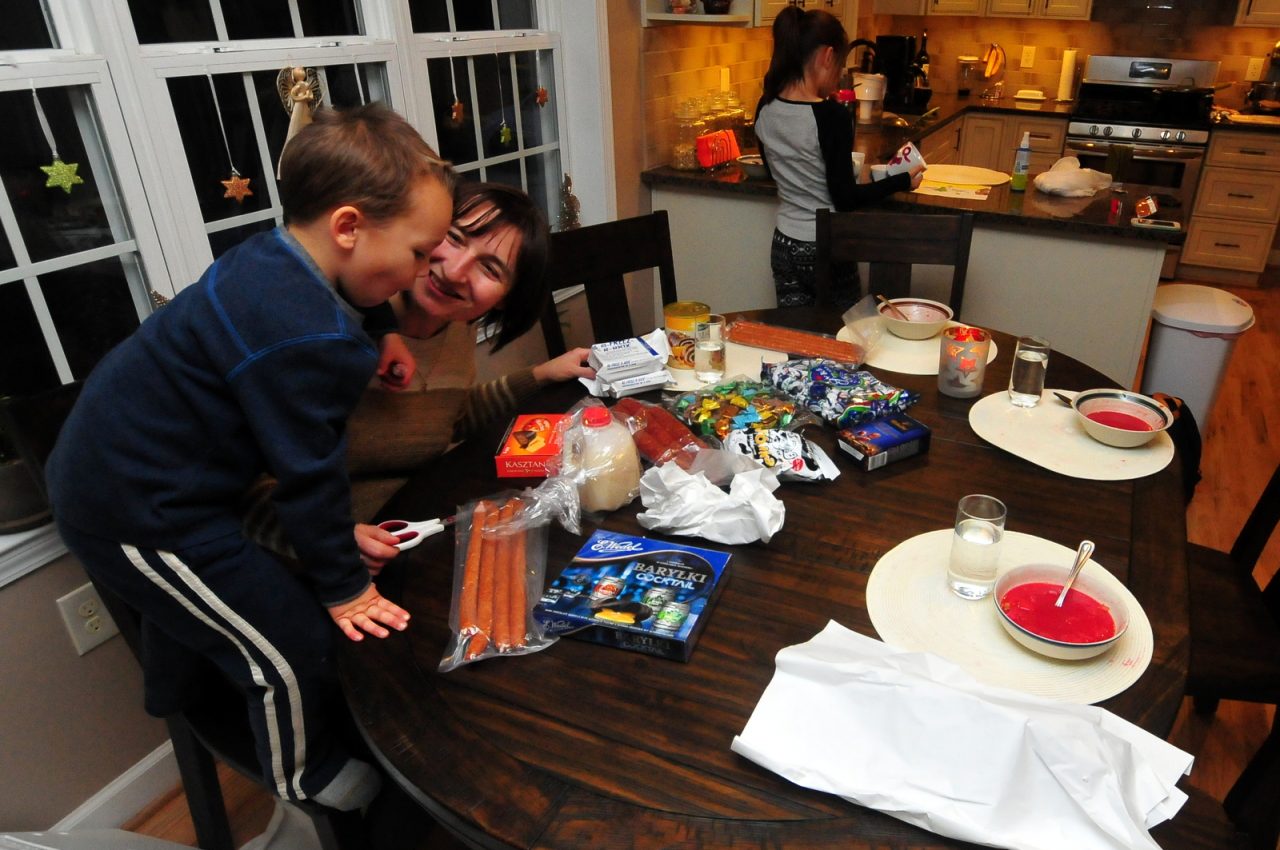
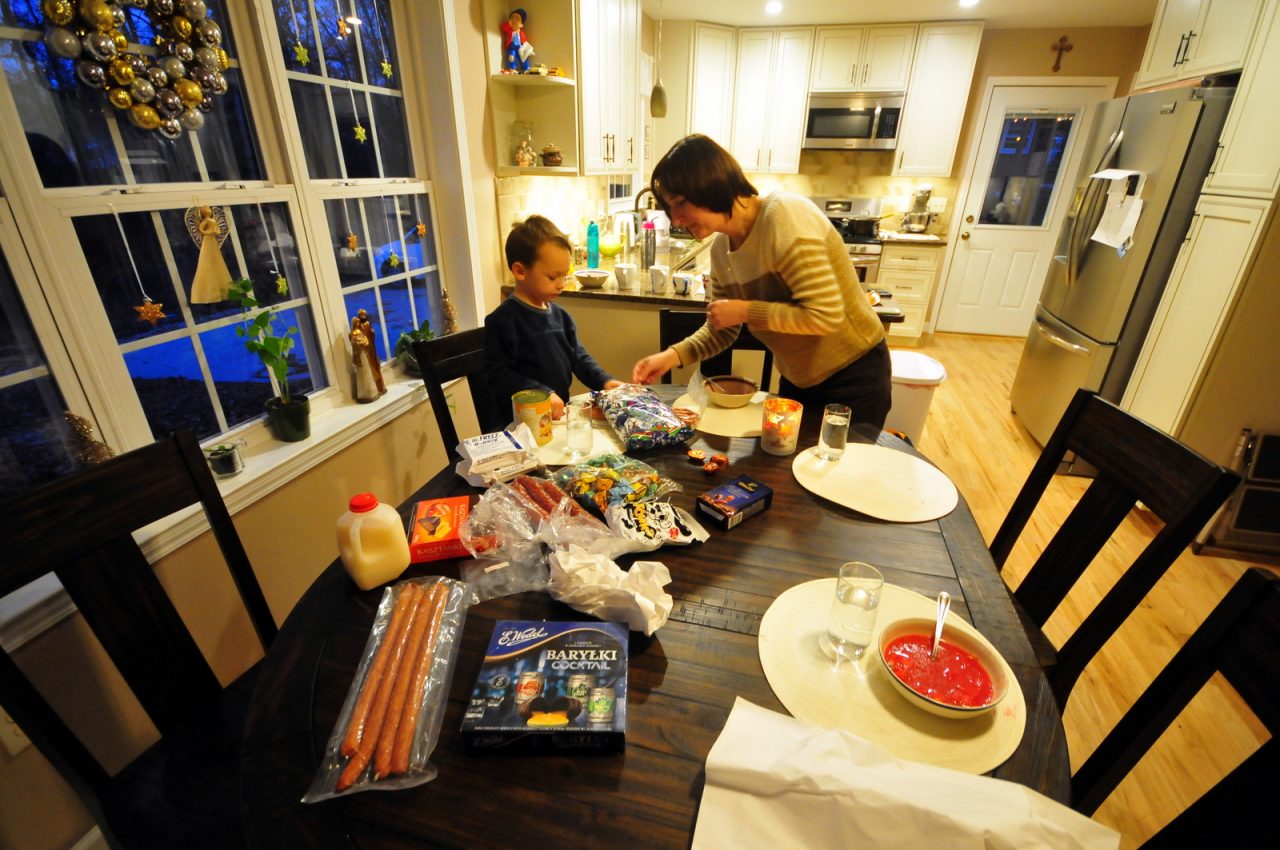
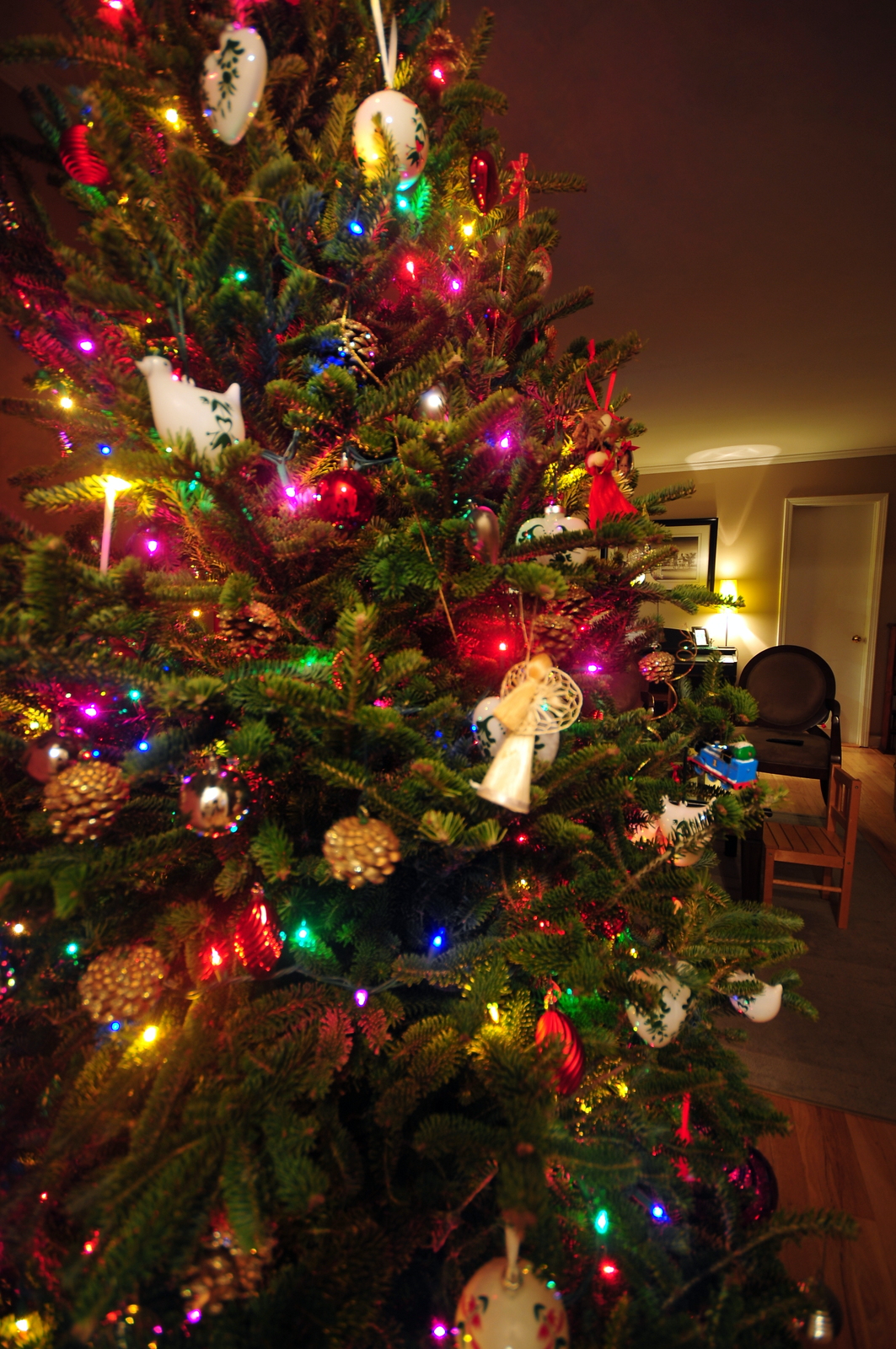
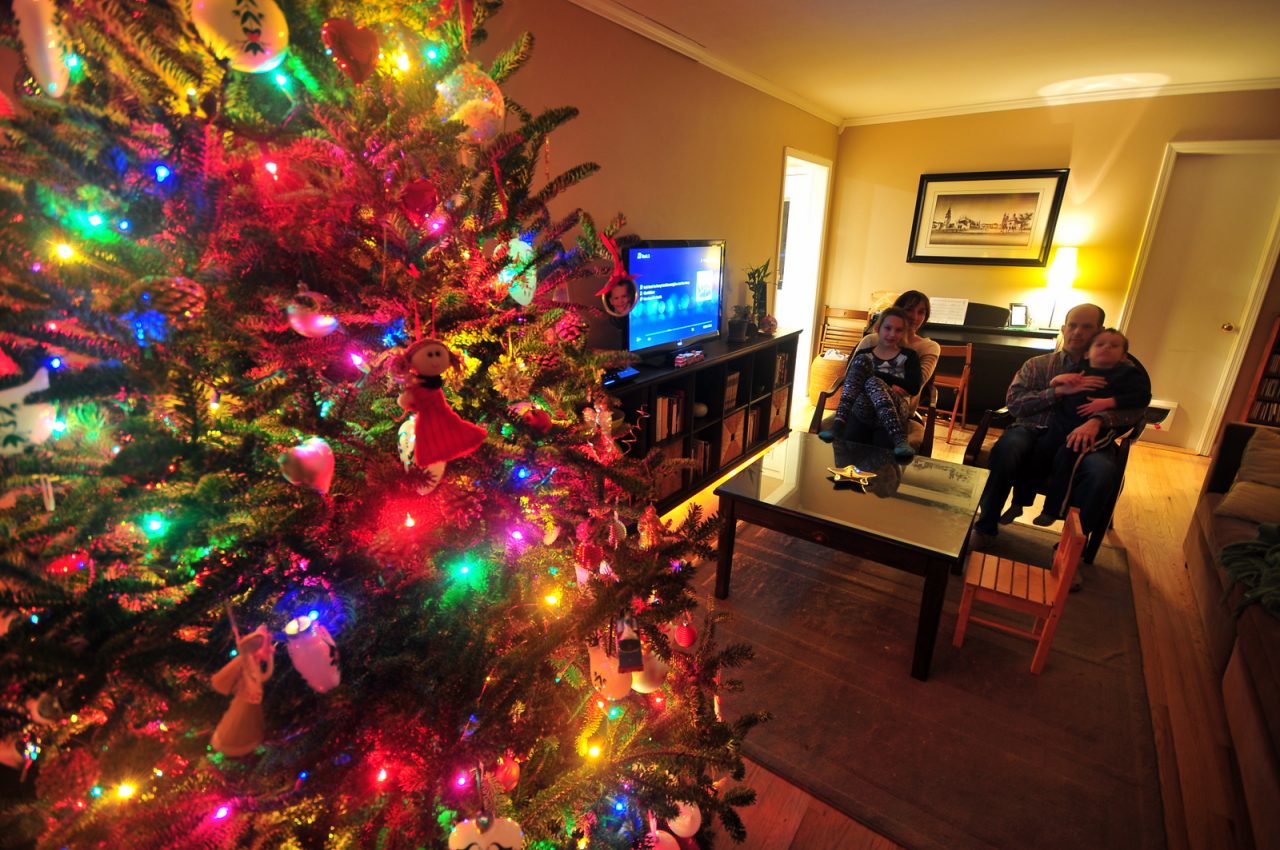
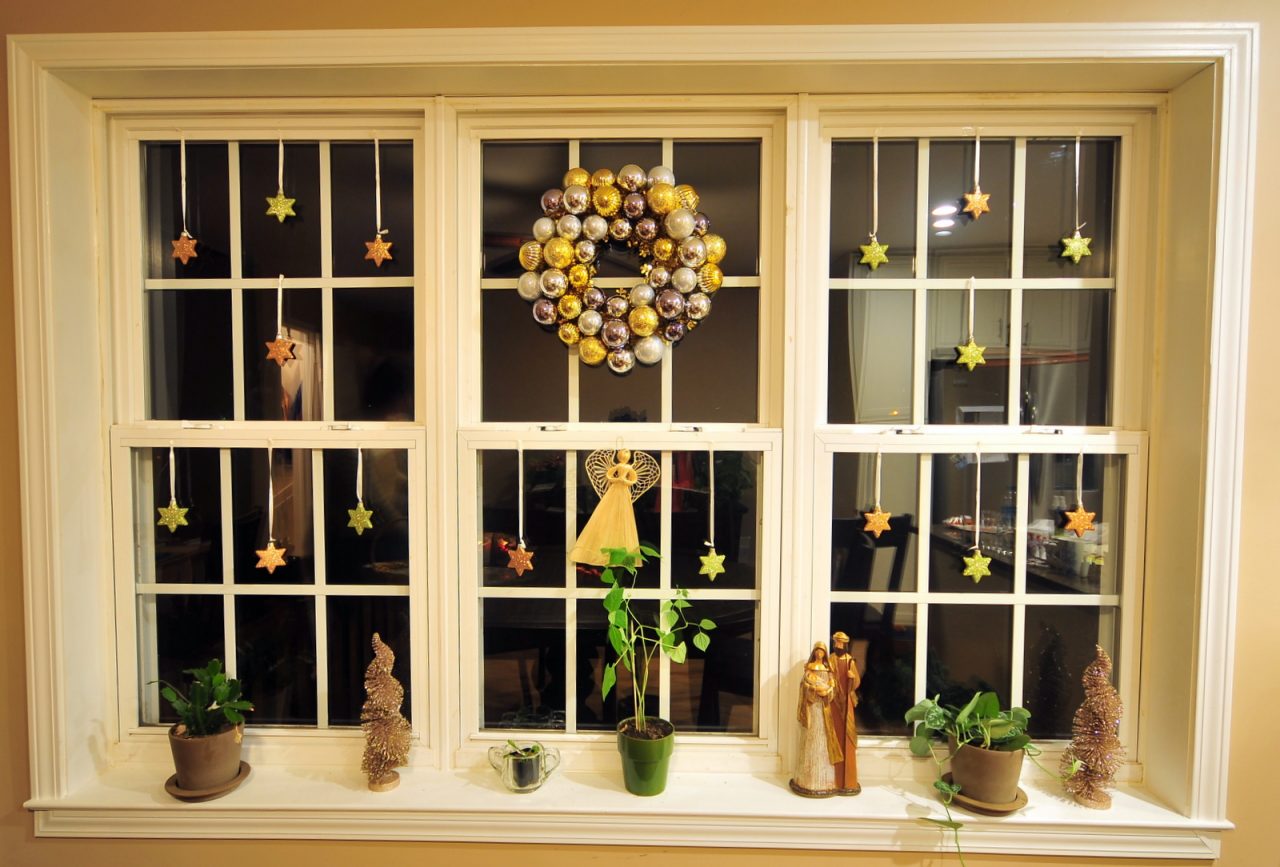
When I got home, K excitedly led me to the front door to show me a box sitting by the door. “How wonderful,” I thought, not realizing what was in it.
How wonderful, indeed.
The Boy’s Show
Lighting the House
Once again, a job to do: lighting the house. Once again, a Boy to help.
“Daddy, I need to be up there with you. I need to work on the roof.” How can I possibly resist? It makes the job more difficult, but it also makes it more enjoyable.
And occasionally, his help is actually help. “Bring me more lights,” I ask, and he chirps “Okay” and almost runs over to where the bag of lights lie on the ground.
This lasts for a few minutes — twenty at most — before he sees the neighborhood boys out and decides he has done enough to help. Without a word, without explanation, he runs off, and I am left both in peace (how fast can I get the rest of this done now? careful not to fall!) and a little lonely, sad even.
It’s a foreshadowing of things to come, I know. It’s already starting with the Girl — notice she’s not even in this post because she was doing her own thing. She did her cleaning chores and was left with an afteroon that she filled with chatting with her cousin in Poland on Skype, pestering E, and whatever else she might have been doing. She spent the night at a friend’s house, too.
It’s still so far away and yet so very close.
Tree Lighting
Waiting
It’s now Advent, a time of waiting. In many ways, I guess we’re waiting all our lives. There’s always something in the near future that we’ve trained our attention on, even if we’re the type to live in the present. E, for example, is waiting to be able to cook, really cook.
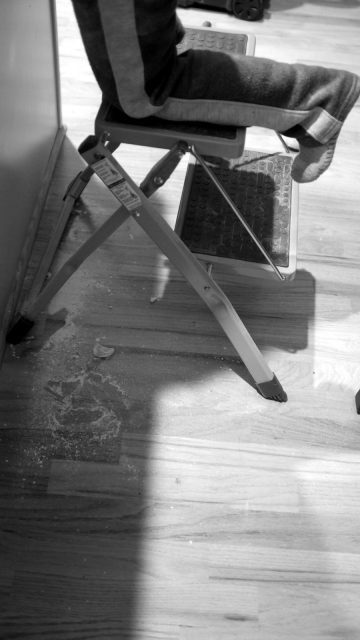
He plays at it a lot, but that’s often just messy play, he thinks. “I’ll never learn to cook,” he lamented tonight, but explaining to him that playing as he does — and indeed, helping as he often does, with stirring and such — really is learning to cook. “And you’ll be learning your whole life,” K explained. Still, it didn’t do much to help him. He’s waiting to cook for real.
The Girl has been waiting for the Advent calendar to make its appearance. This year, E and L both have their own, but E had completely forgotten about it. Truth be told, L probably had too until K mentioned it today.
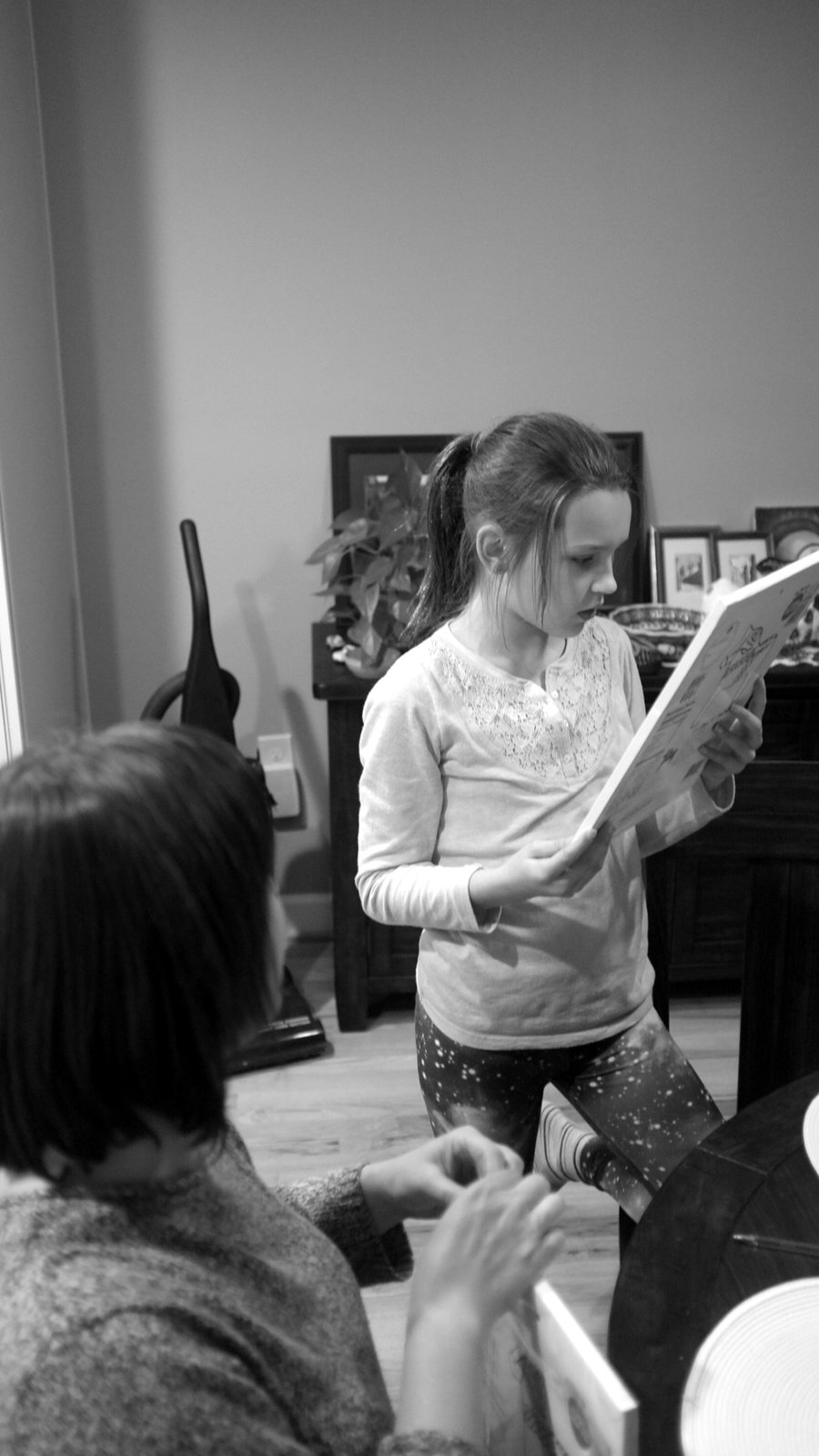
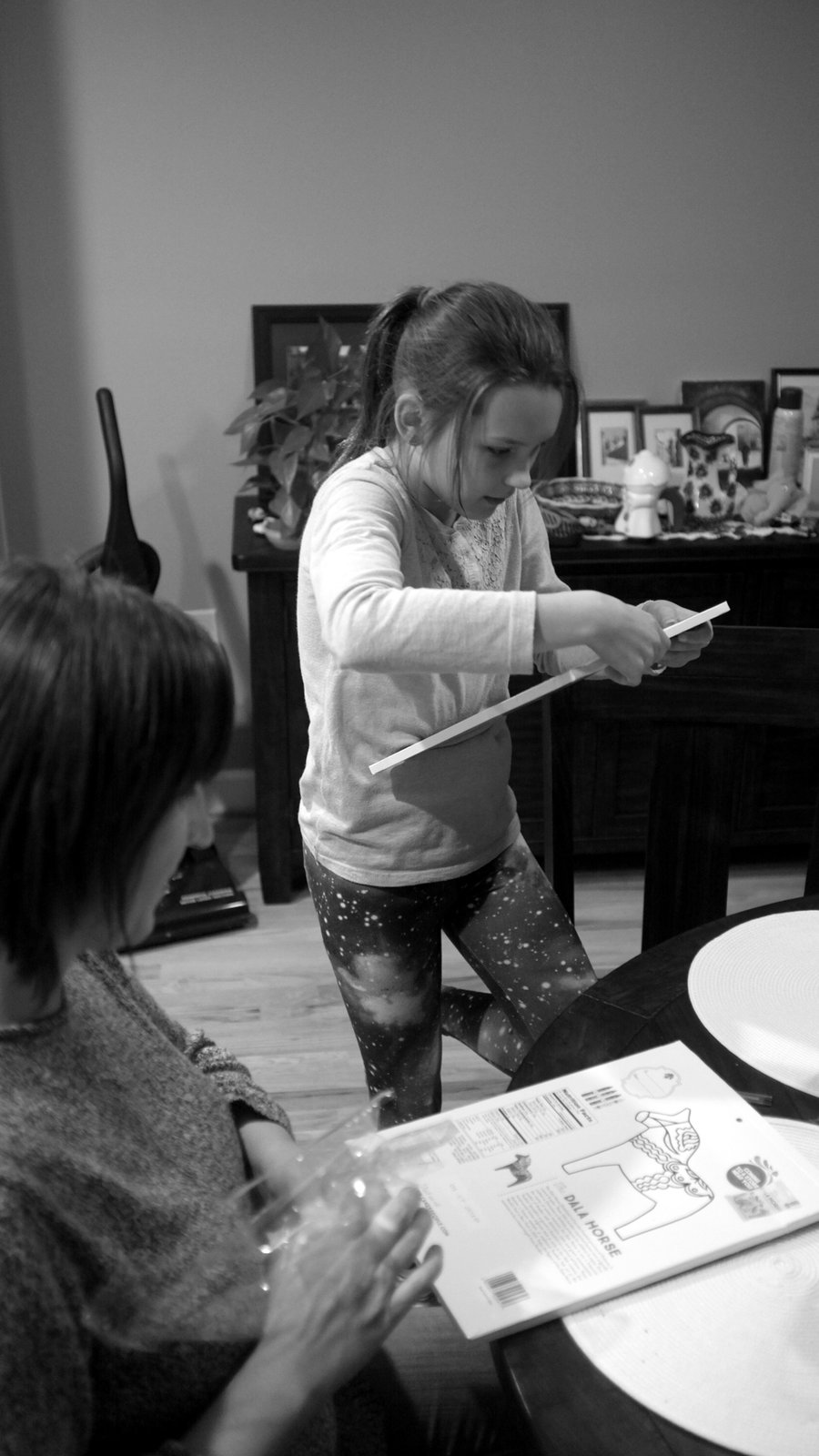
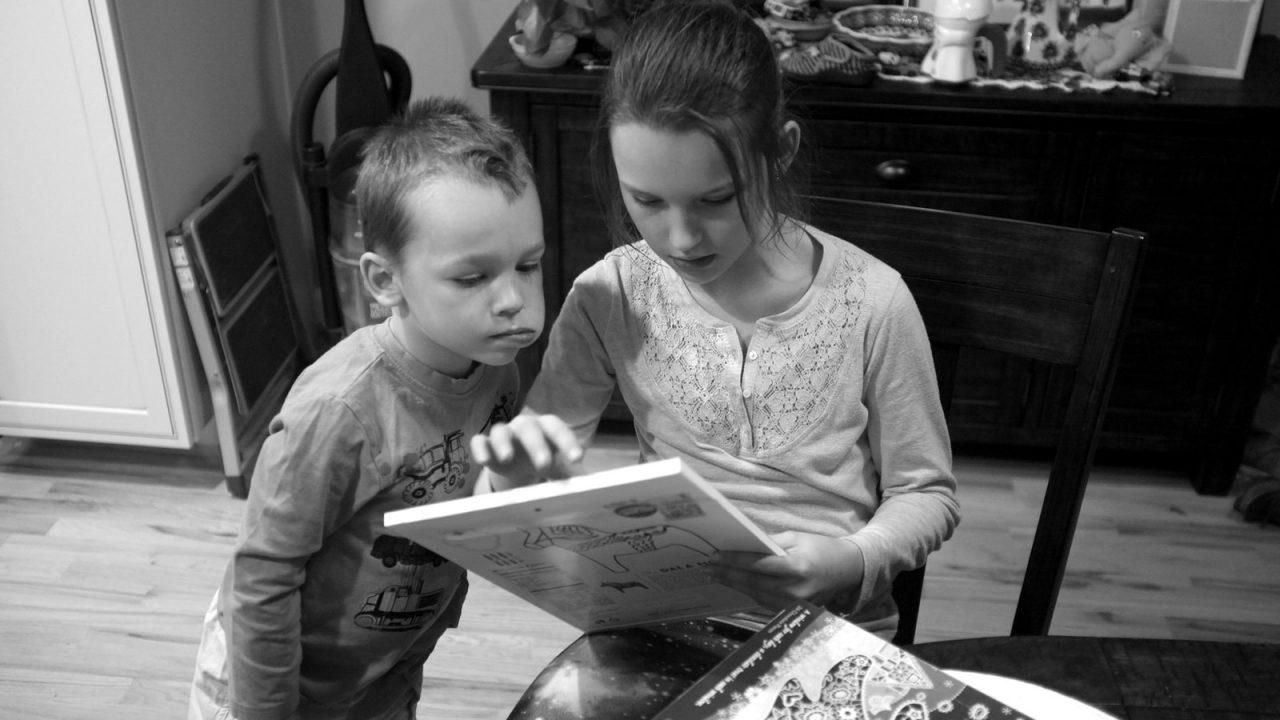
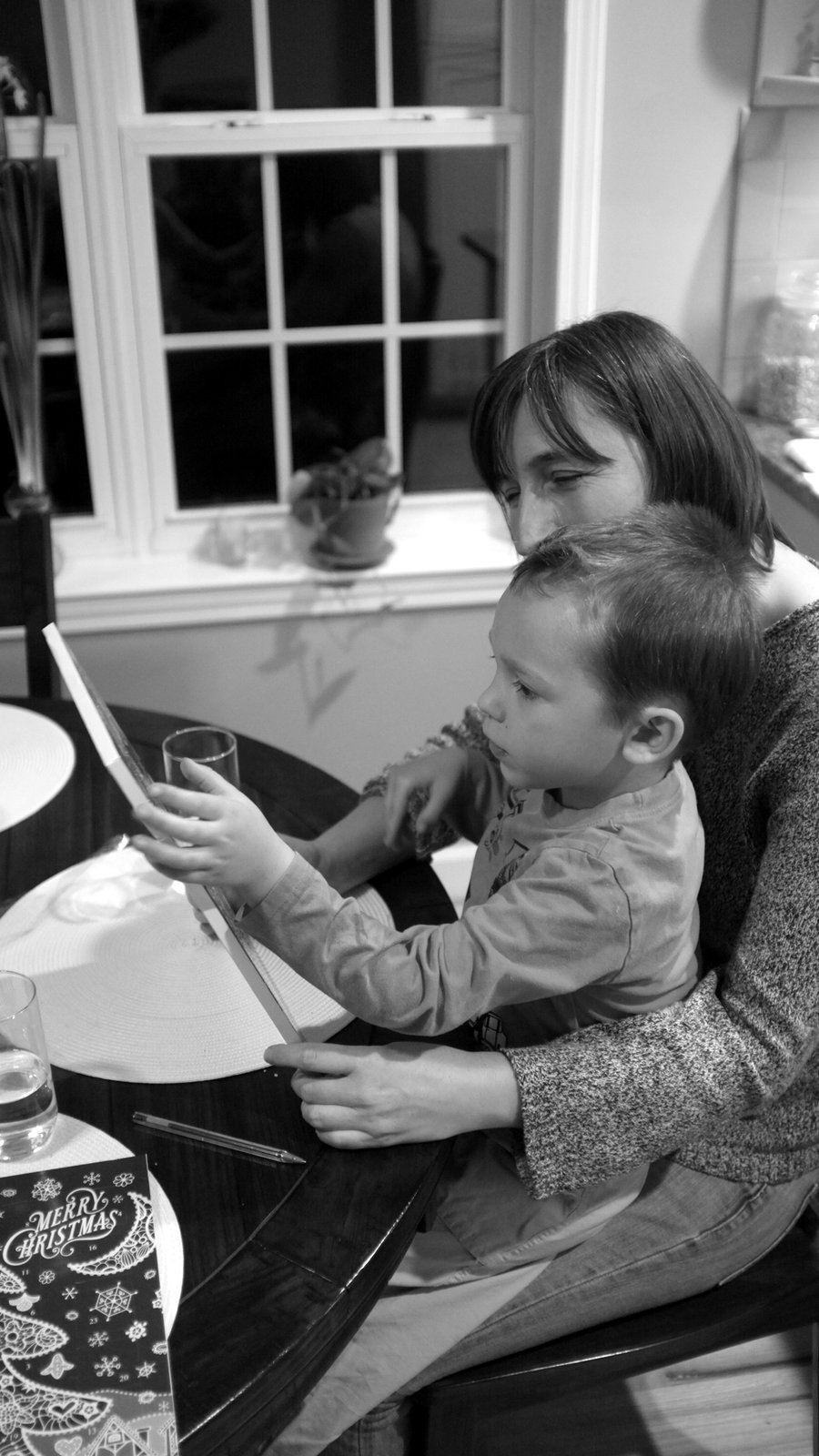
We got the calendars out, but E had to wait a while: he still hadn’t finished his dinner, so we walked around with a chipmunk-cheek of pierogi as L opened her calendar and jotted her name on it. When he was done eating, he got to do what he’s always waiting to do during dinner: crawl into K’s lap.
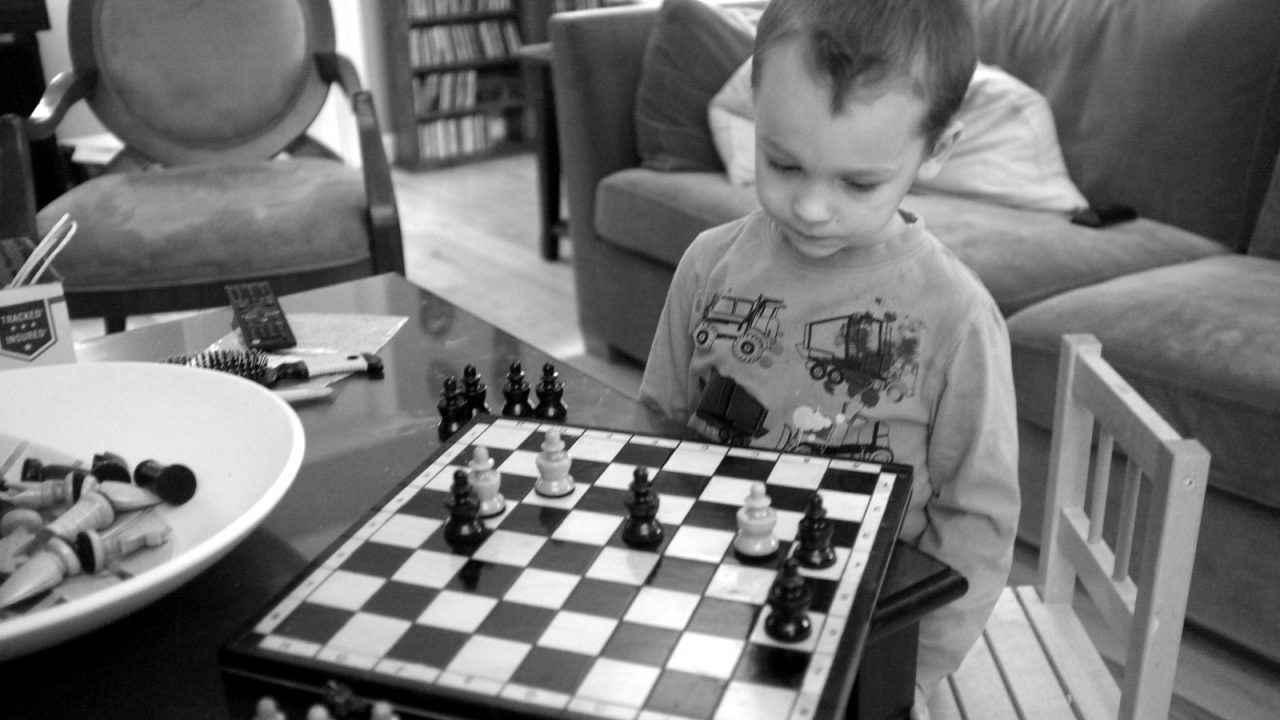
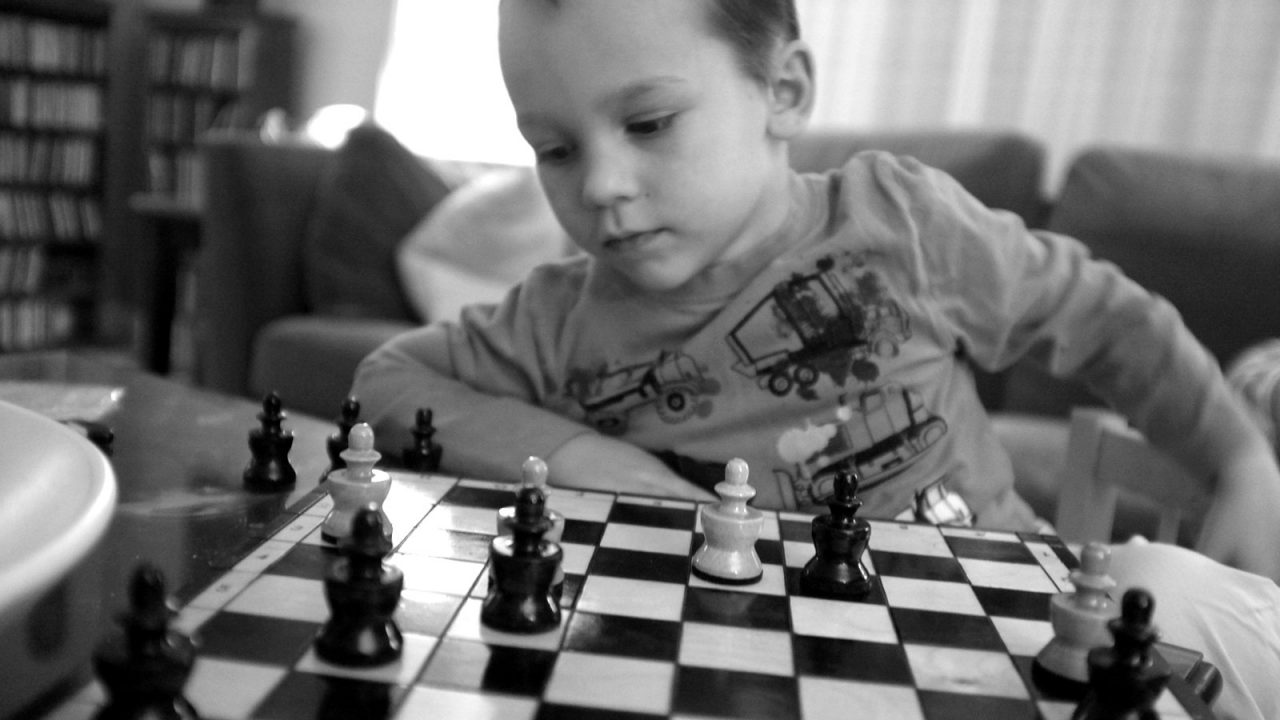
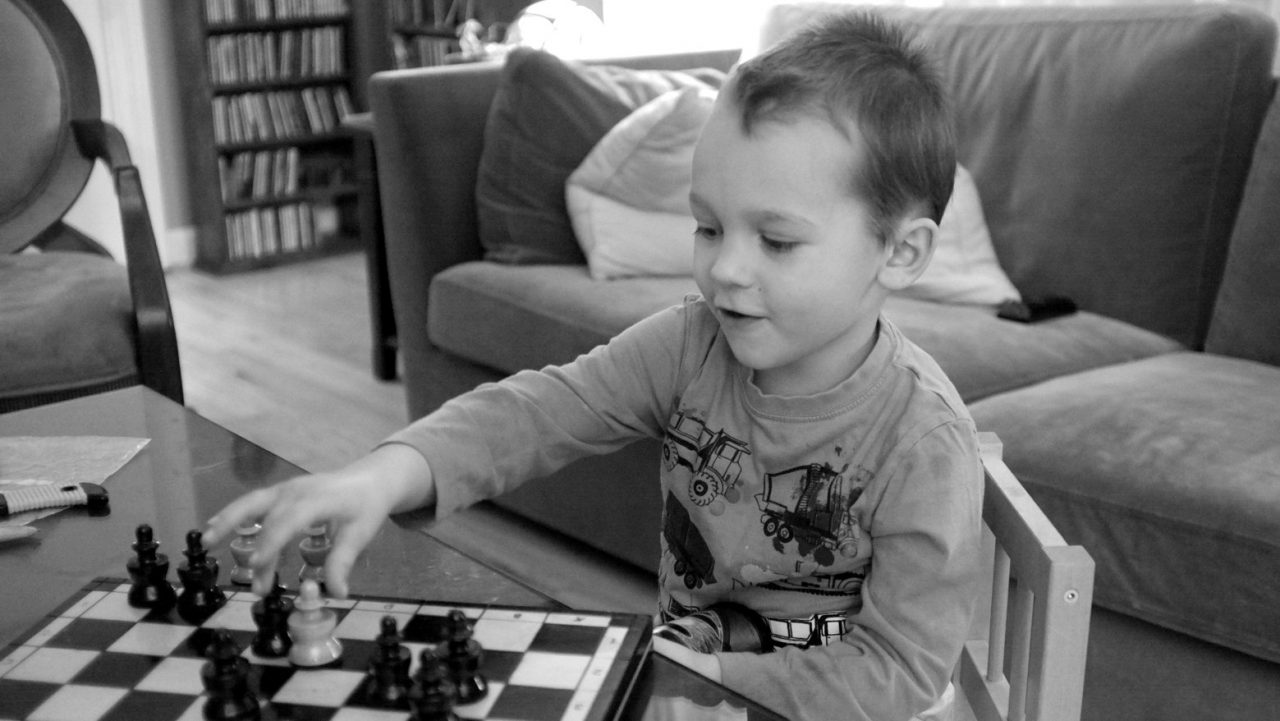
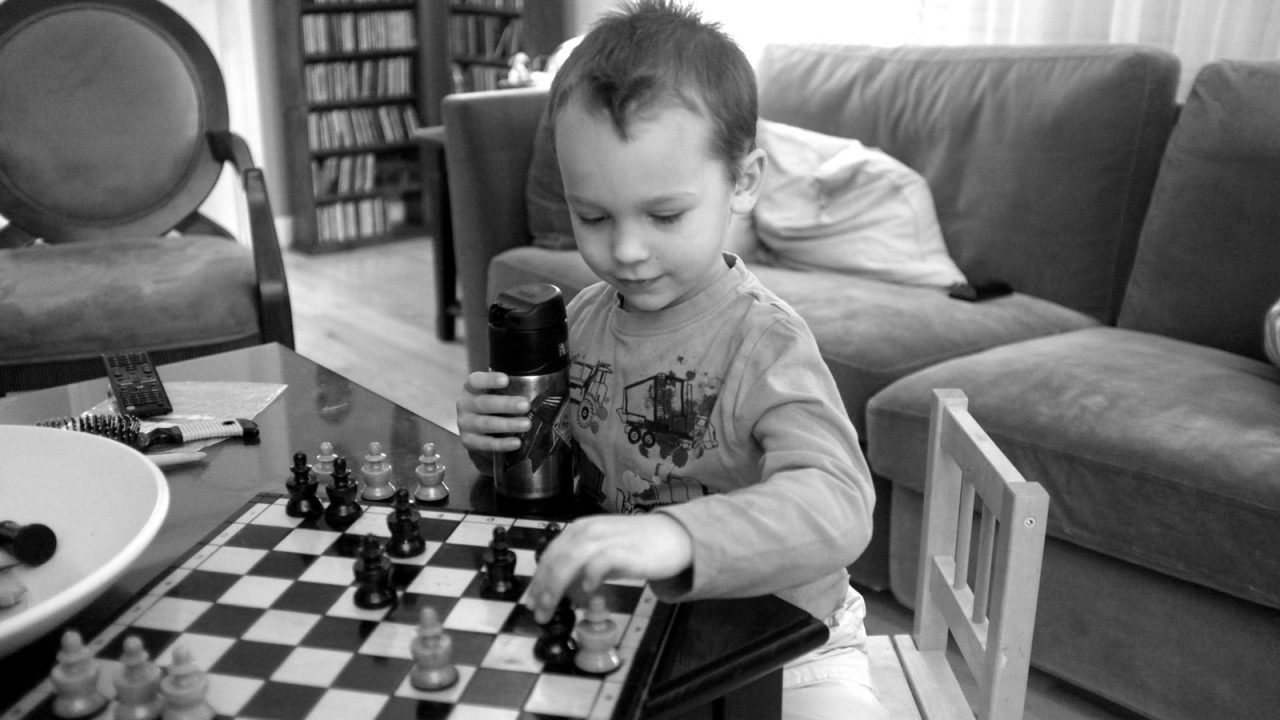
After dinner, it’s my long-anticipated event: chess with my son. L started learning chess, but she never really grew to love it. Too much to think about, and sitting still and concentrating — not something she’s fond of doing after a long day at school. The Boy enjoys the game, though, and he’s patient. He can wait. For a little bit. So we work on pawns only.
“When can we play with the other pieces?” he asked tonight.
“As soon as you can play well with the pawns,” I explained. By that, I meant simply that he could make legal moves and could see opportunities to capture an opponent’s pieces consistently.
“You have to wait for a little while,” I said.
“Okay,” he said, and captured a piece incorrectly.
